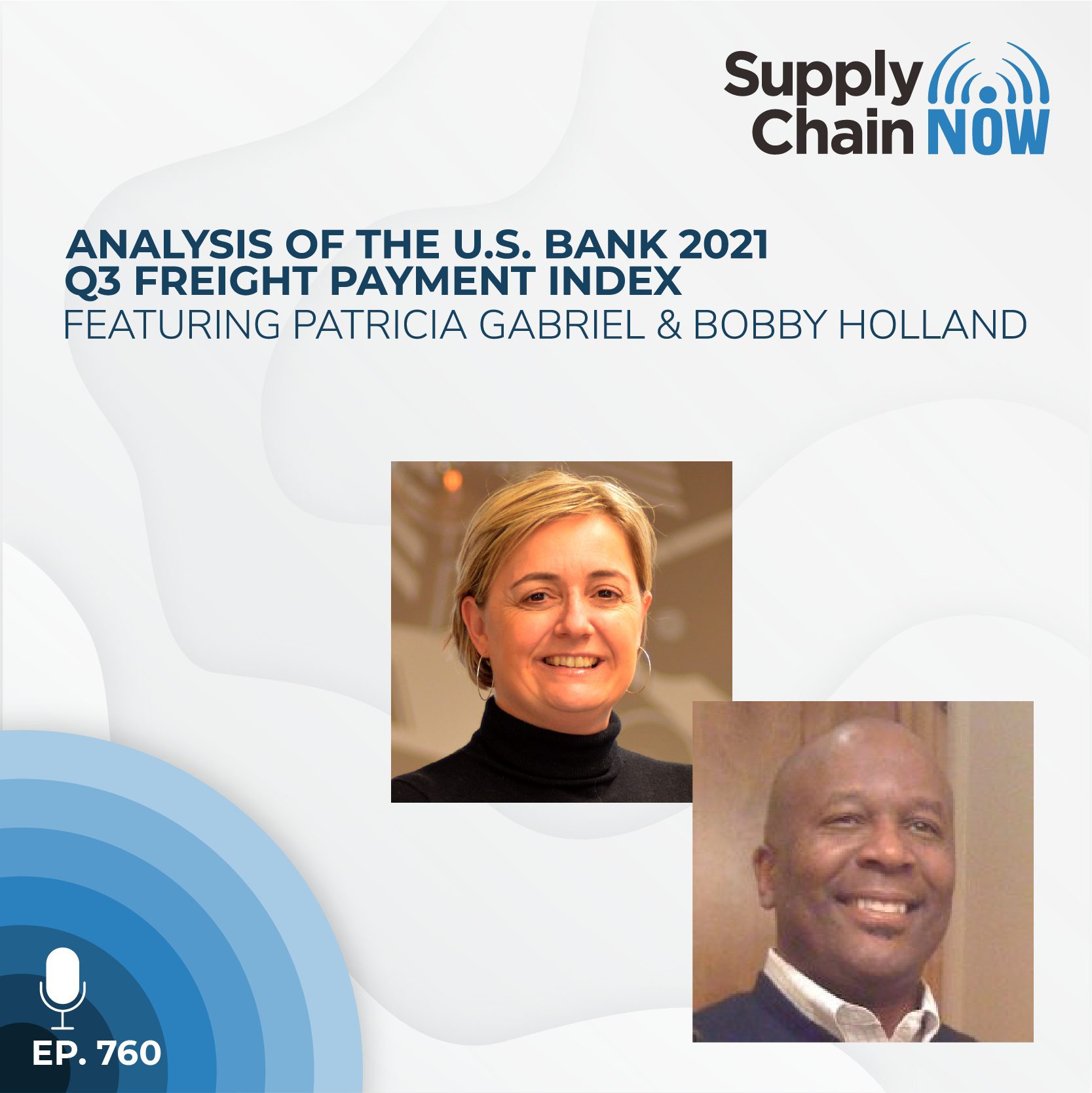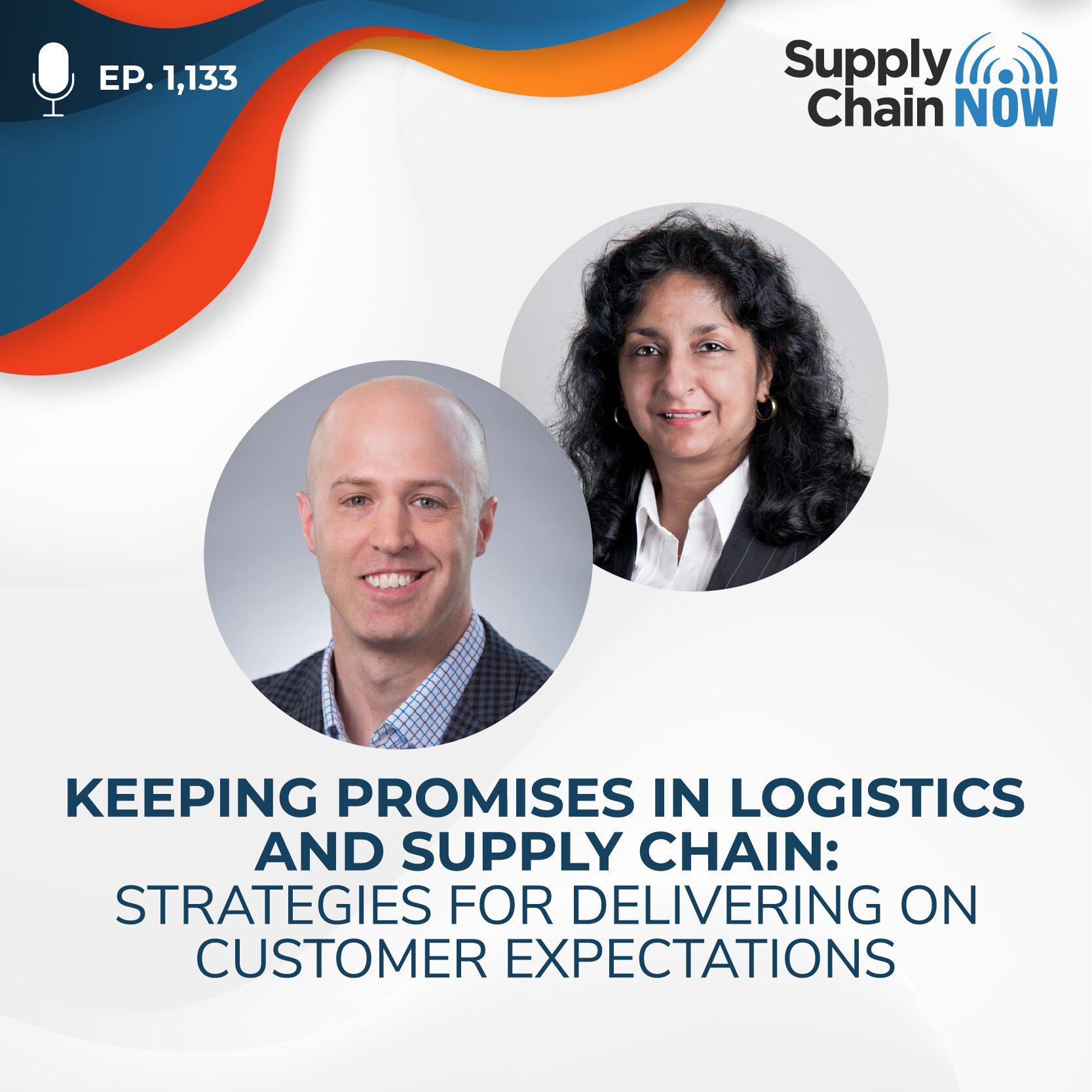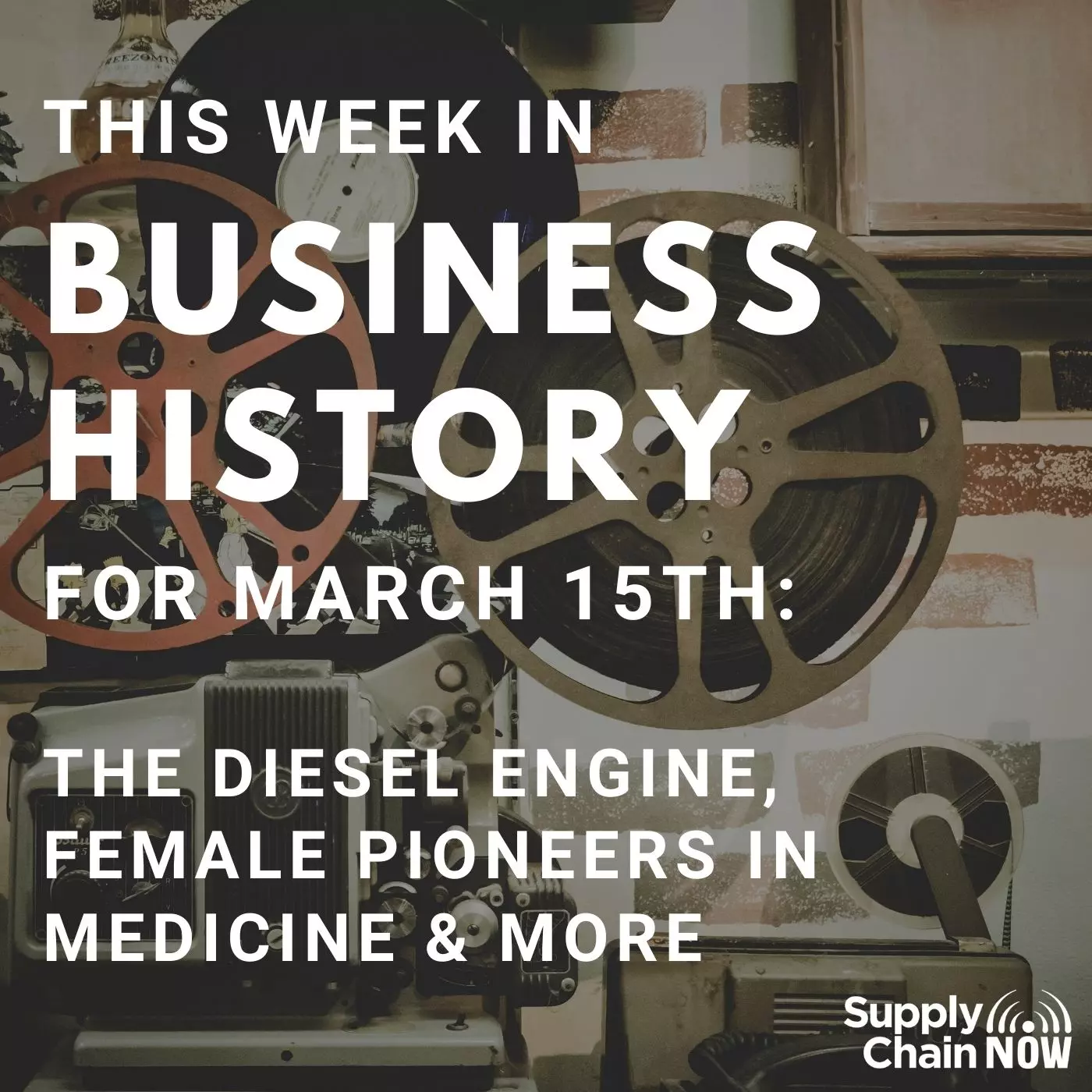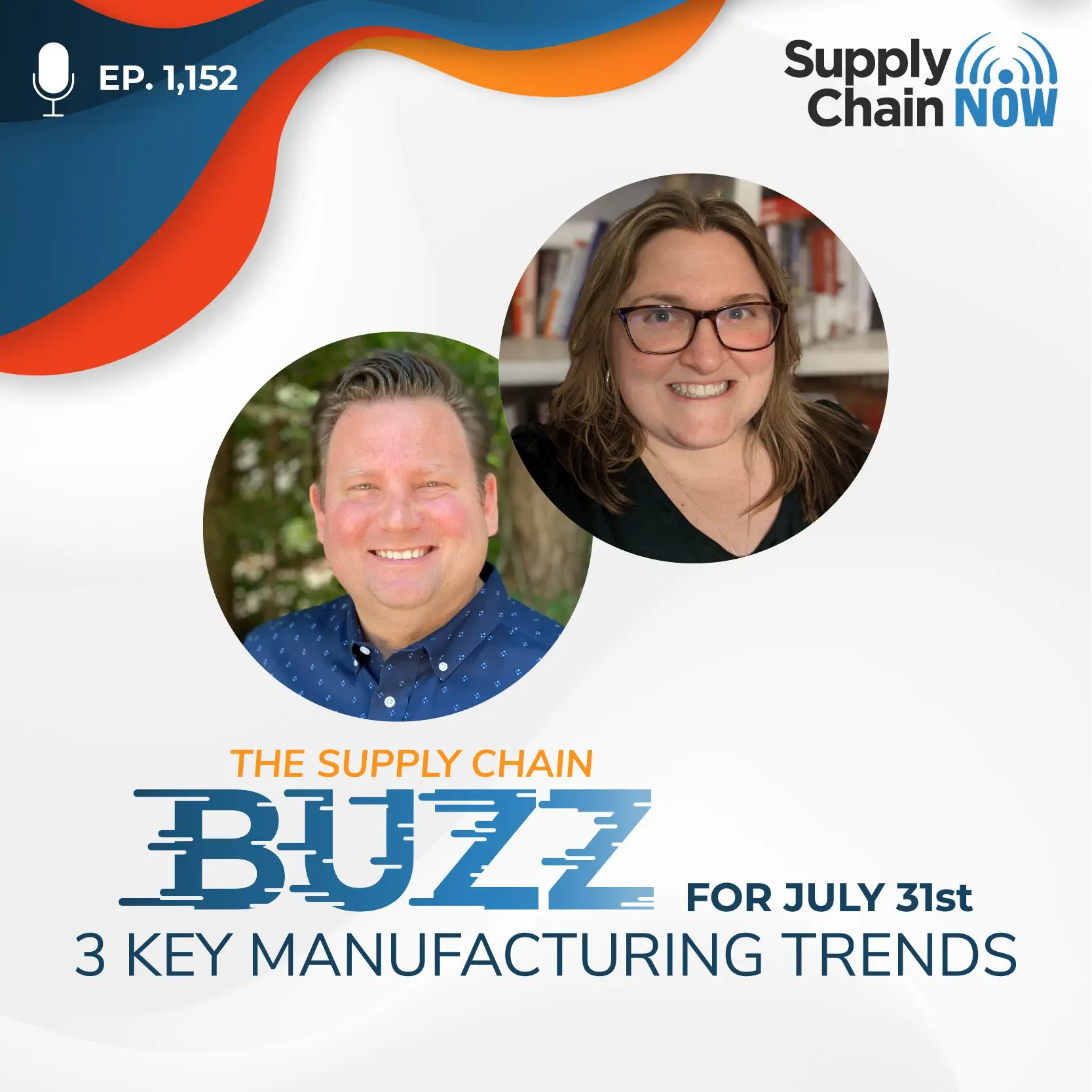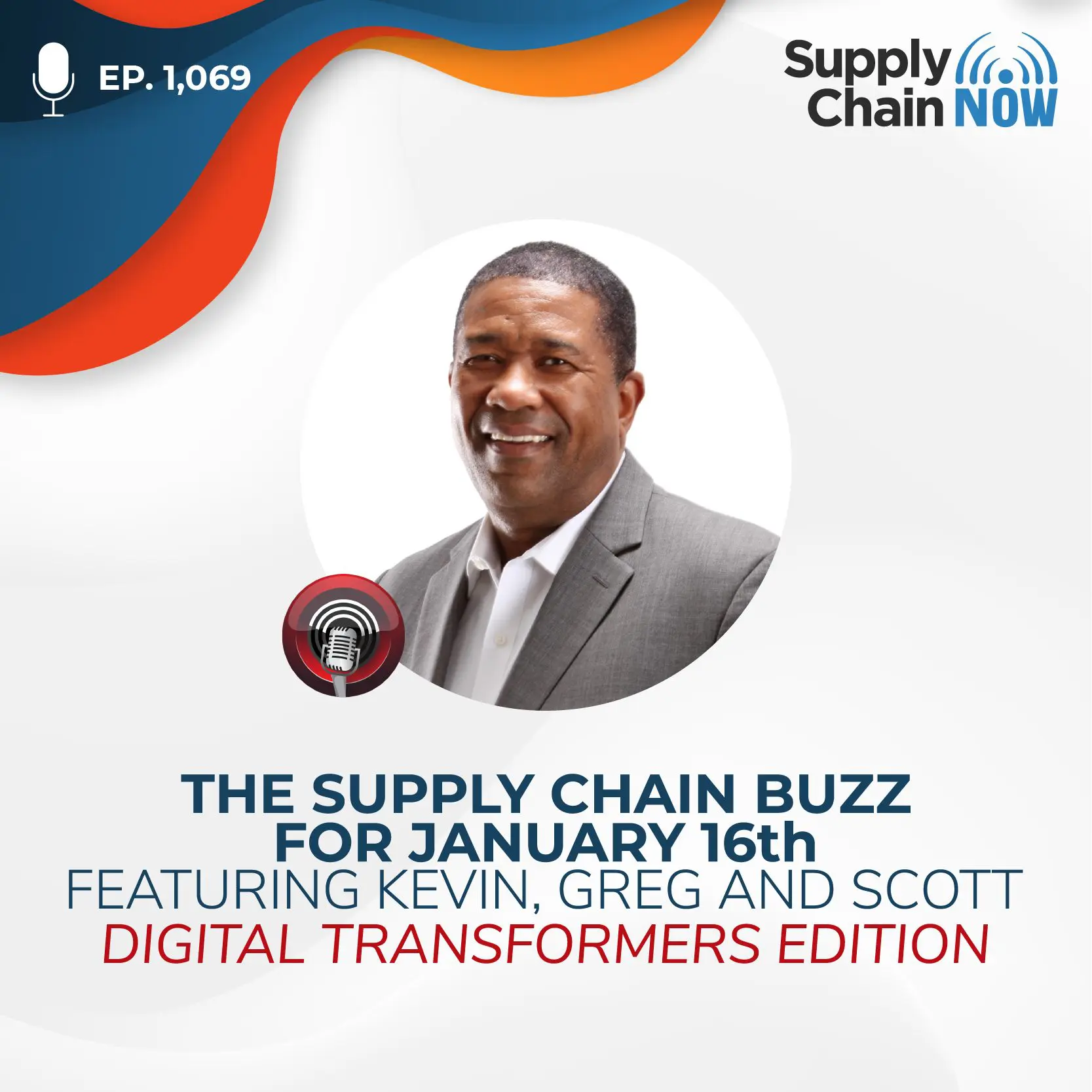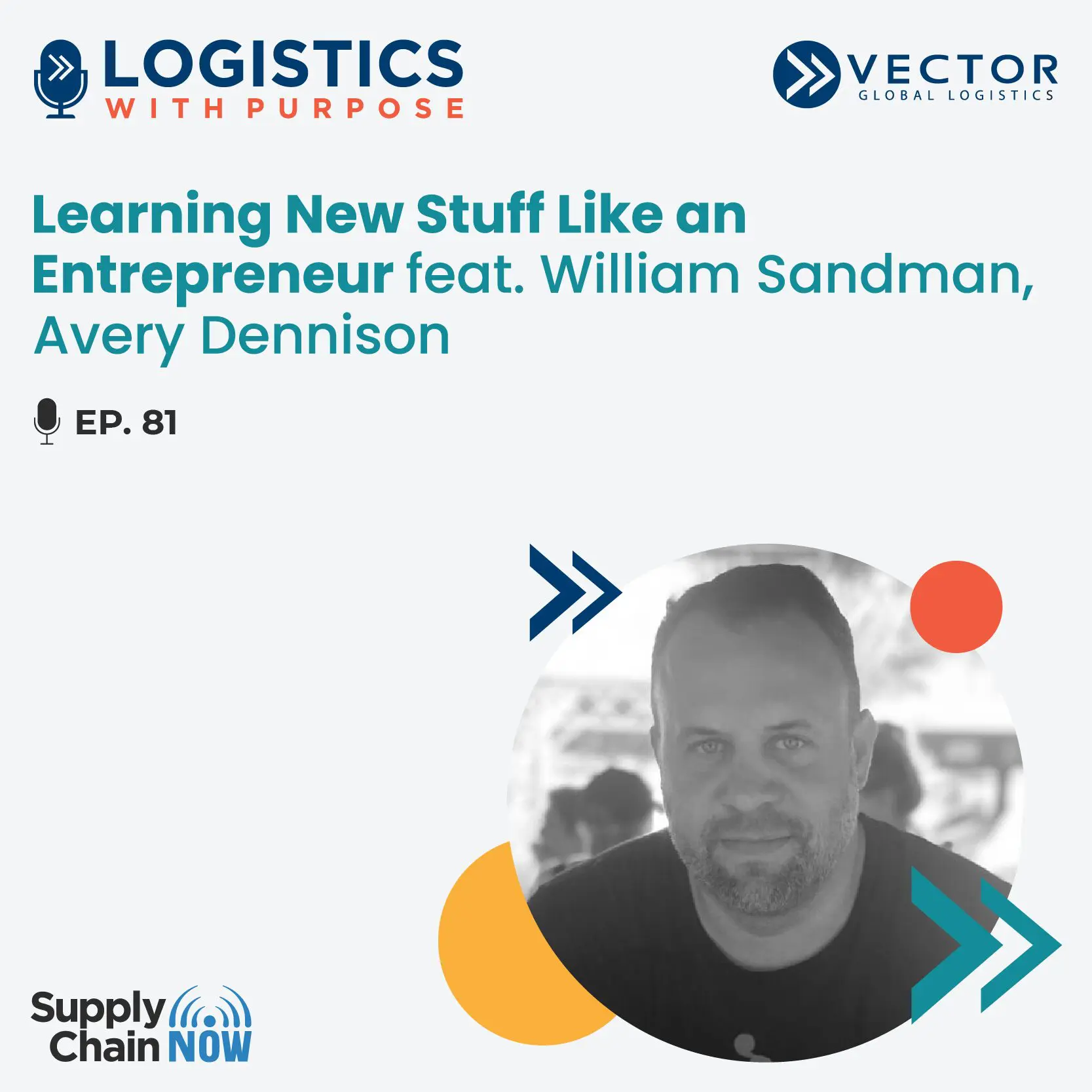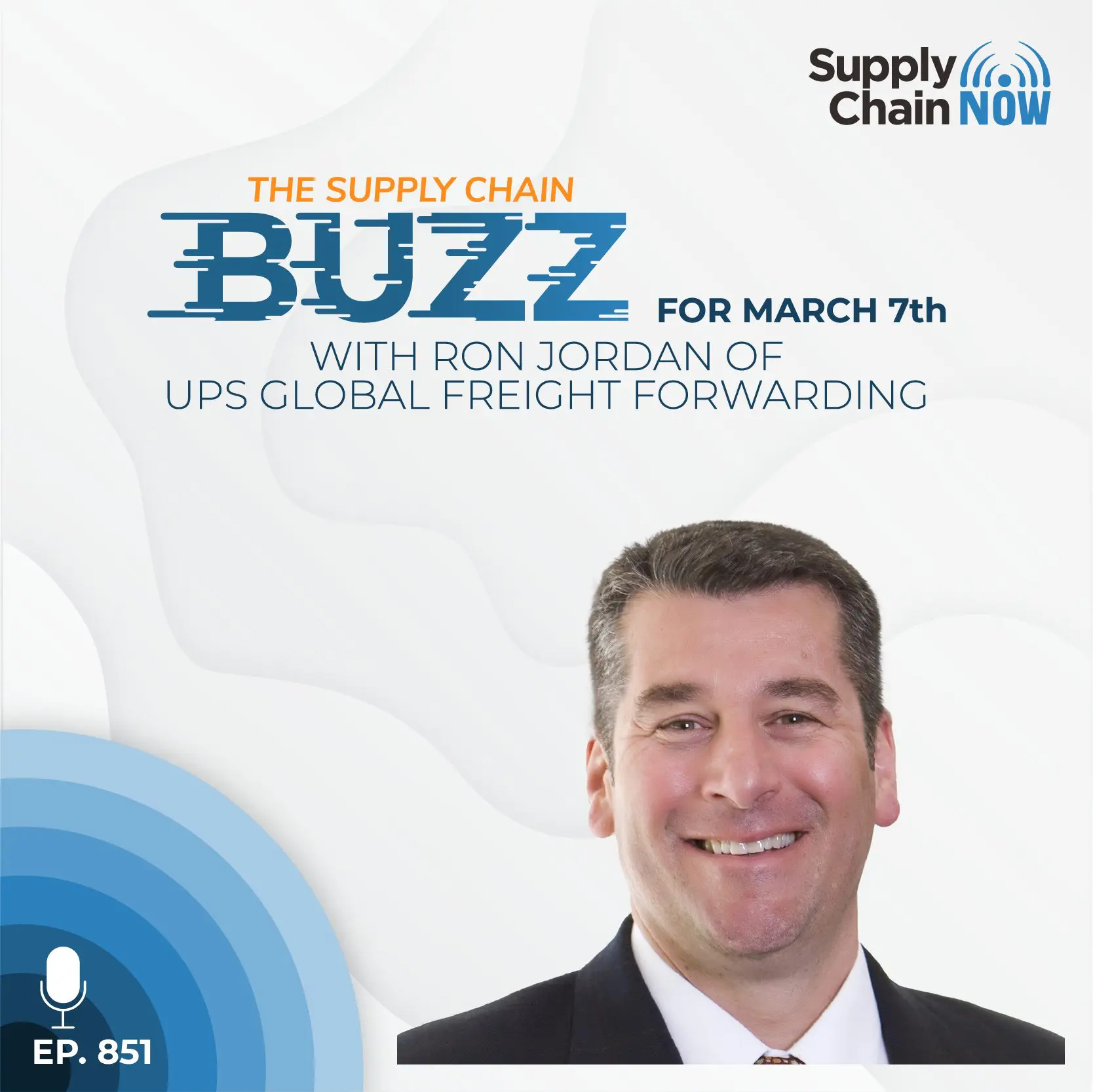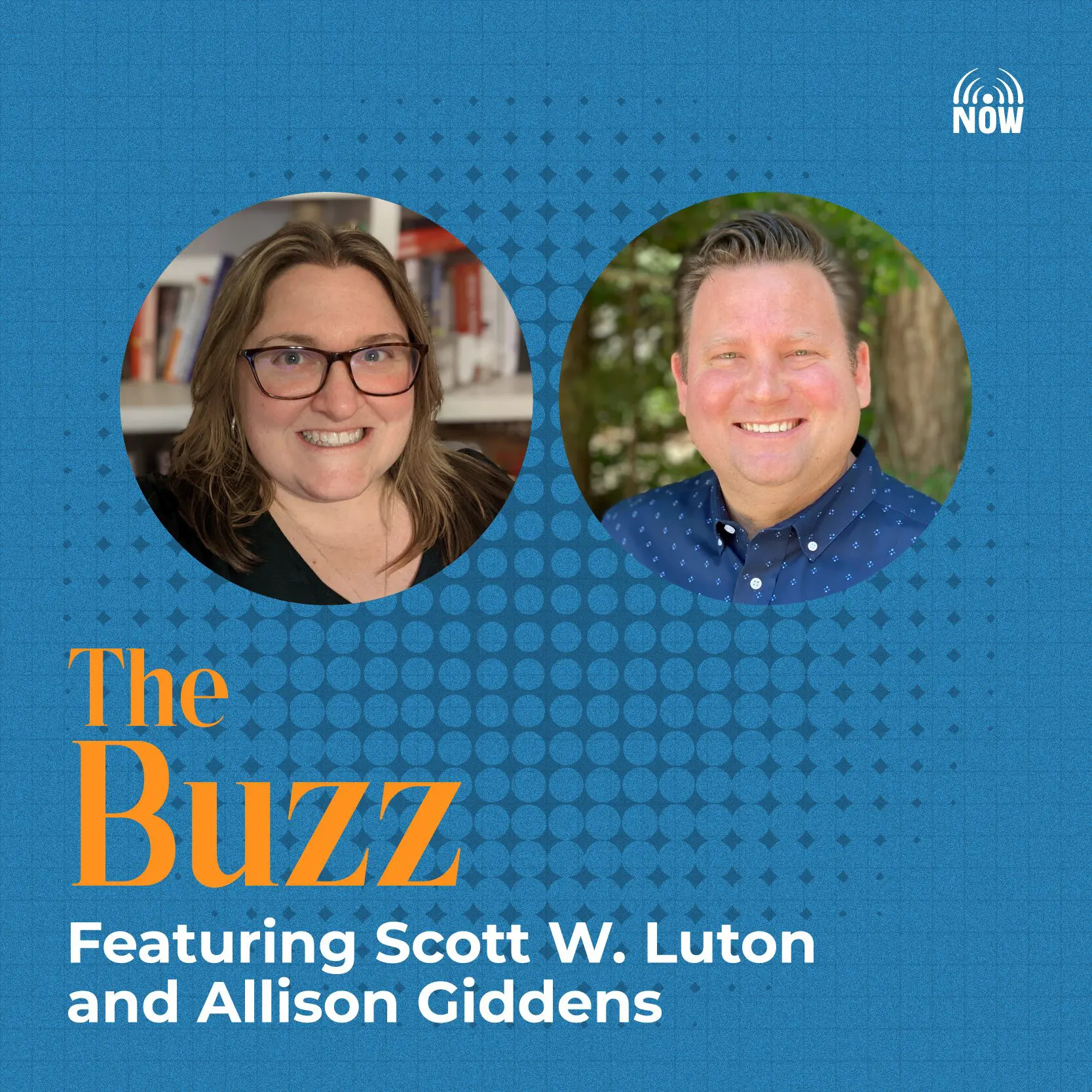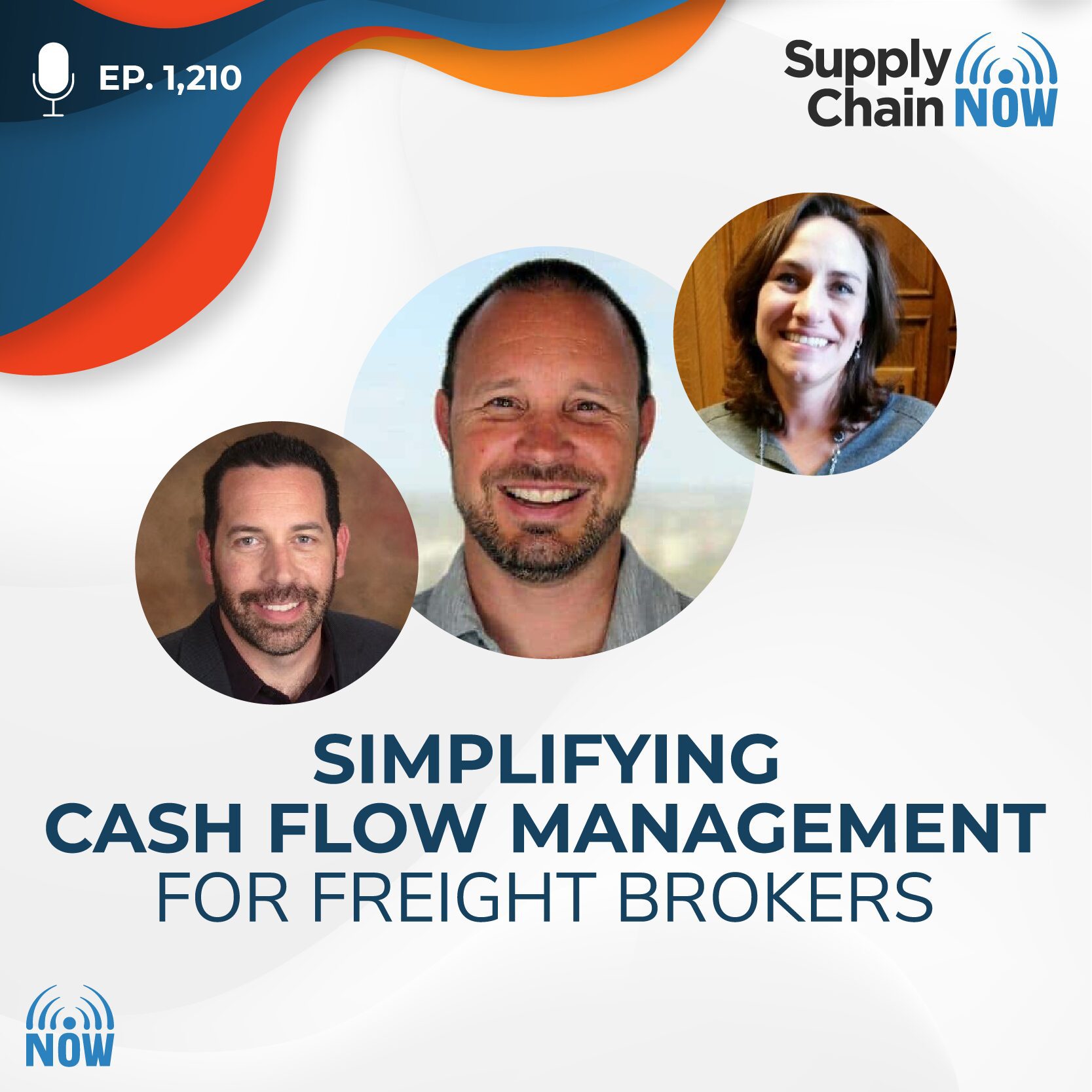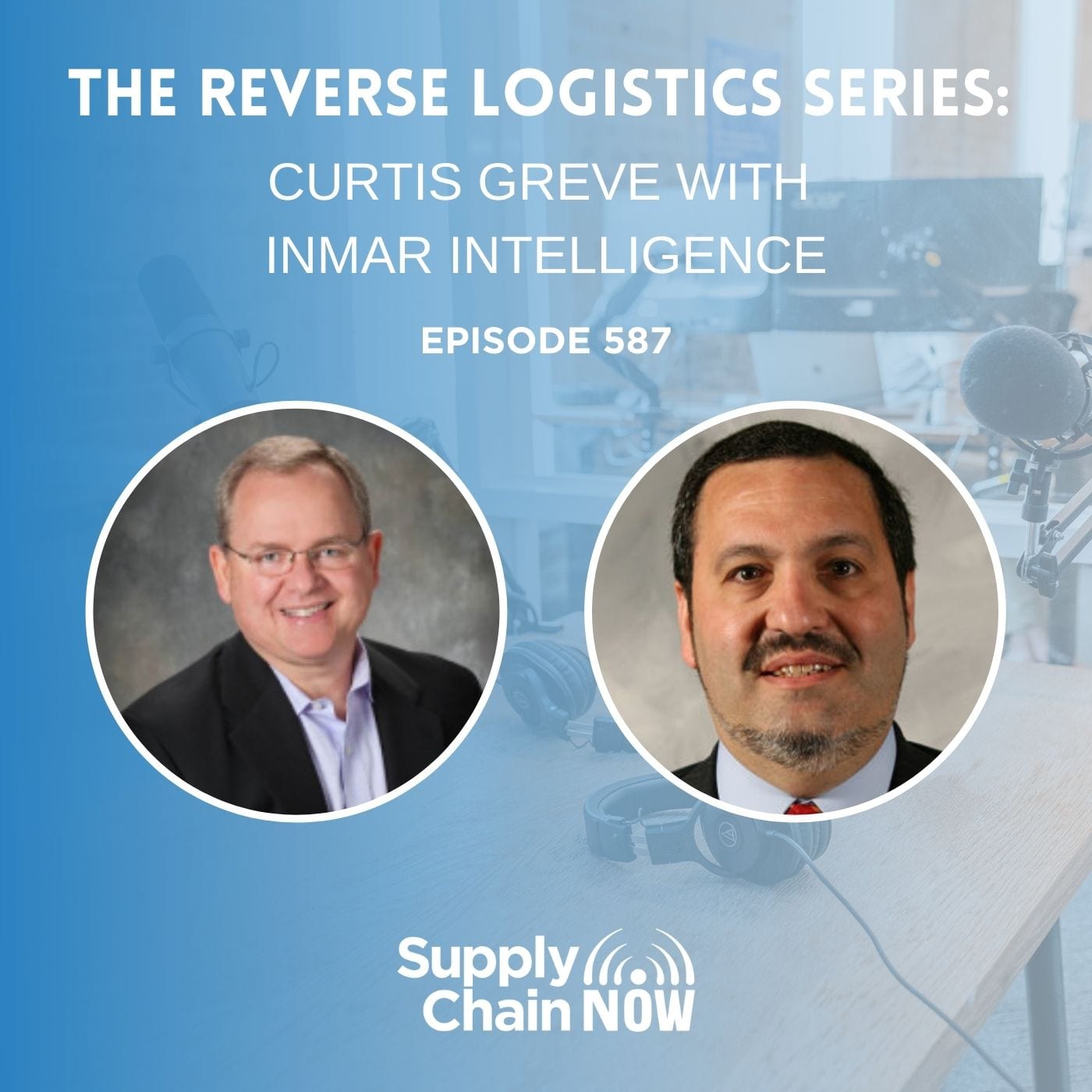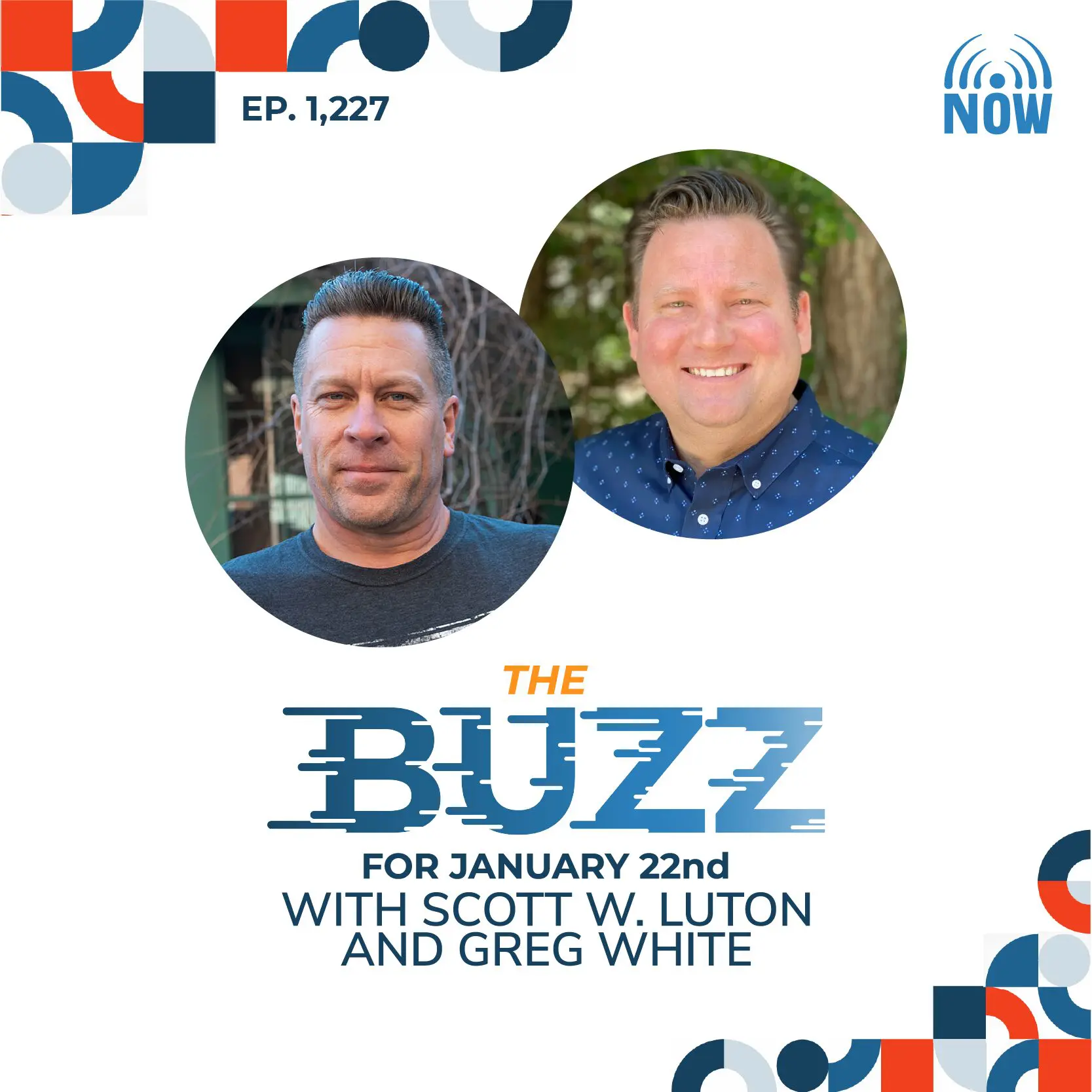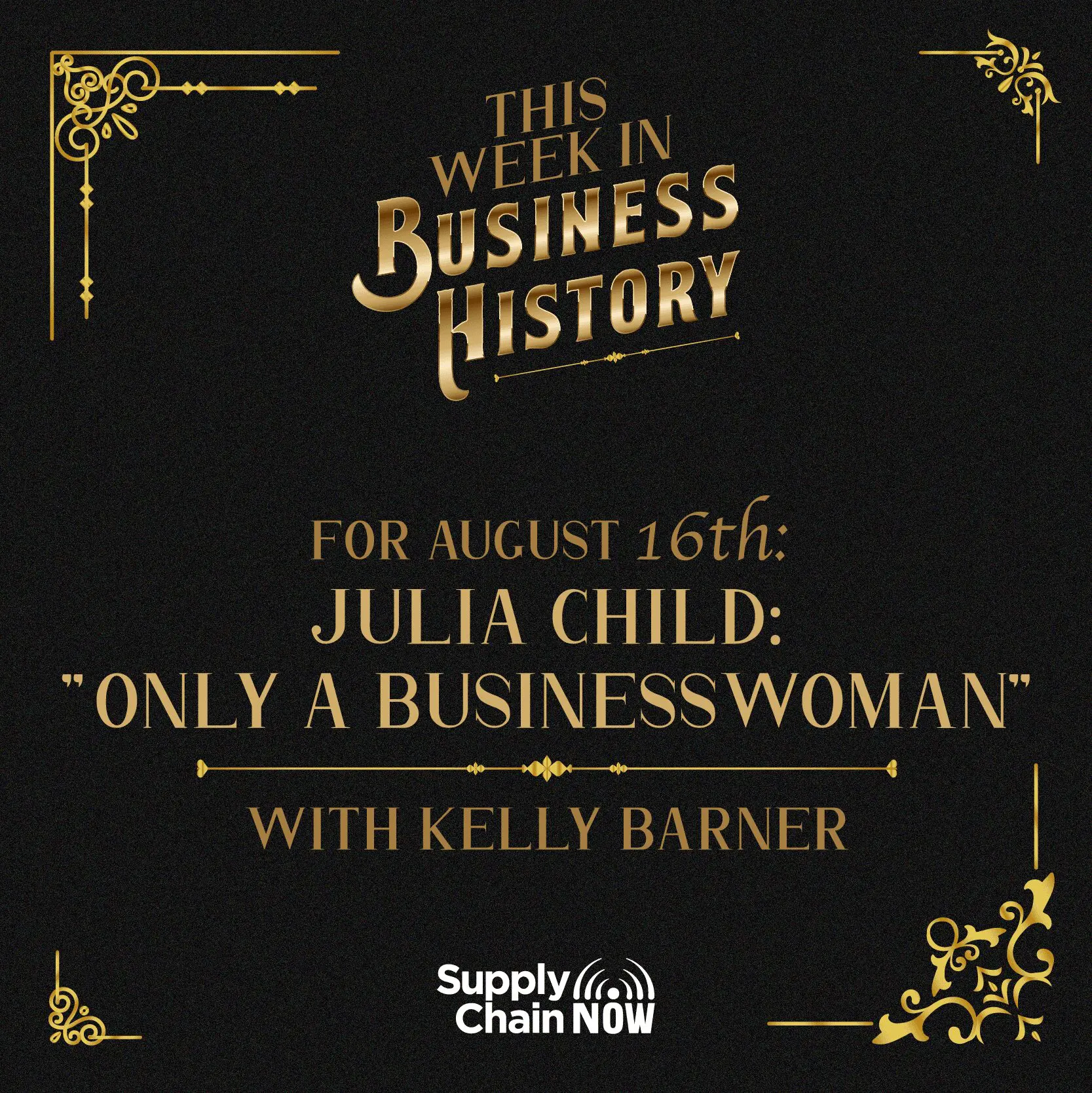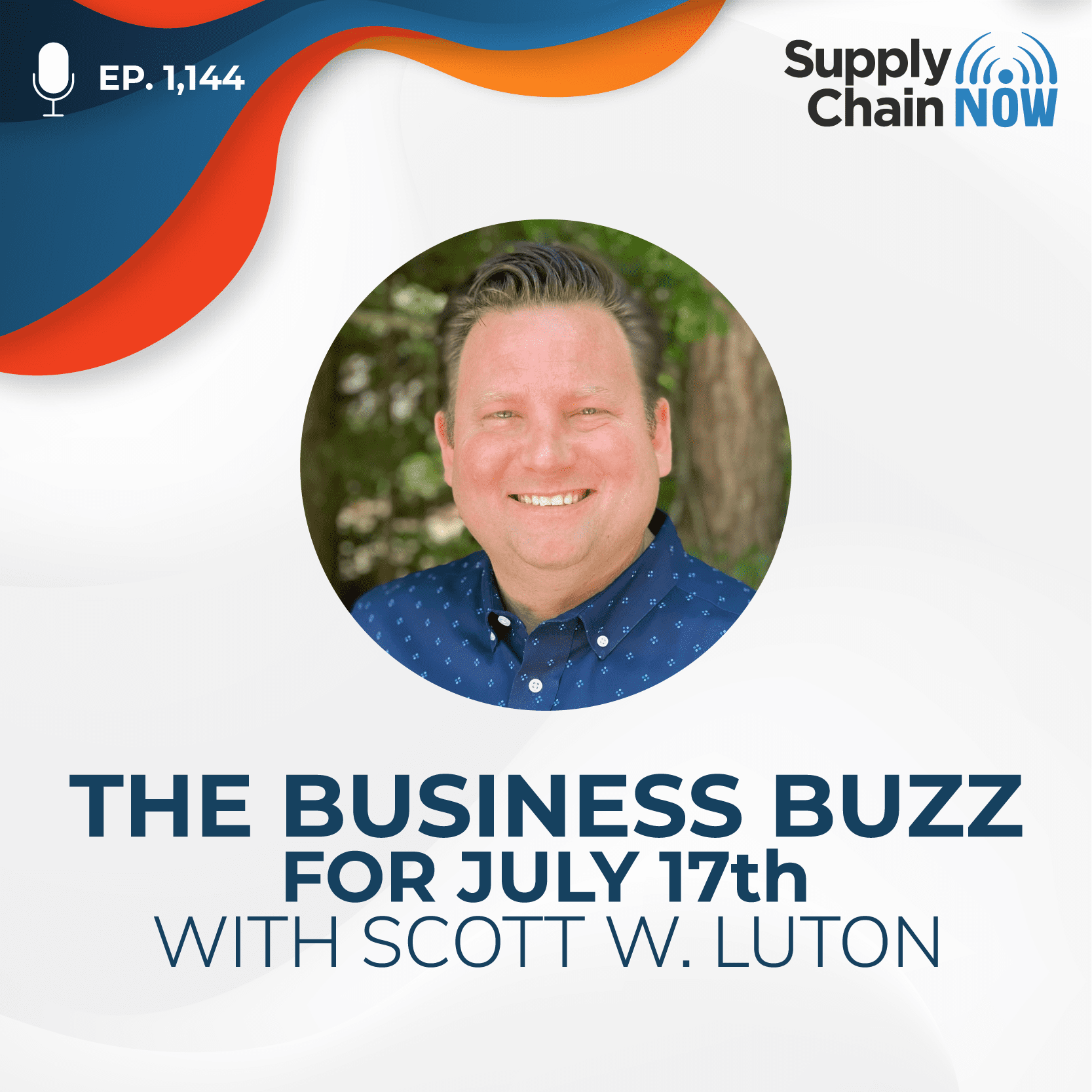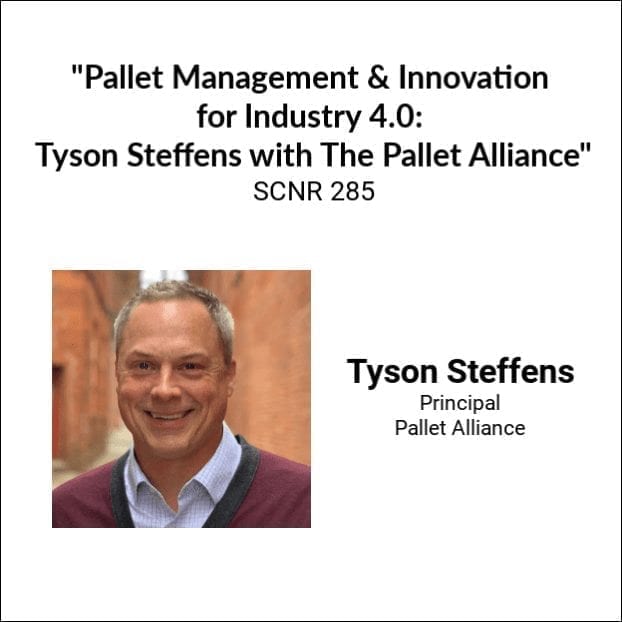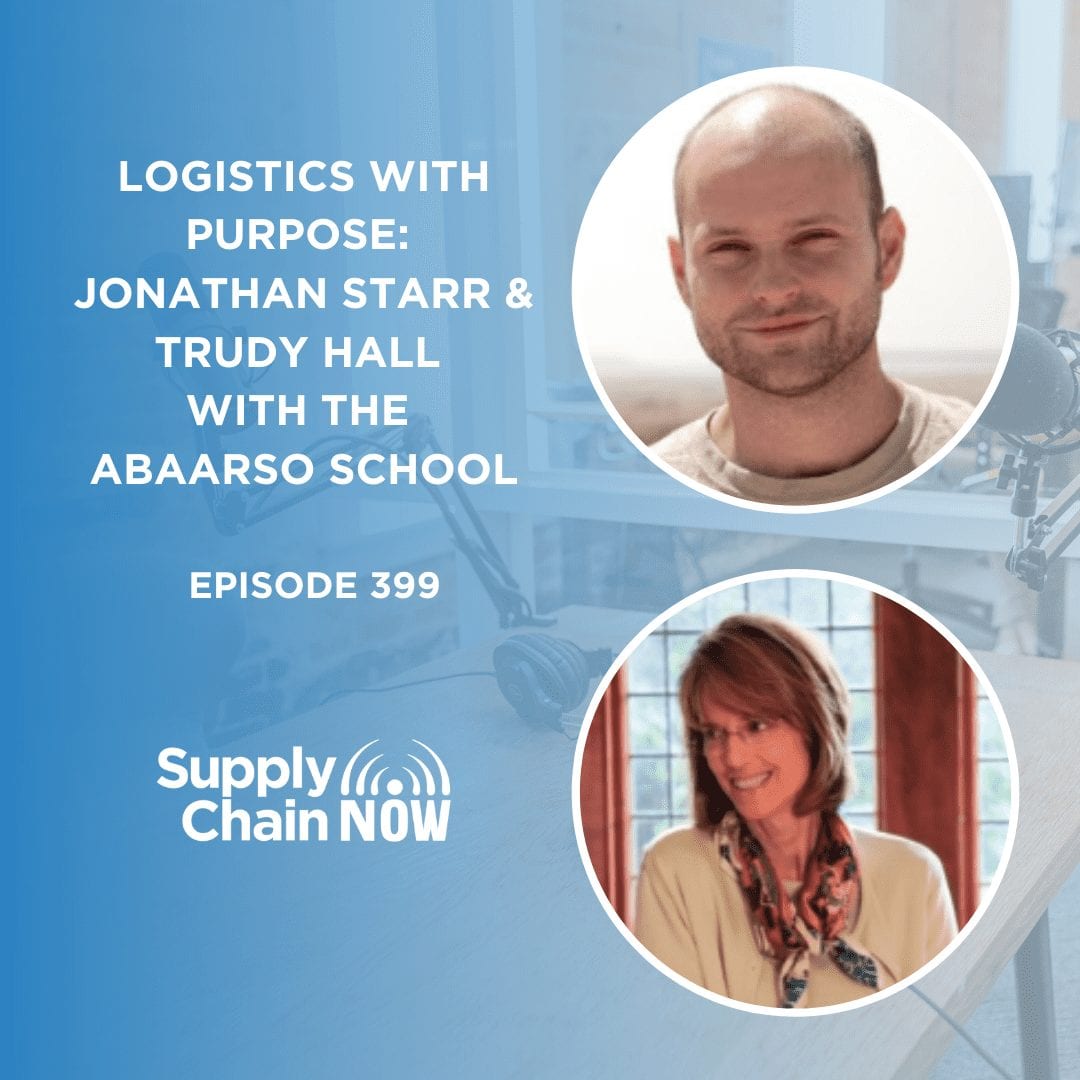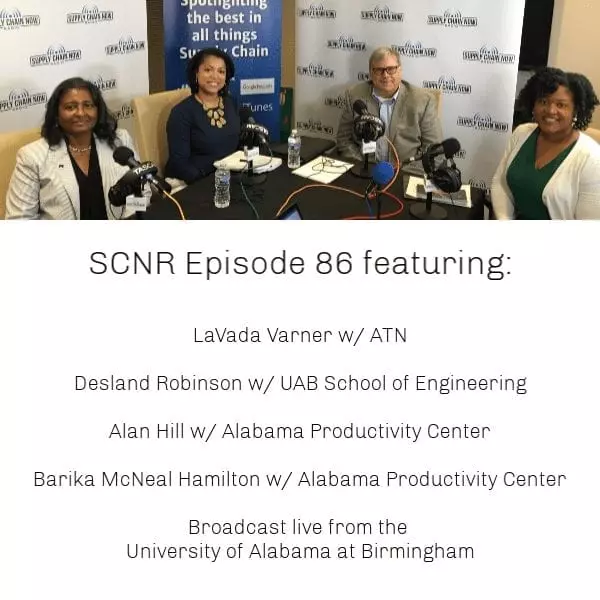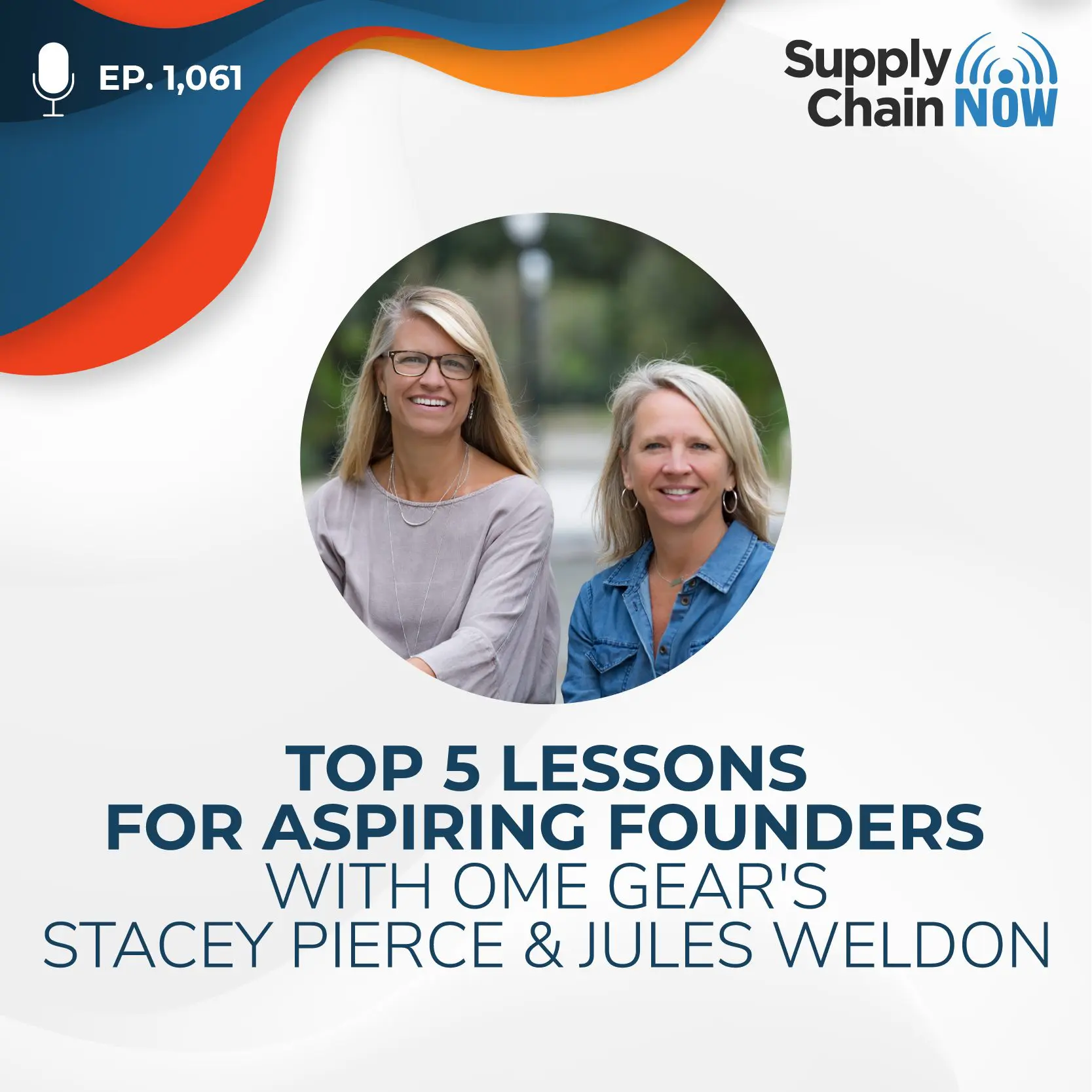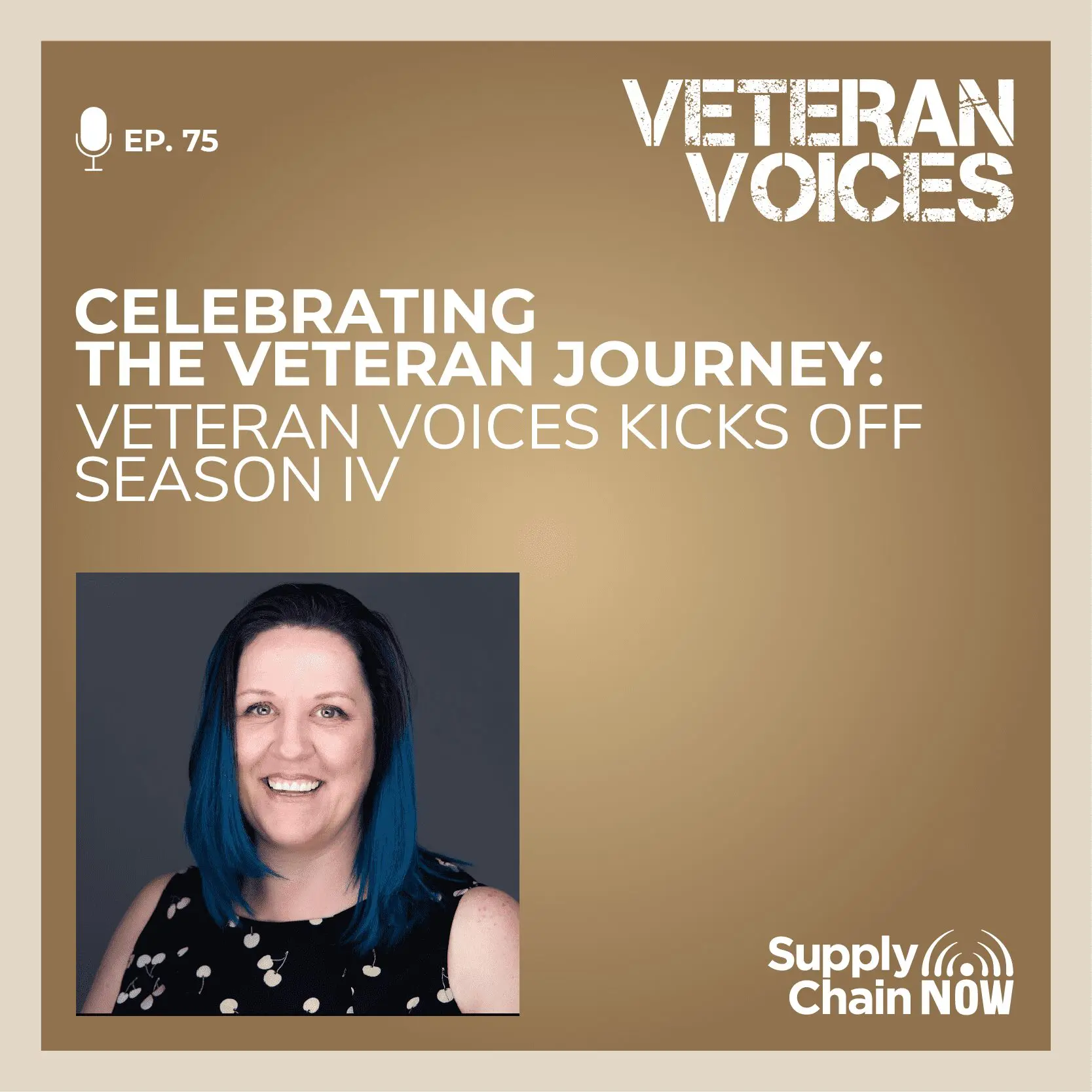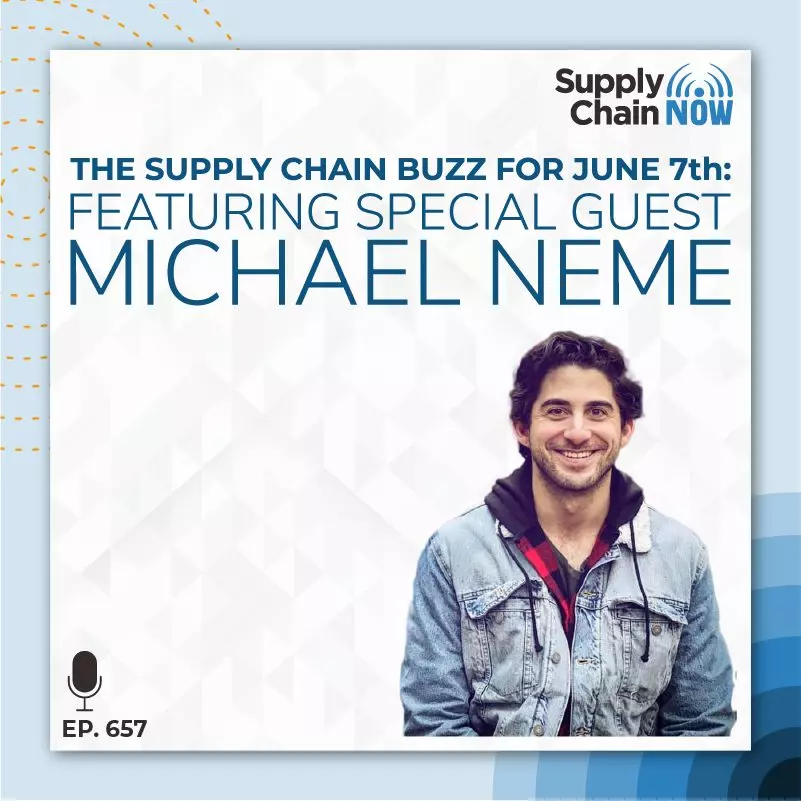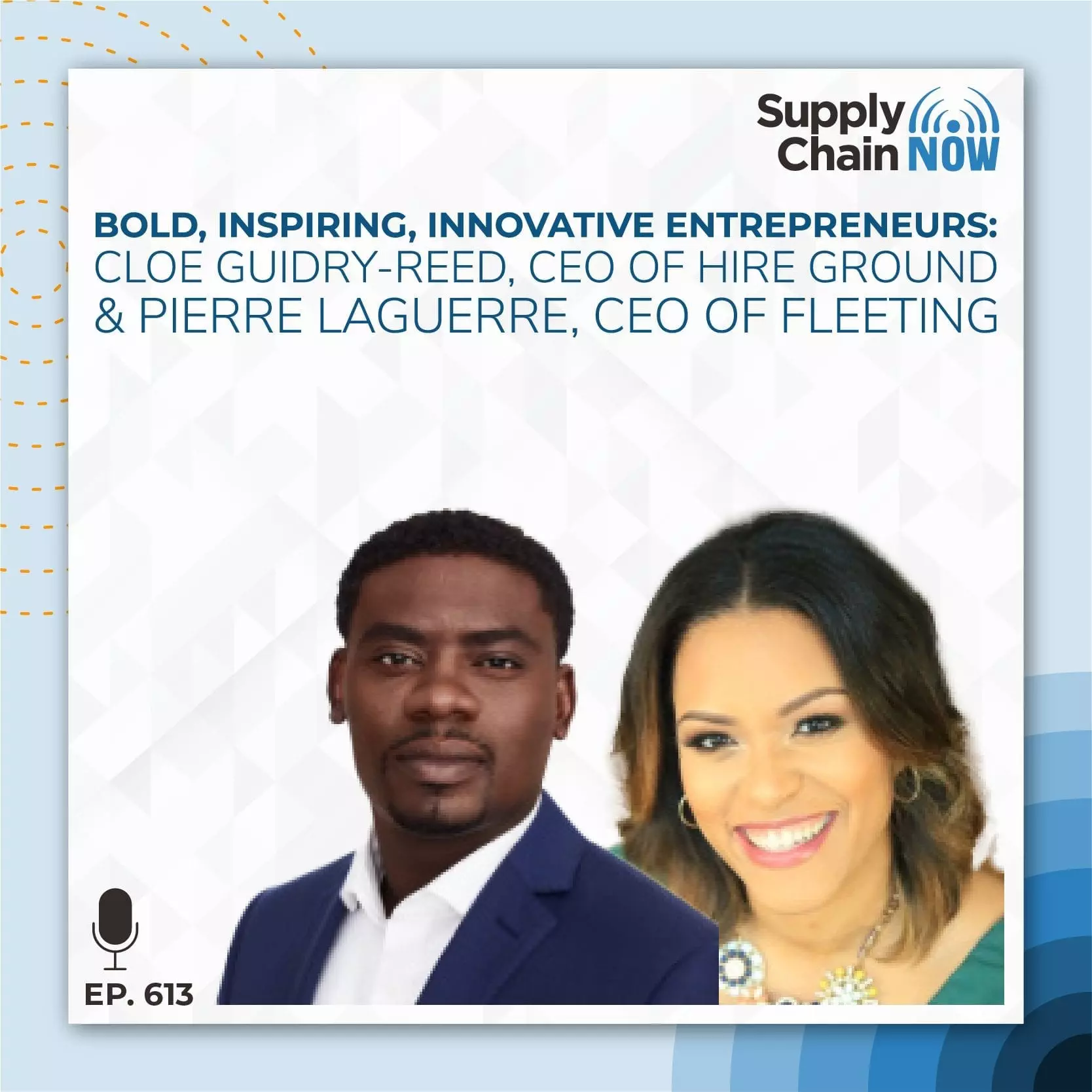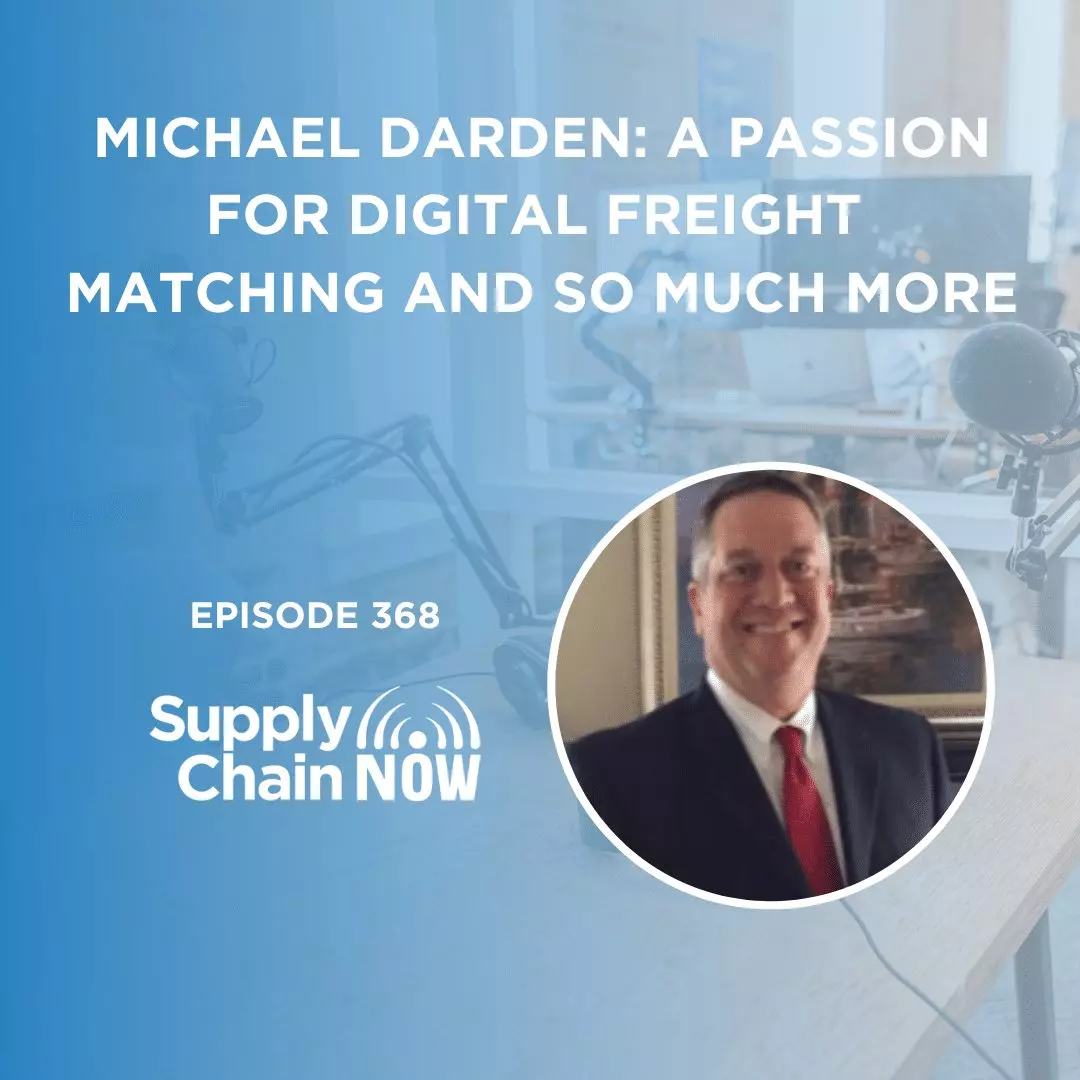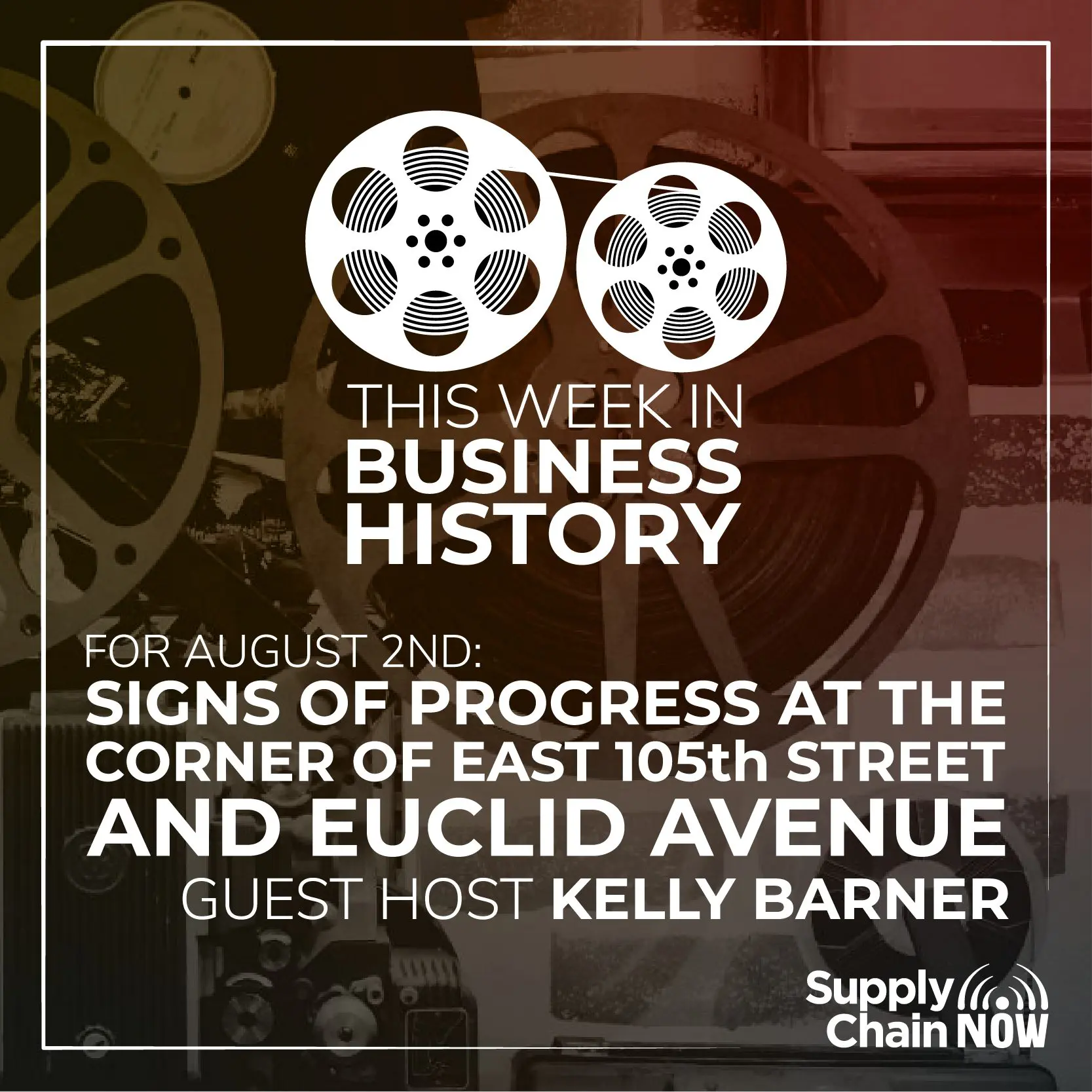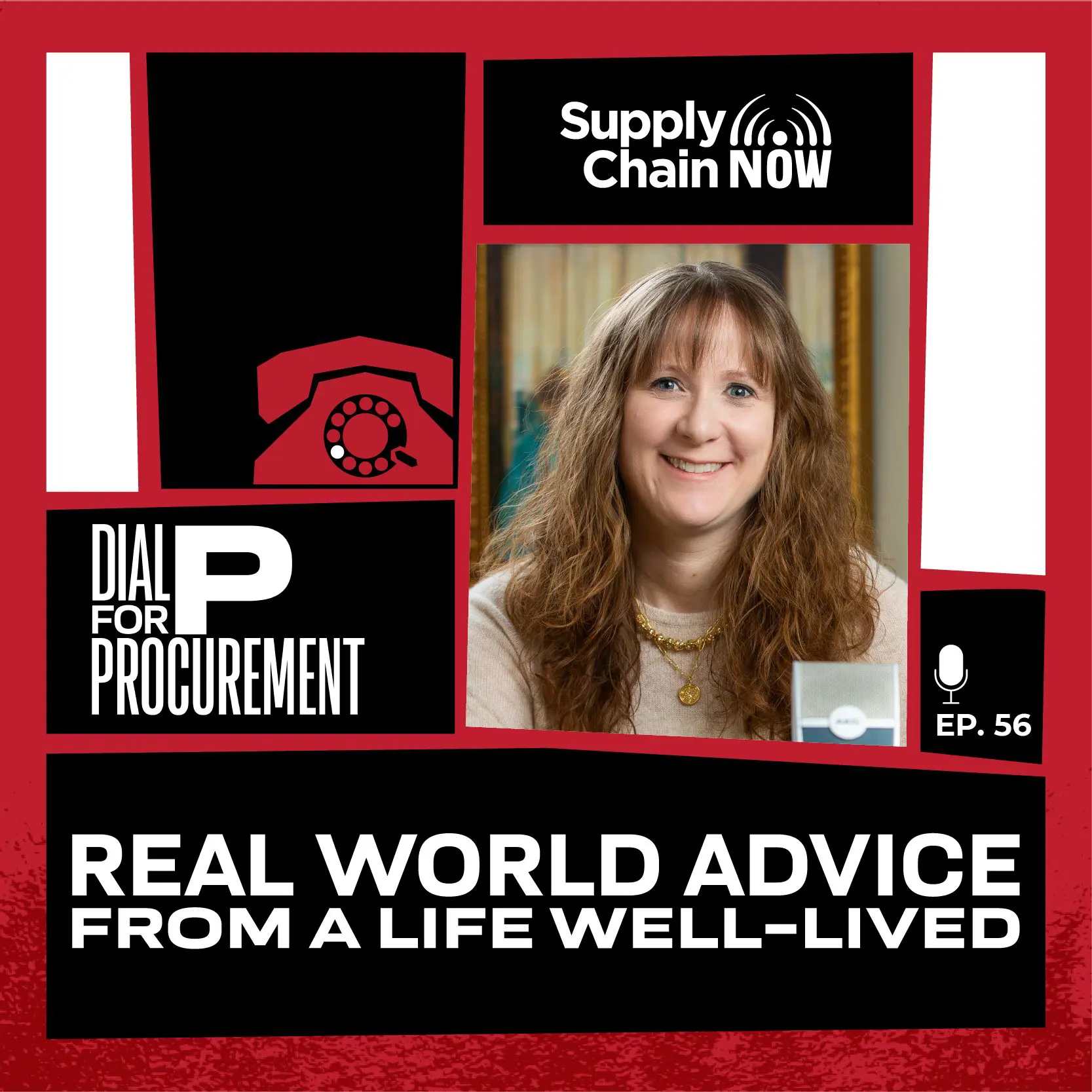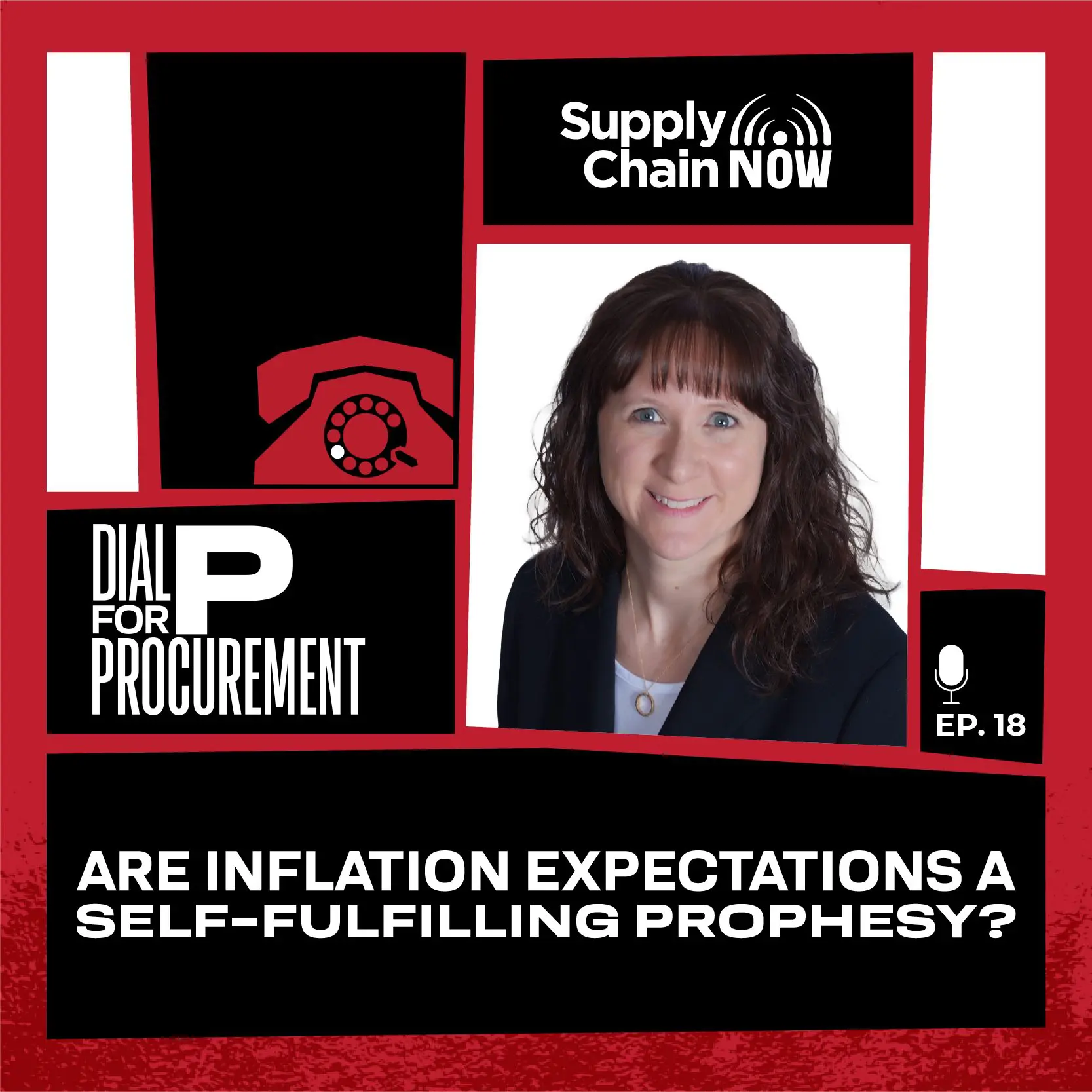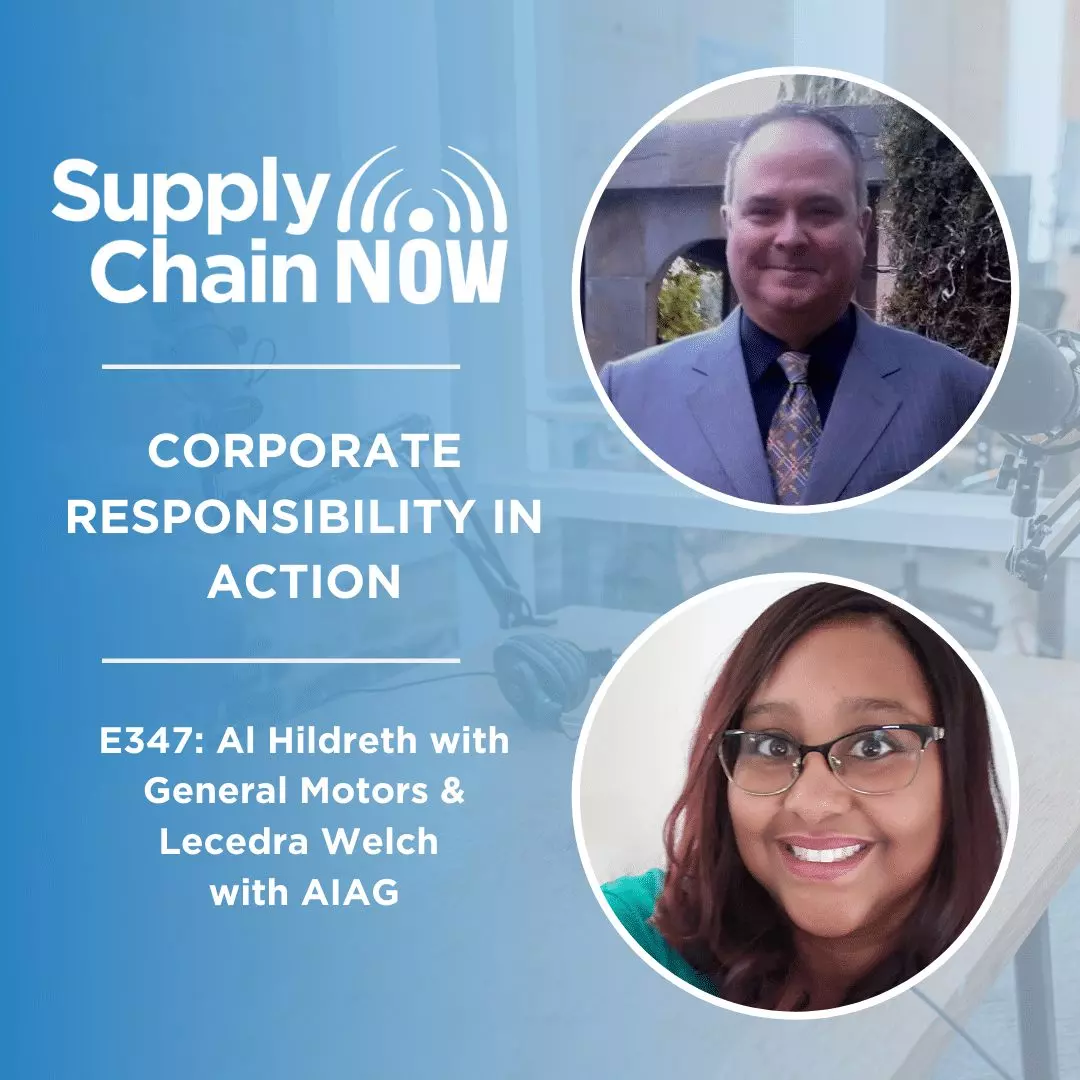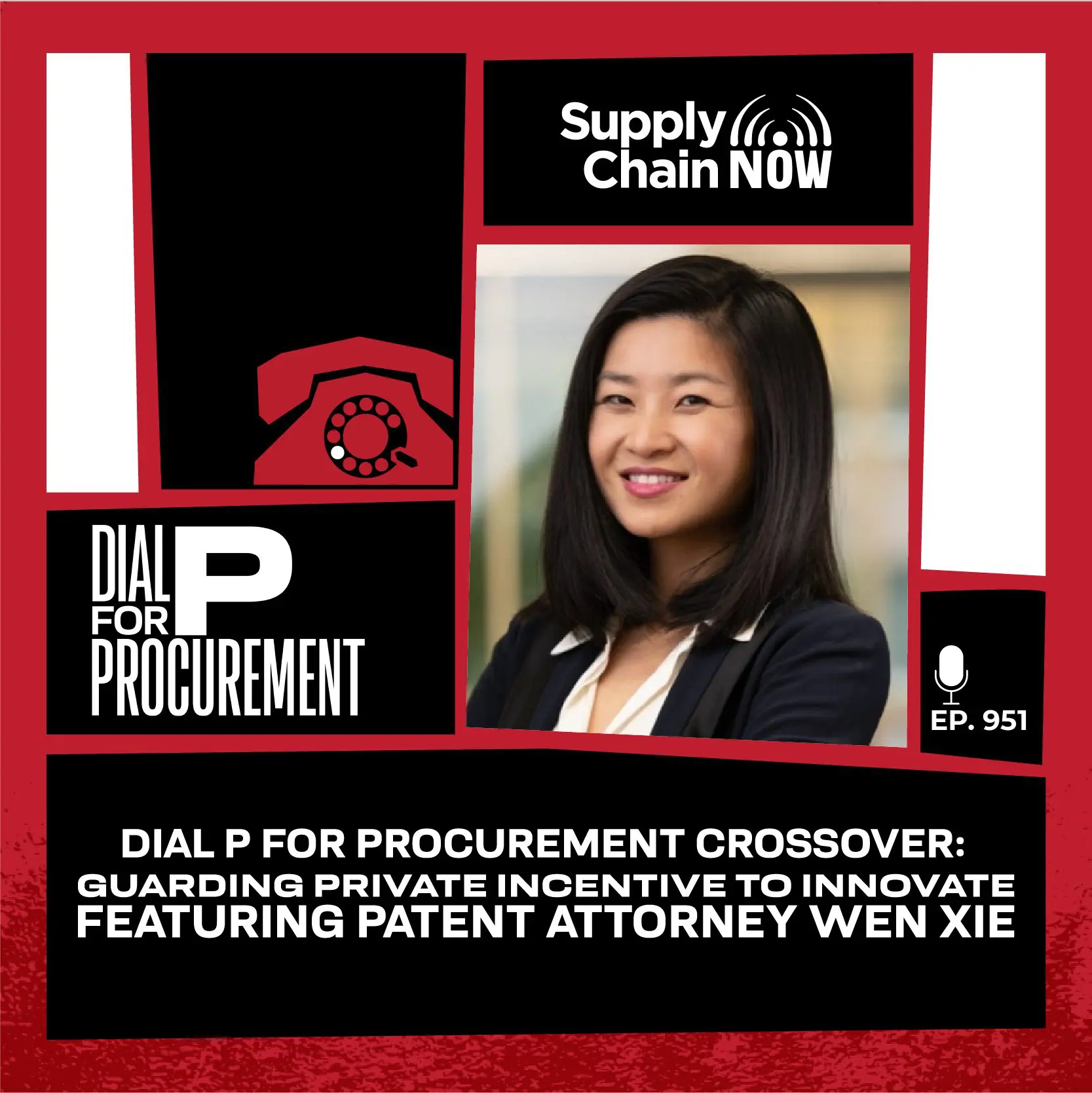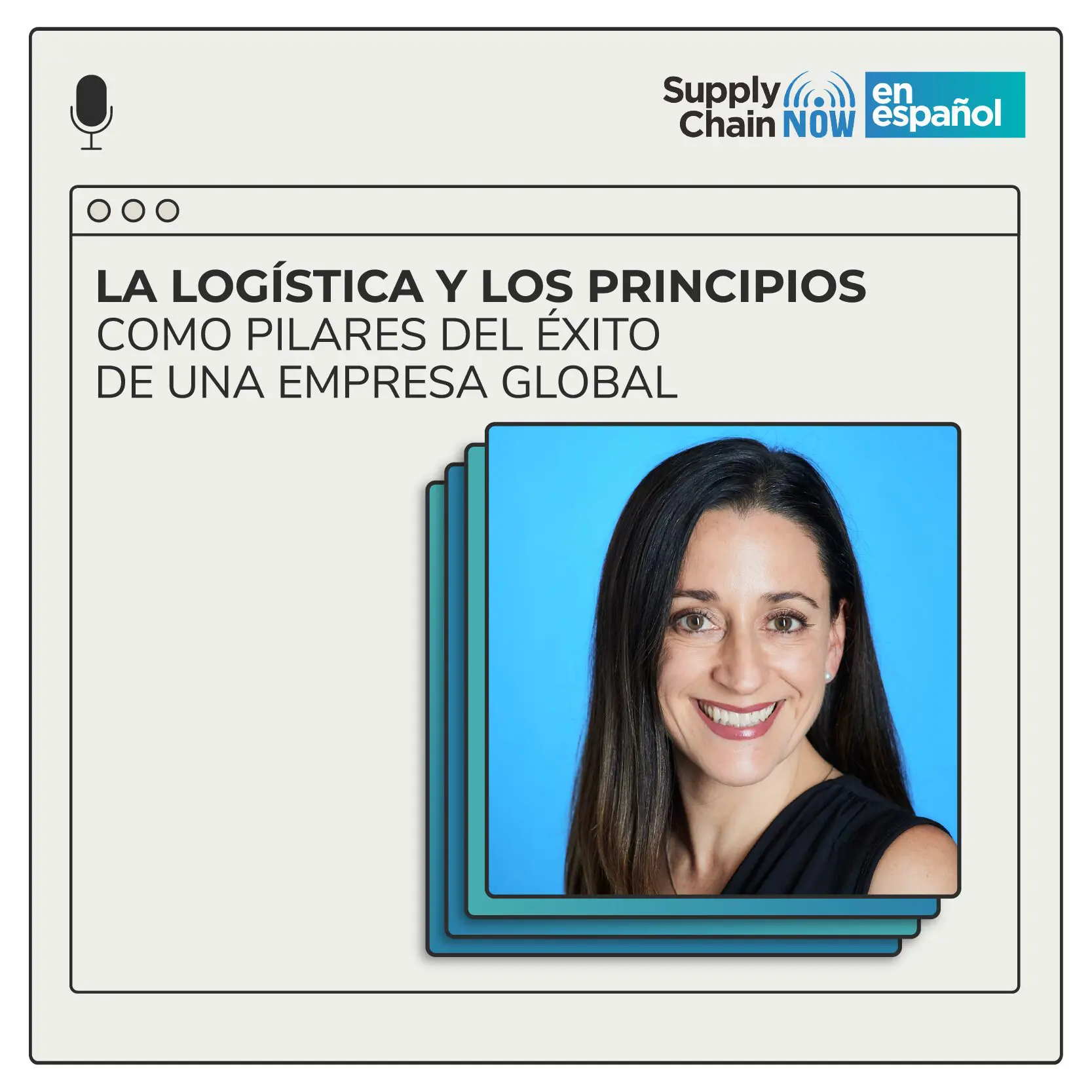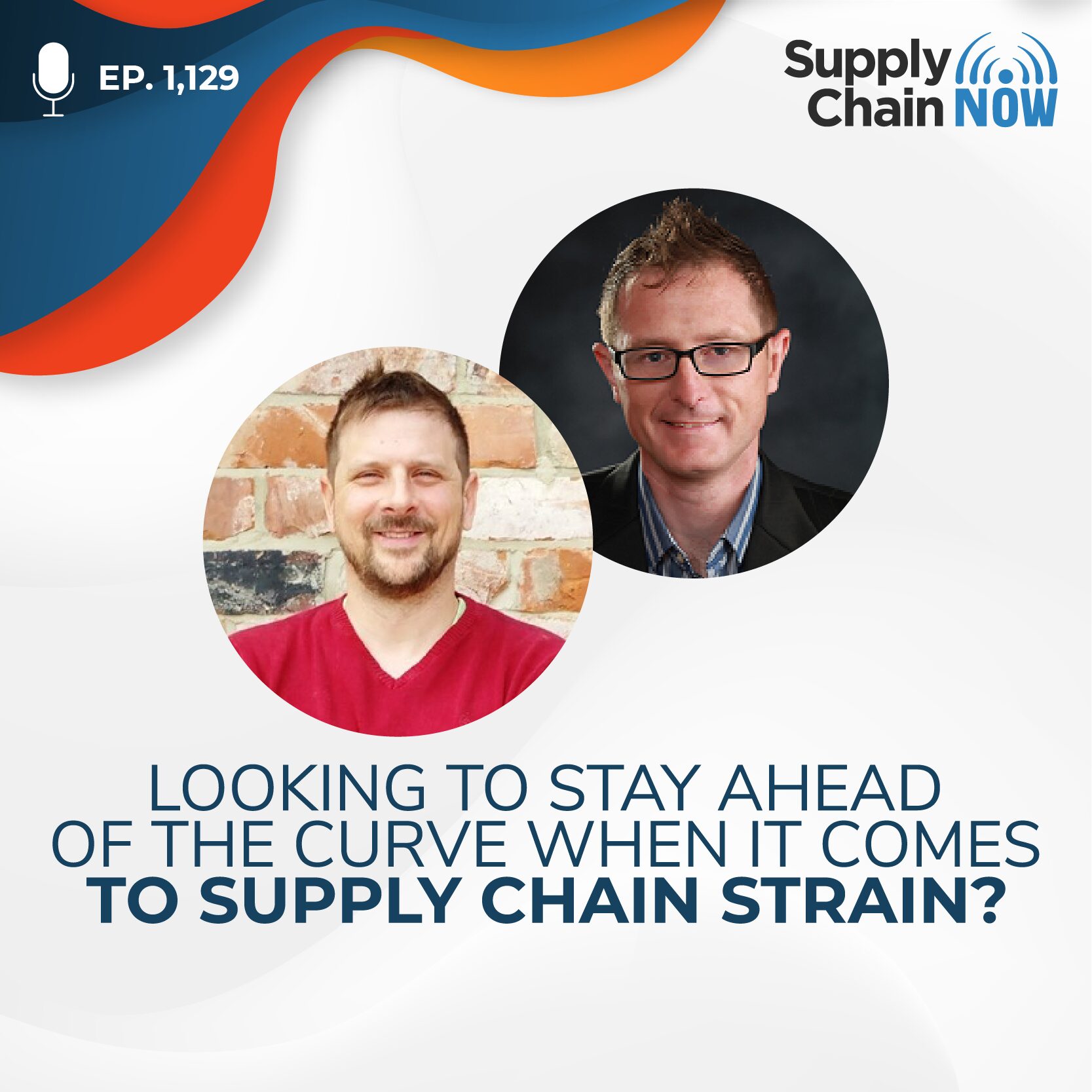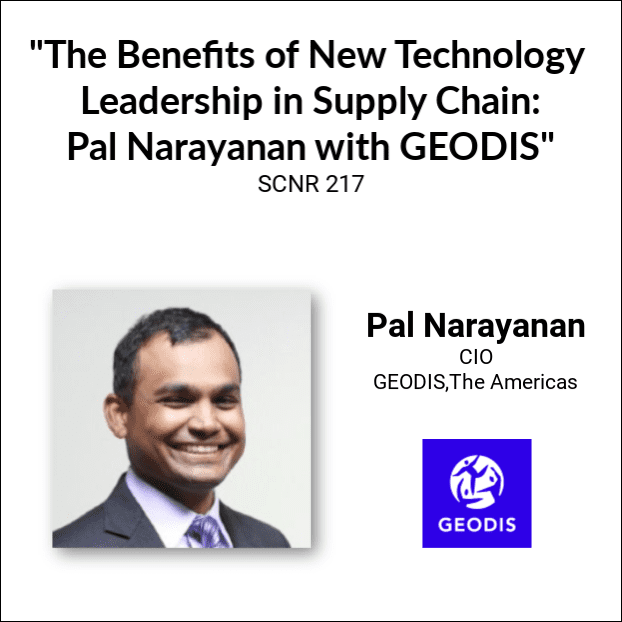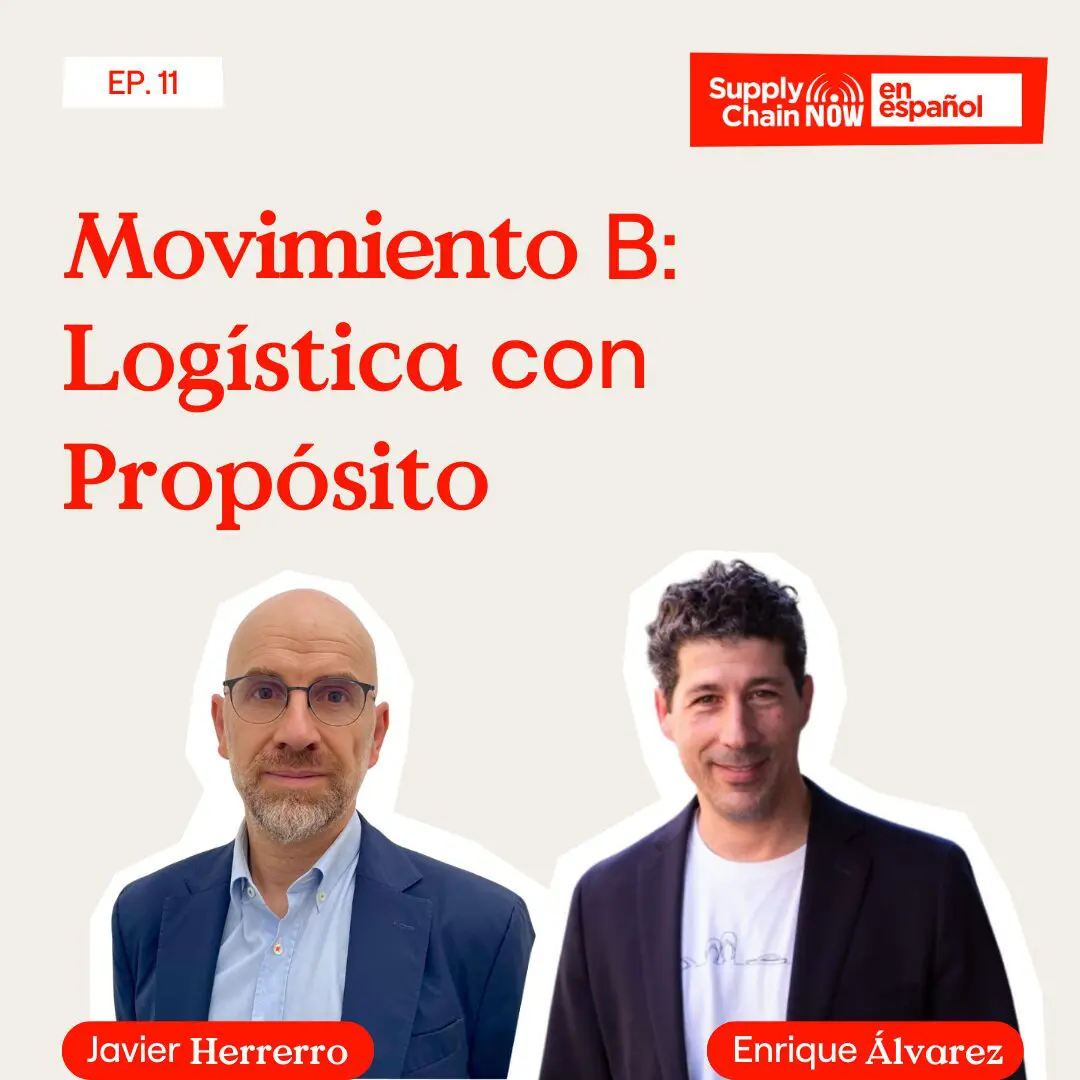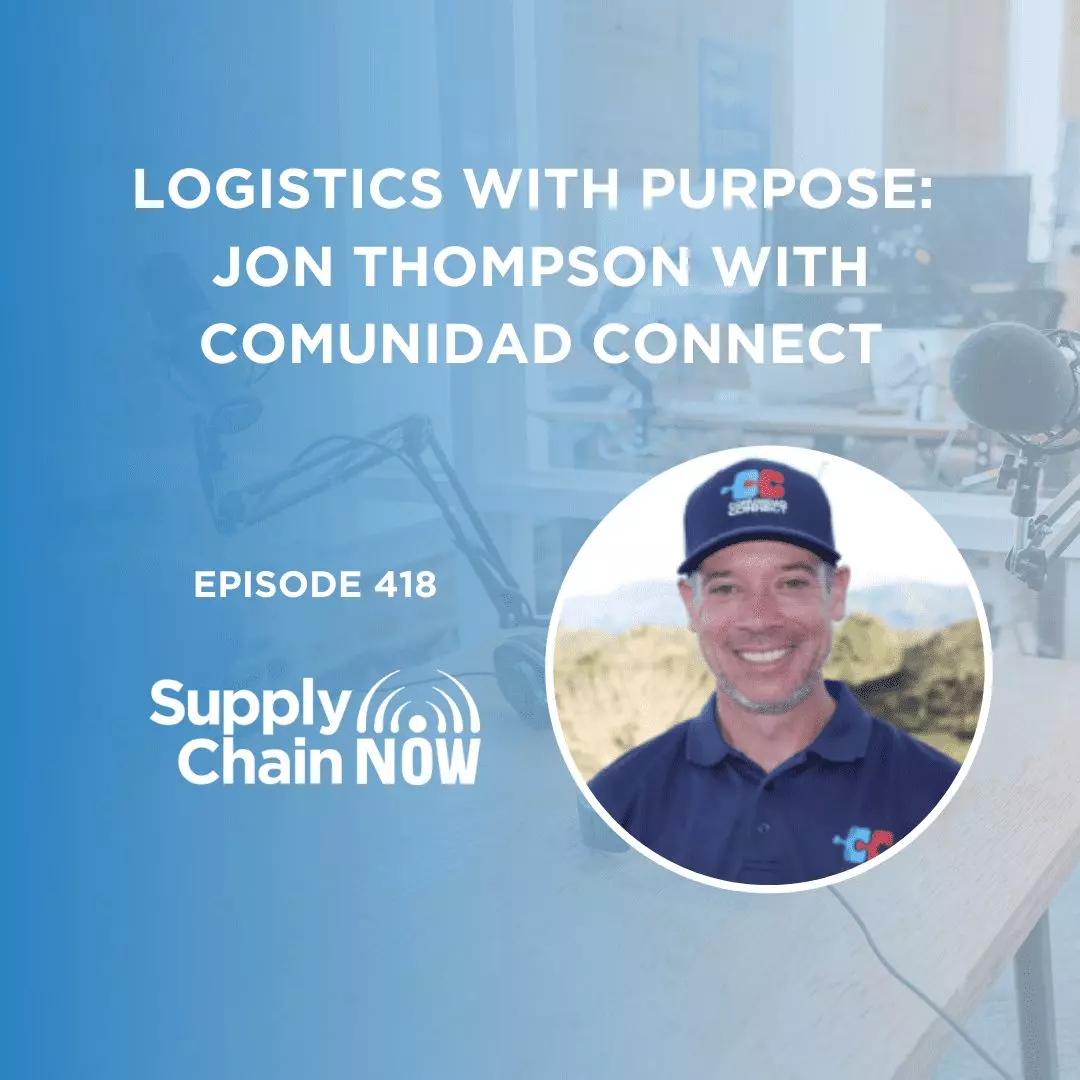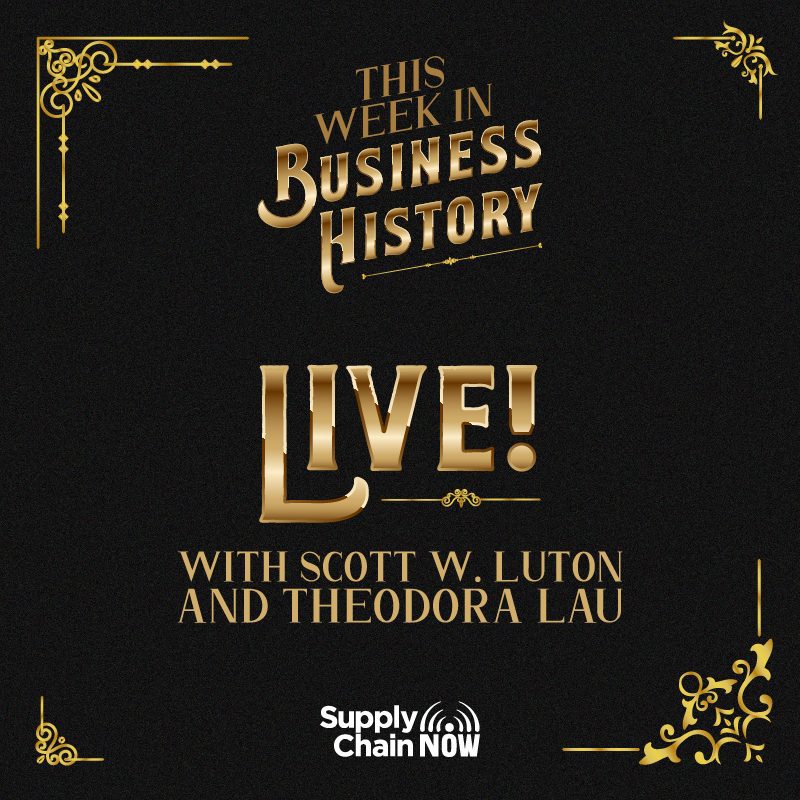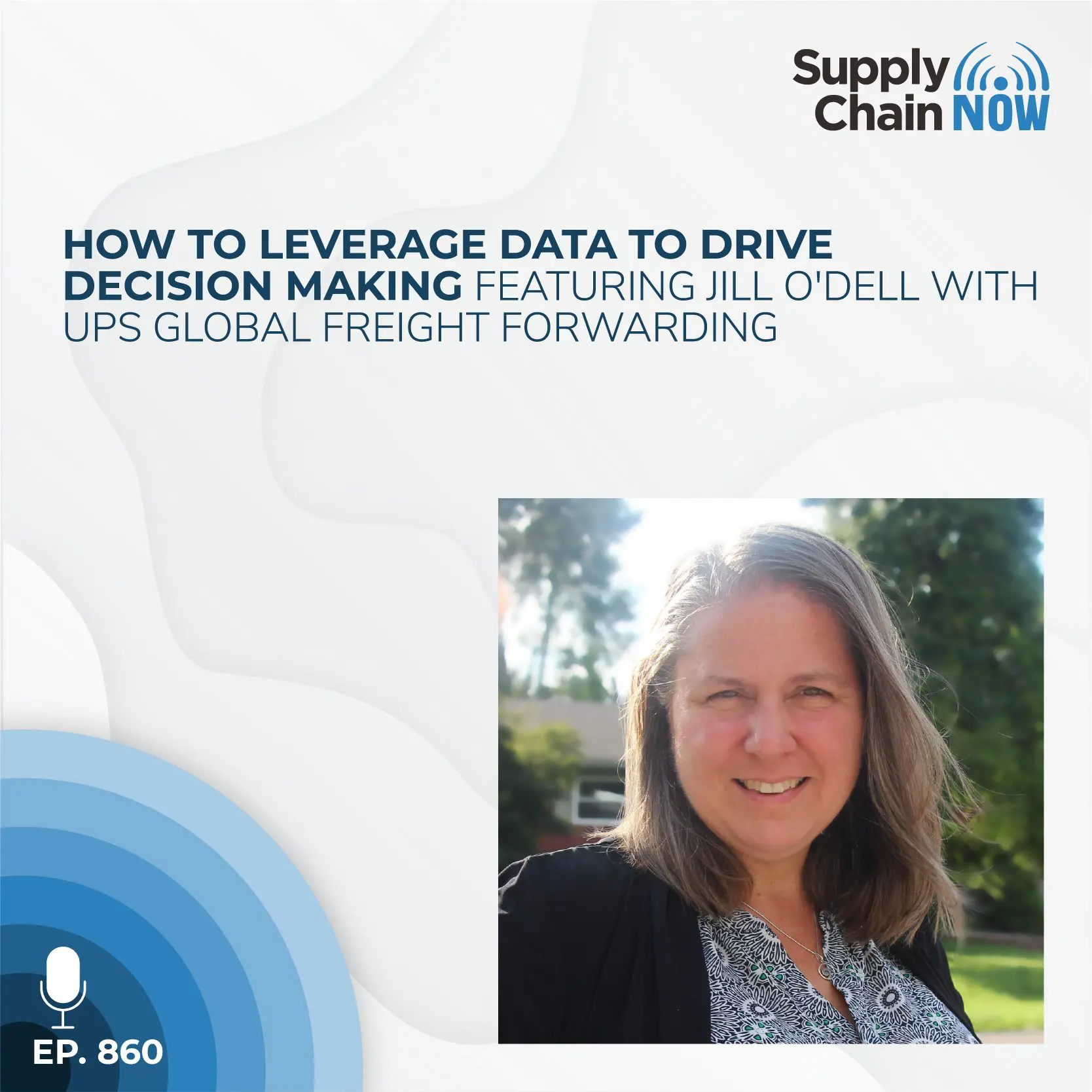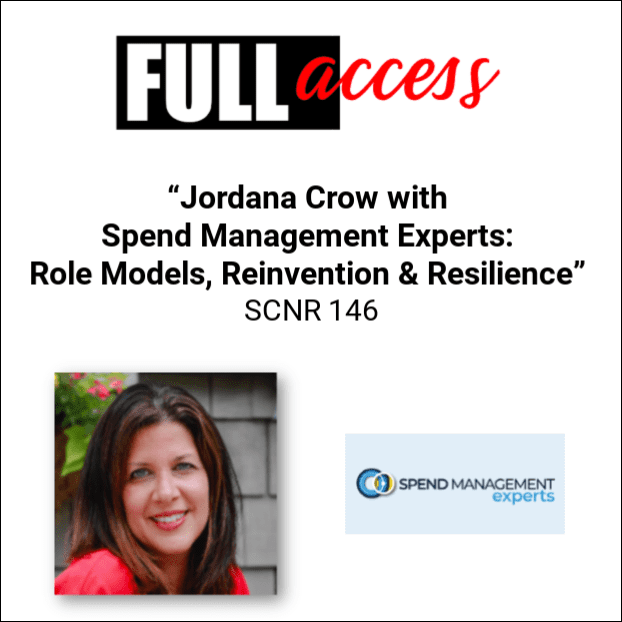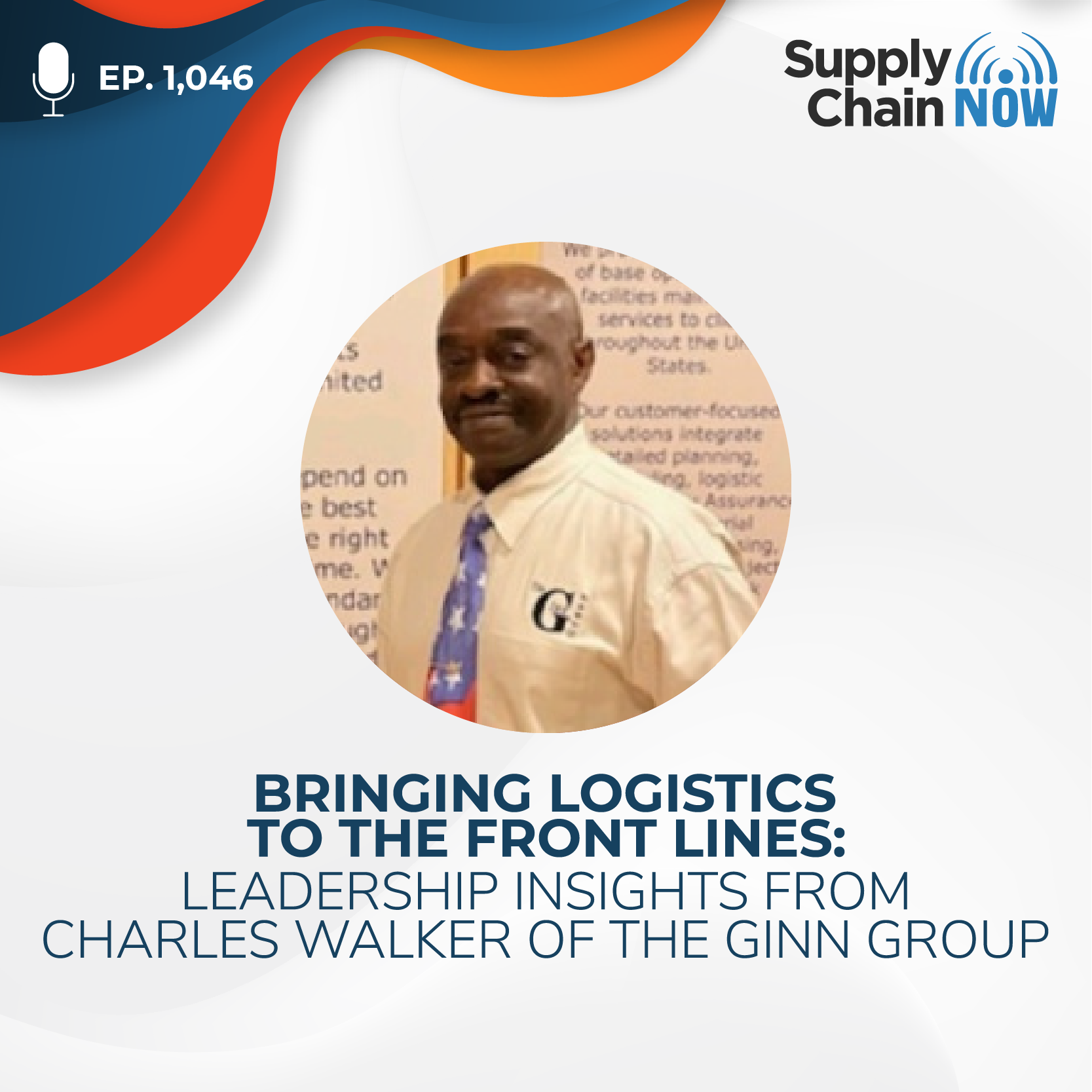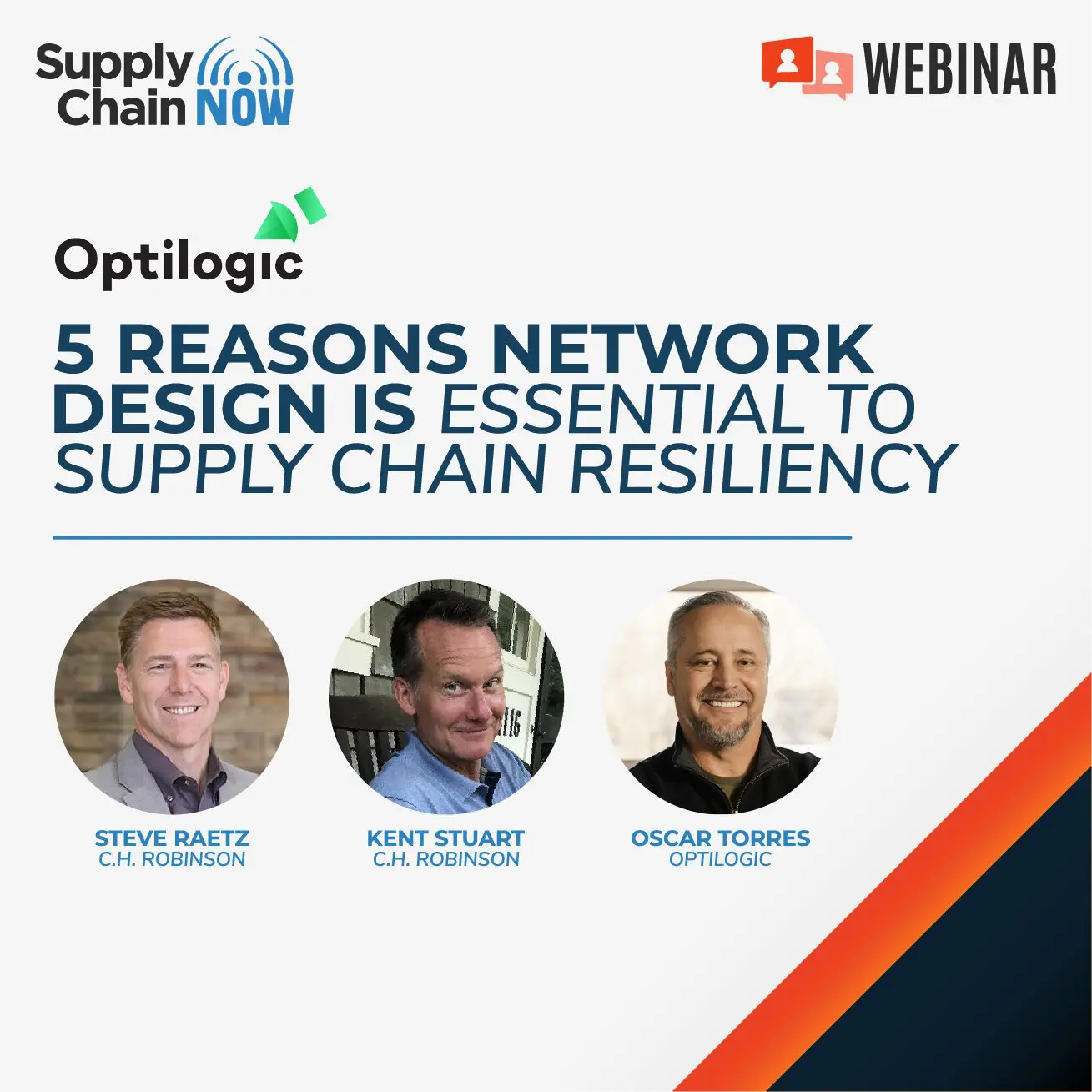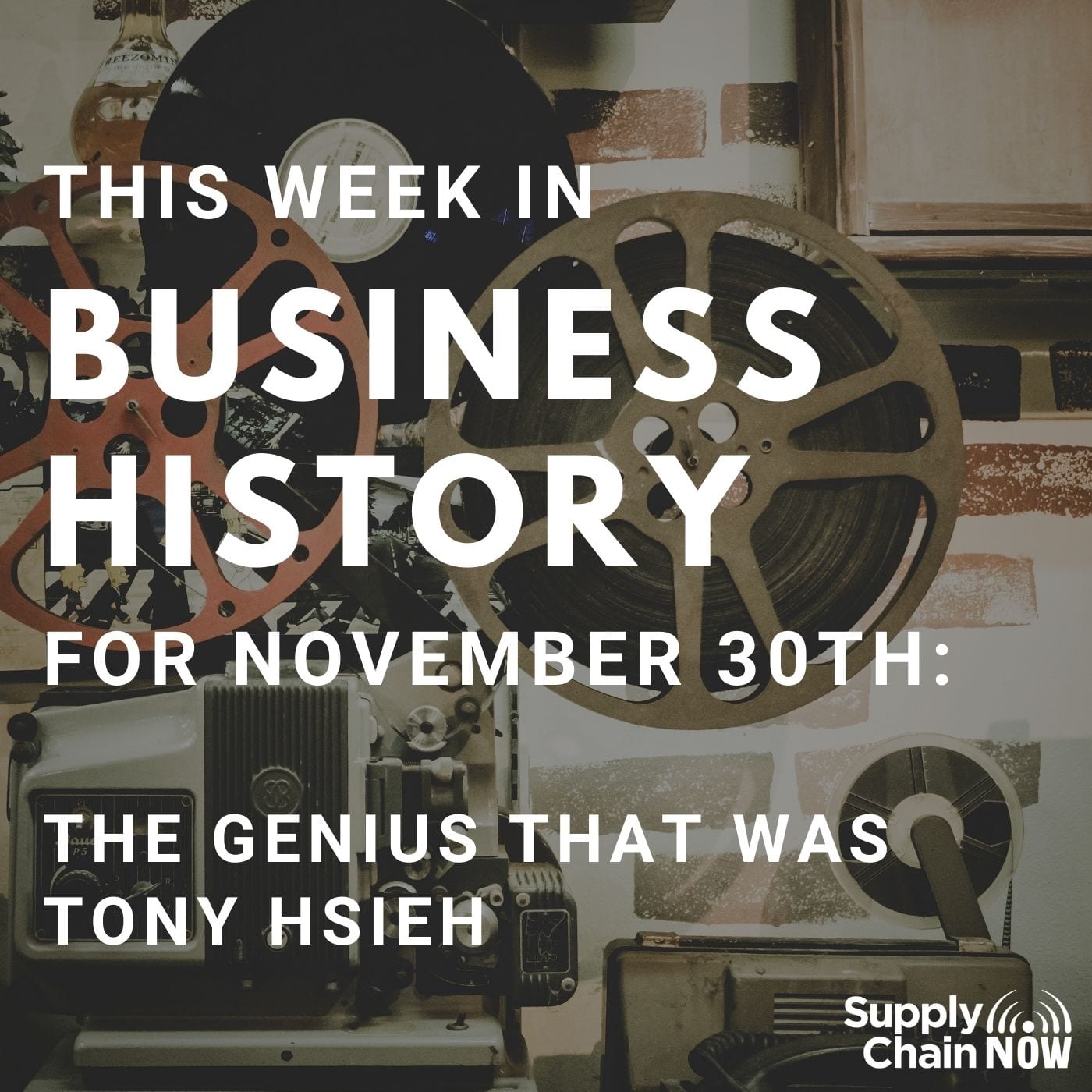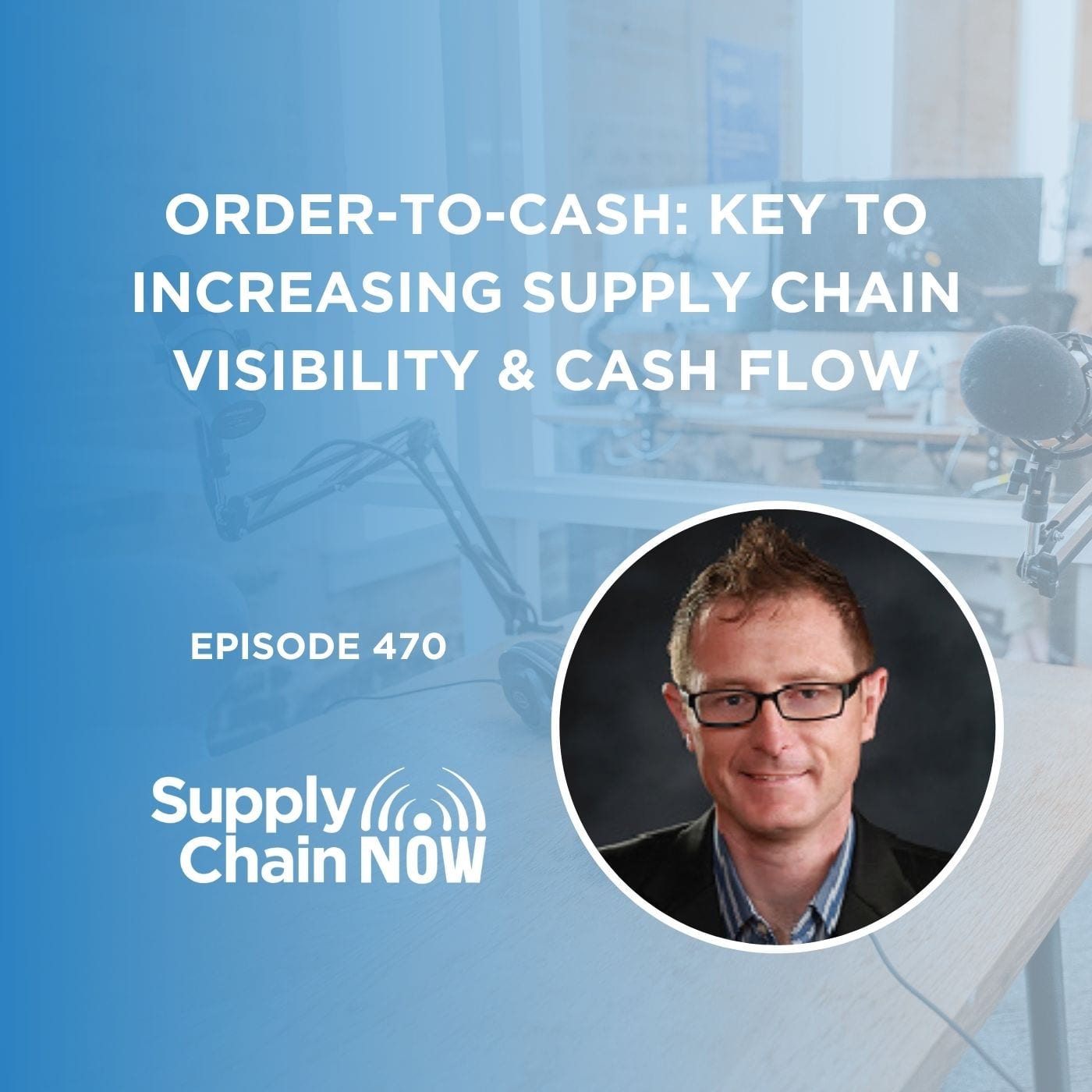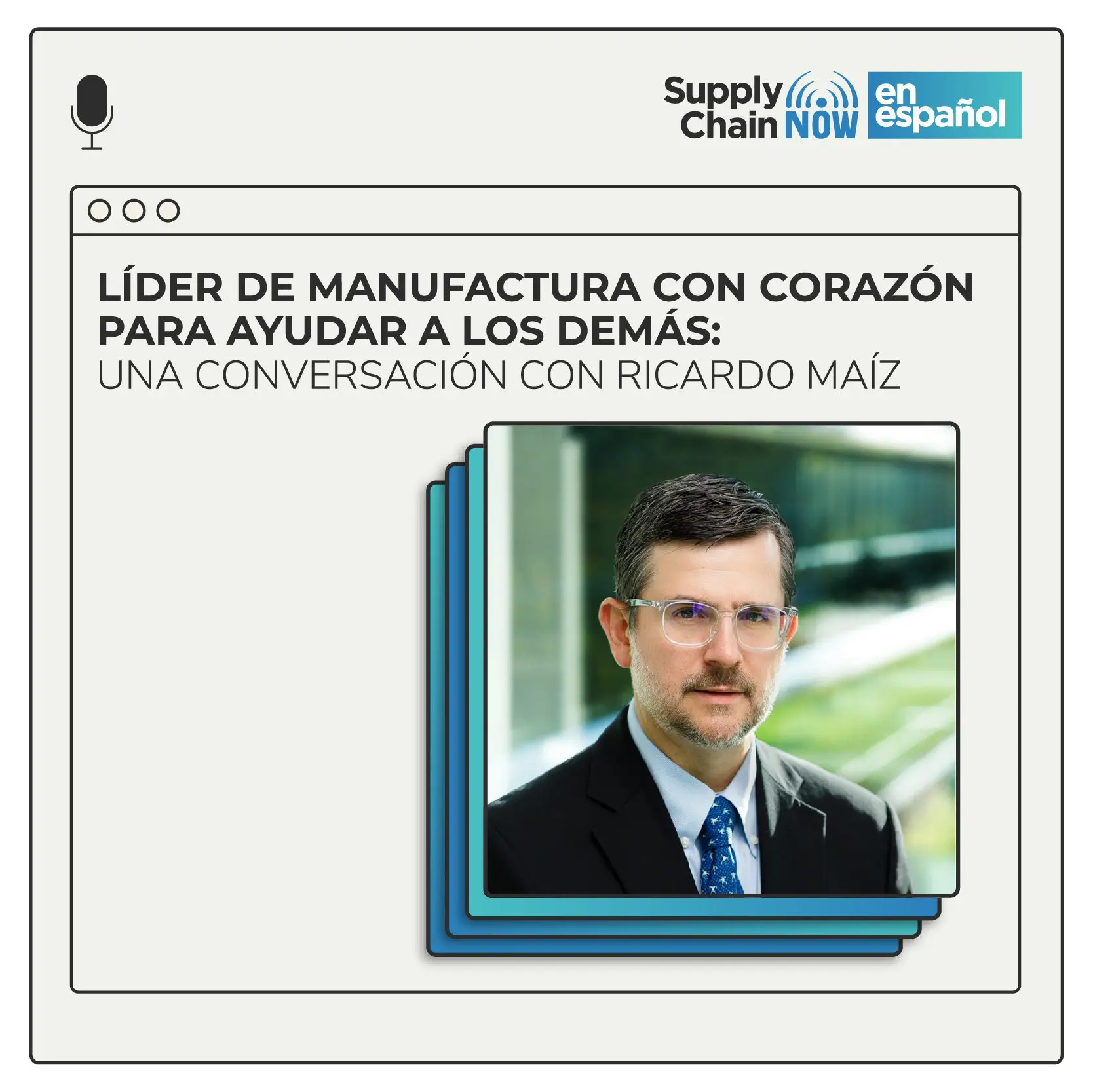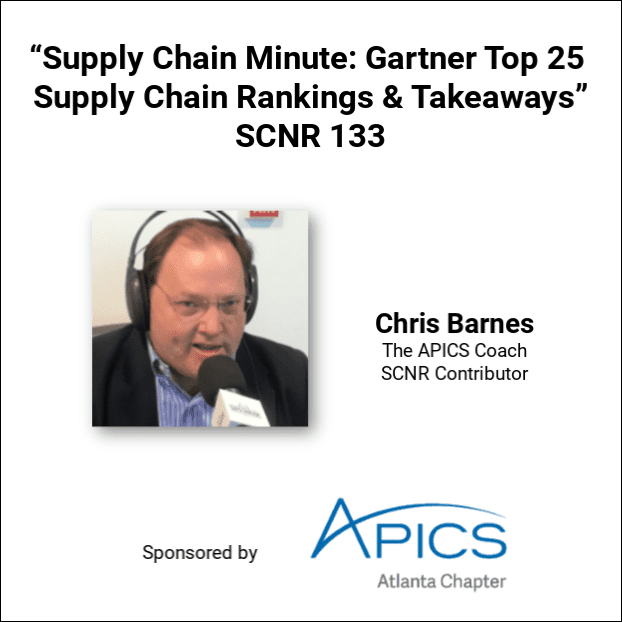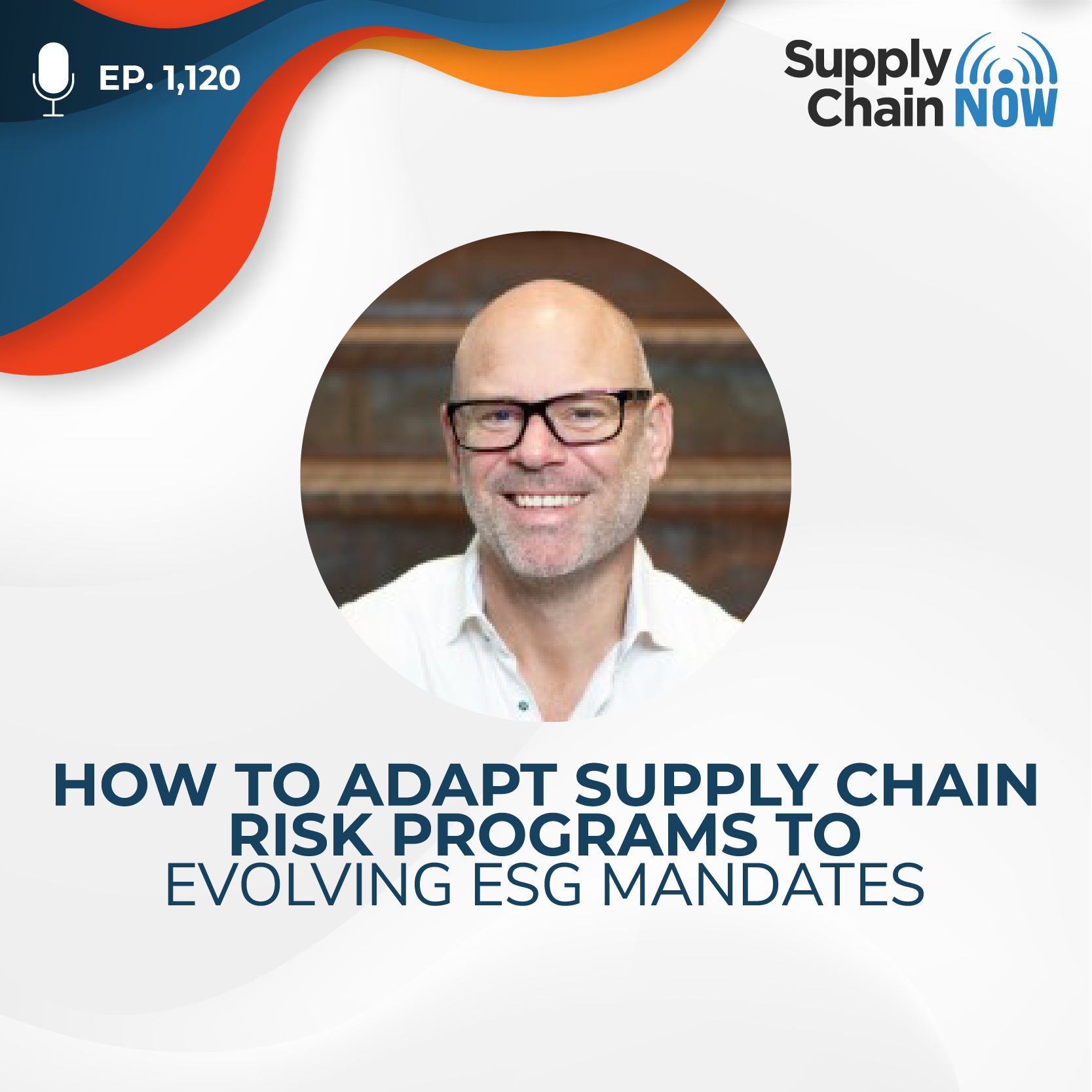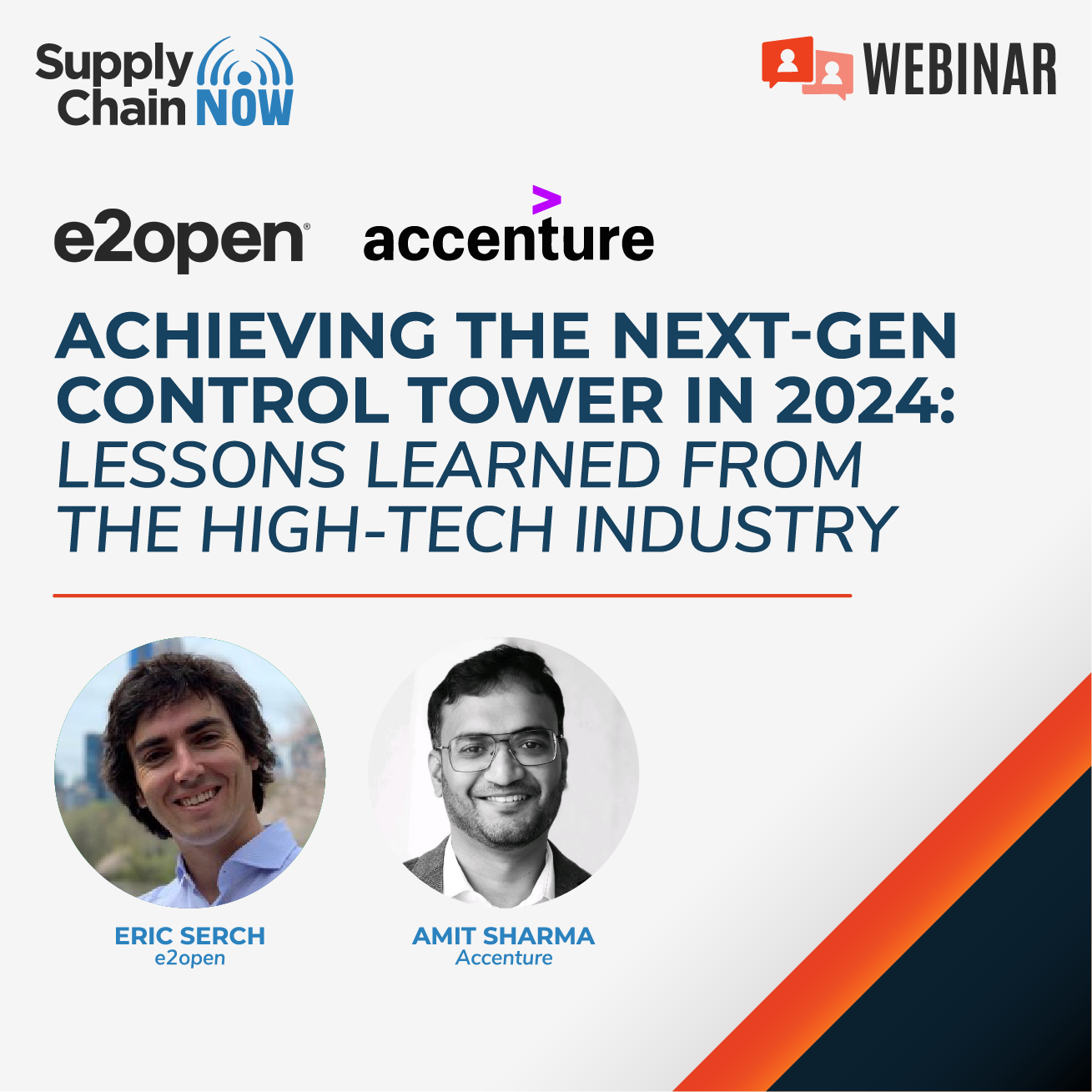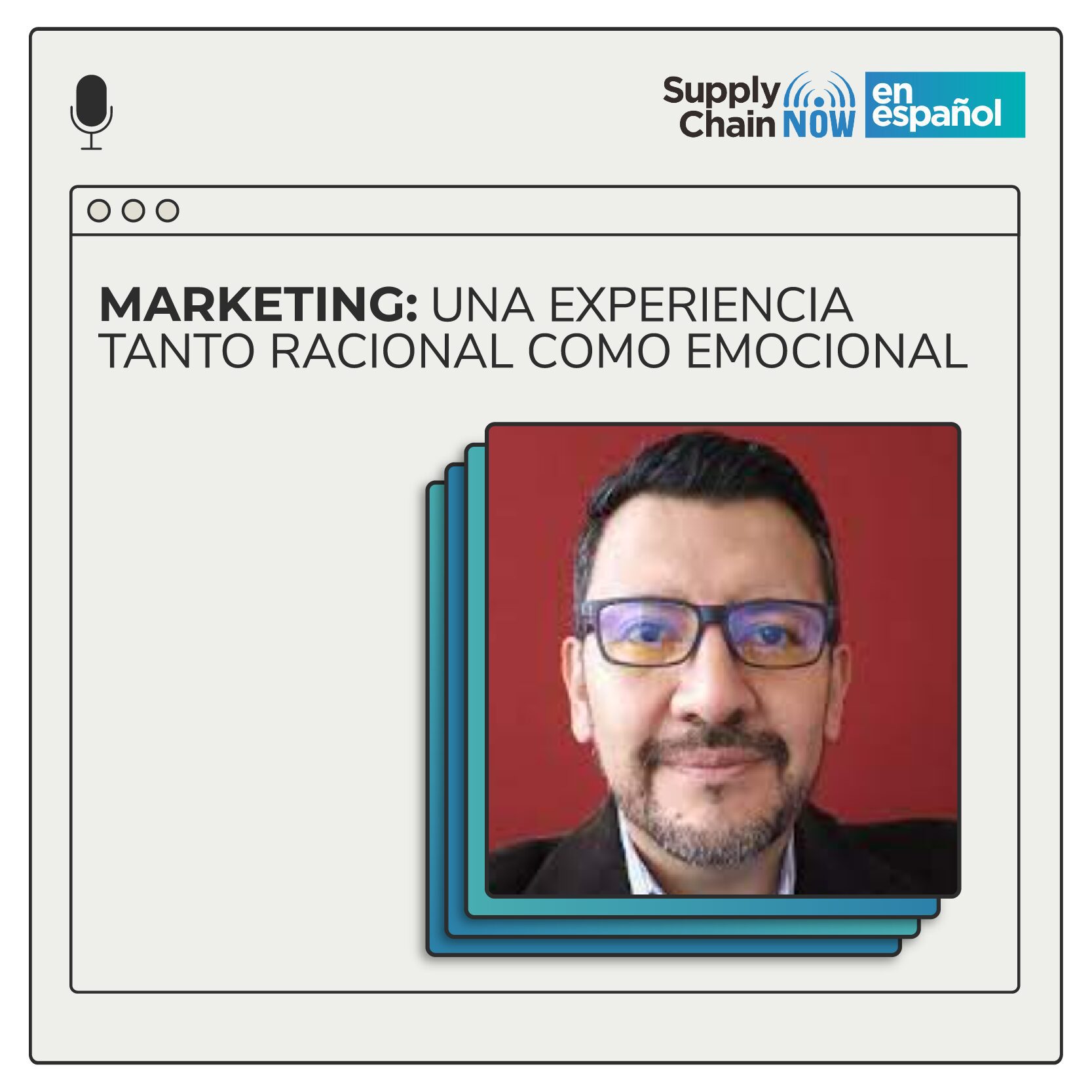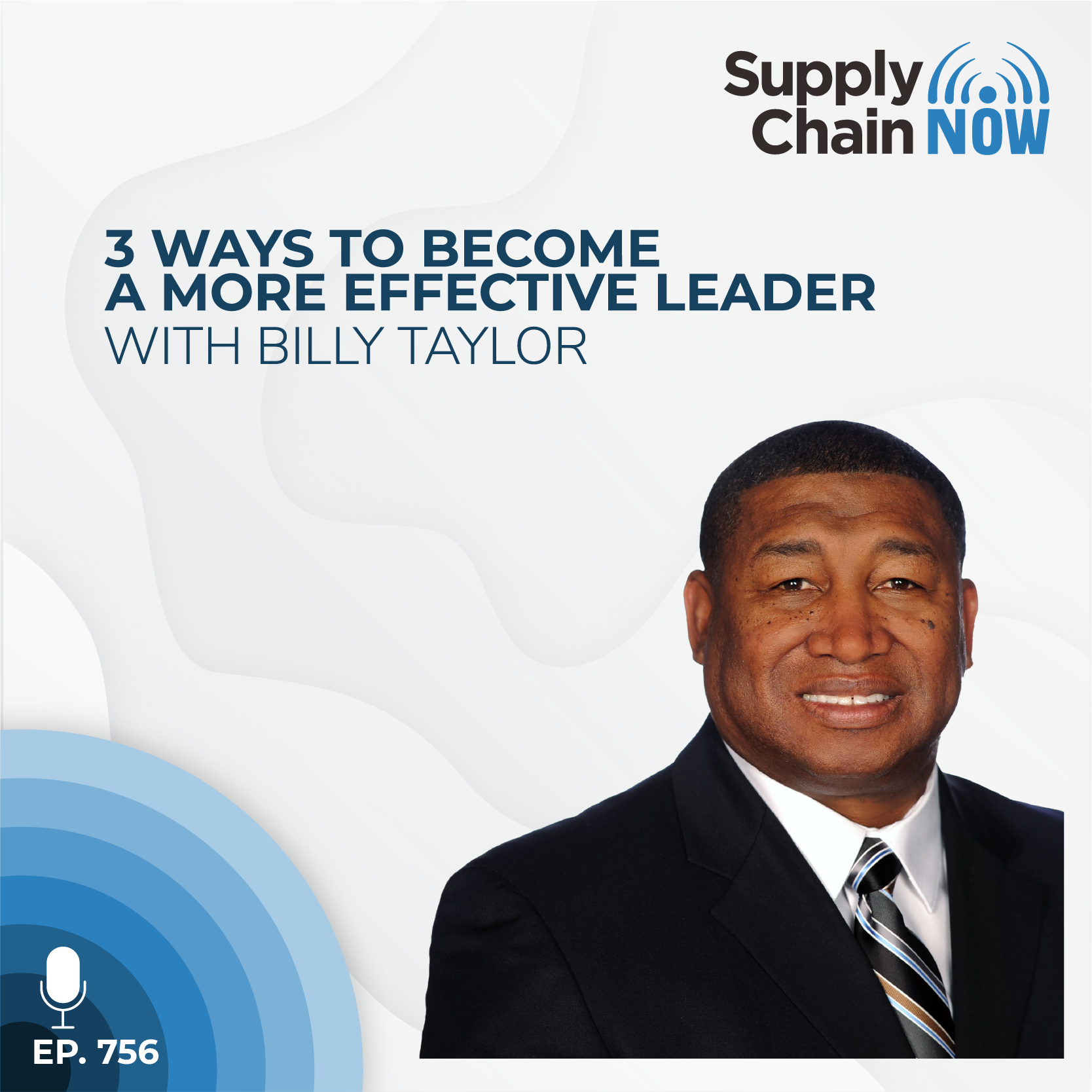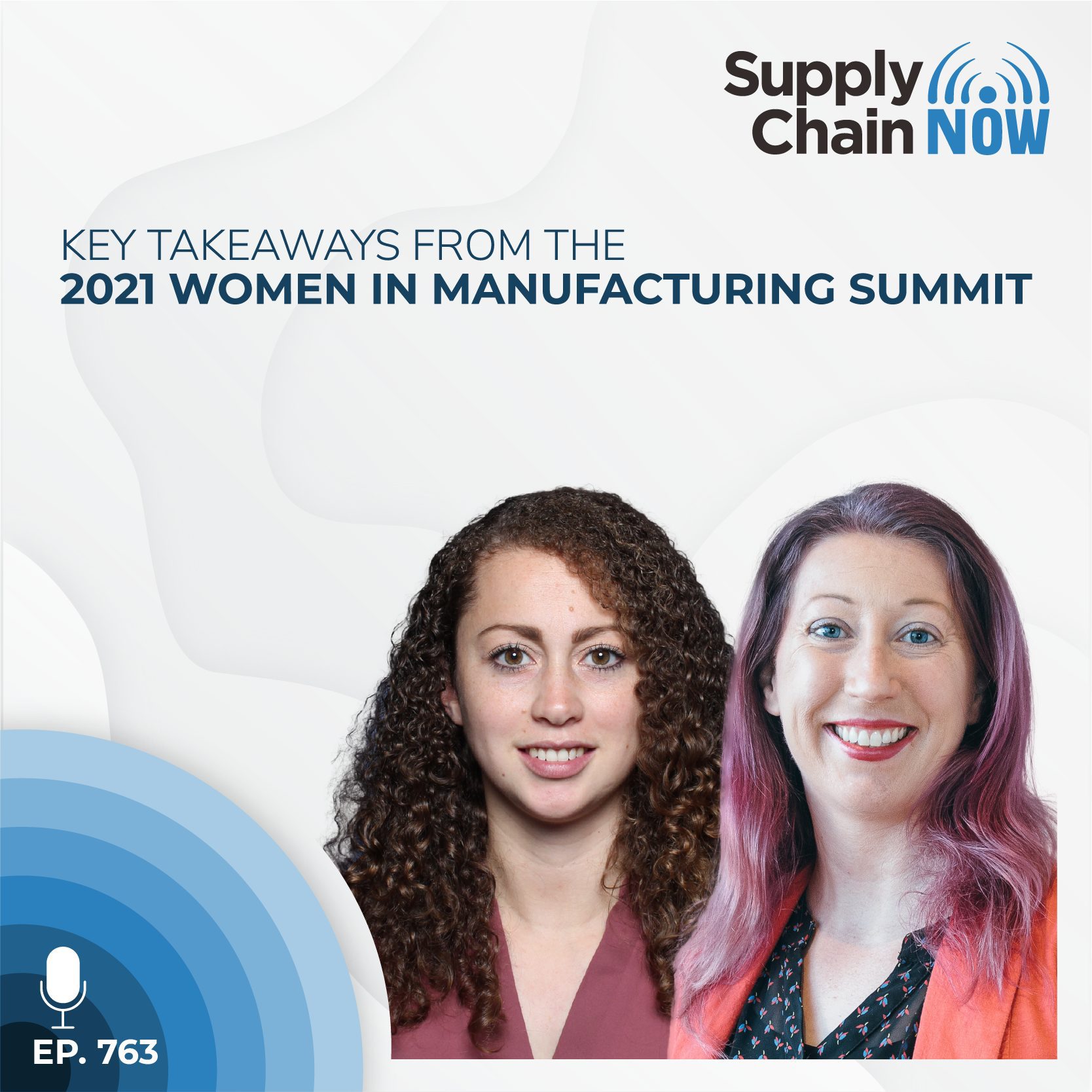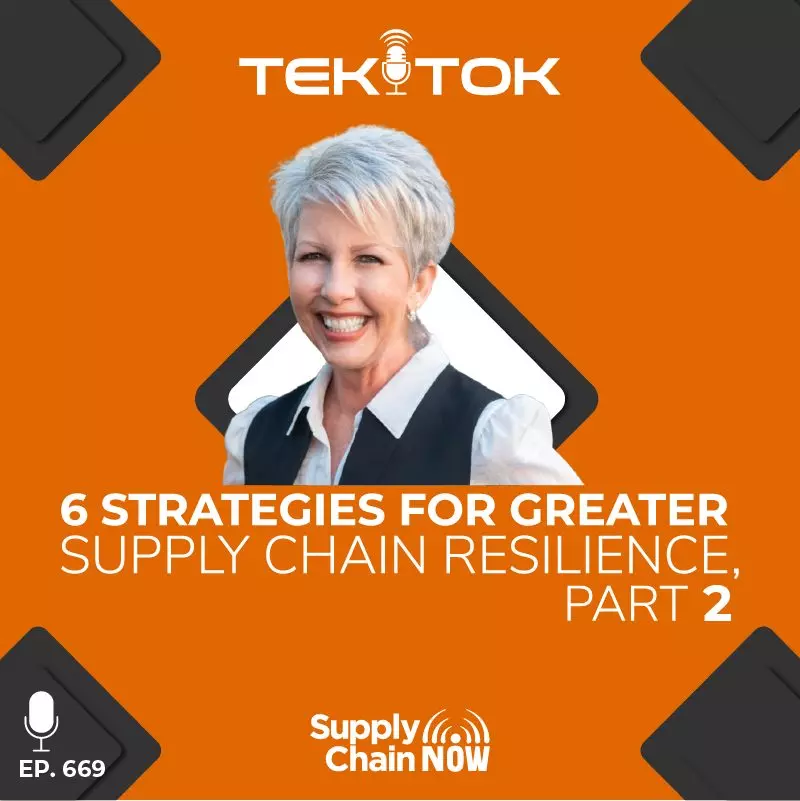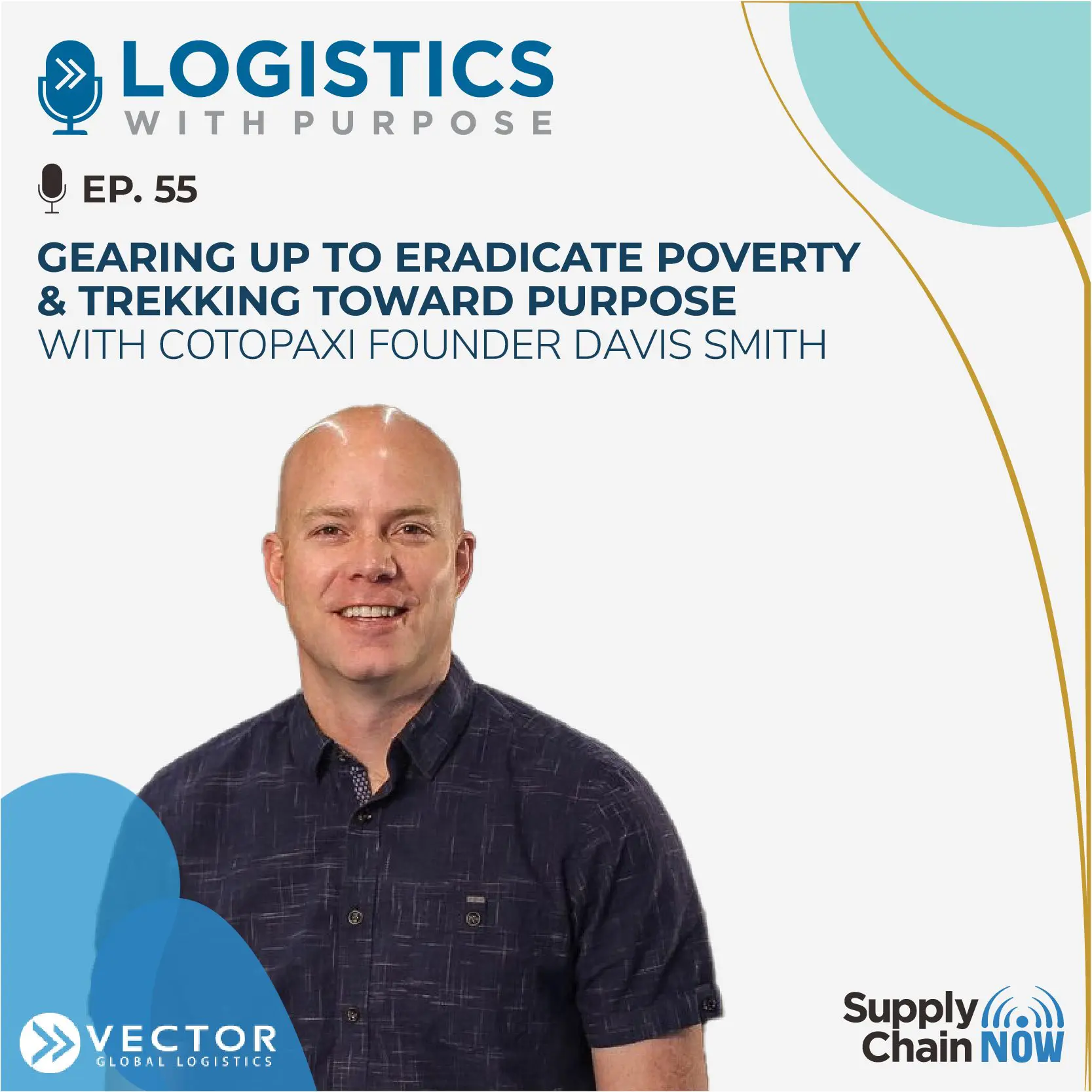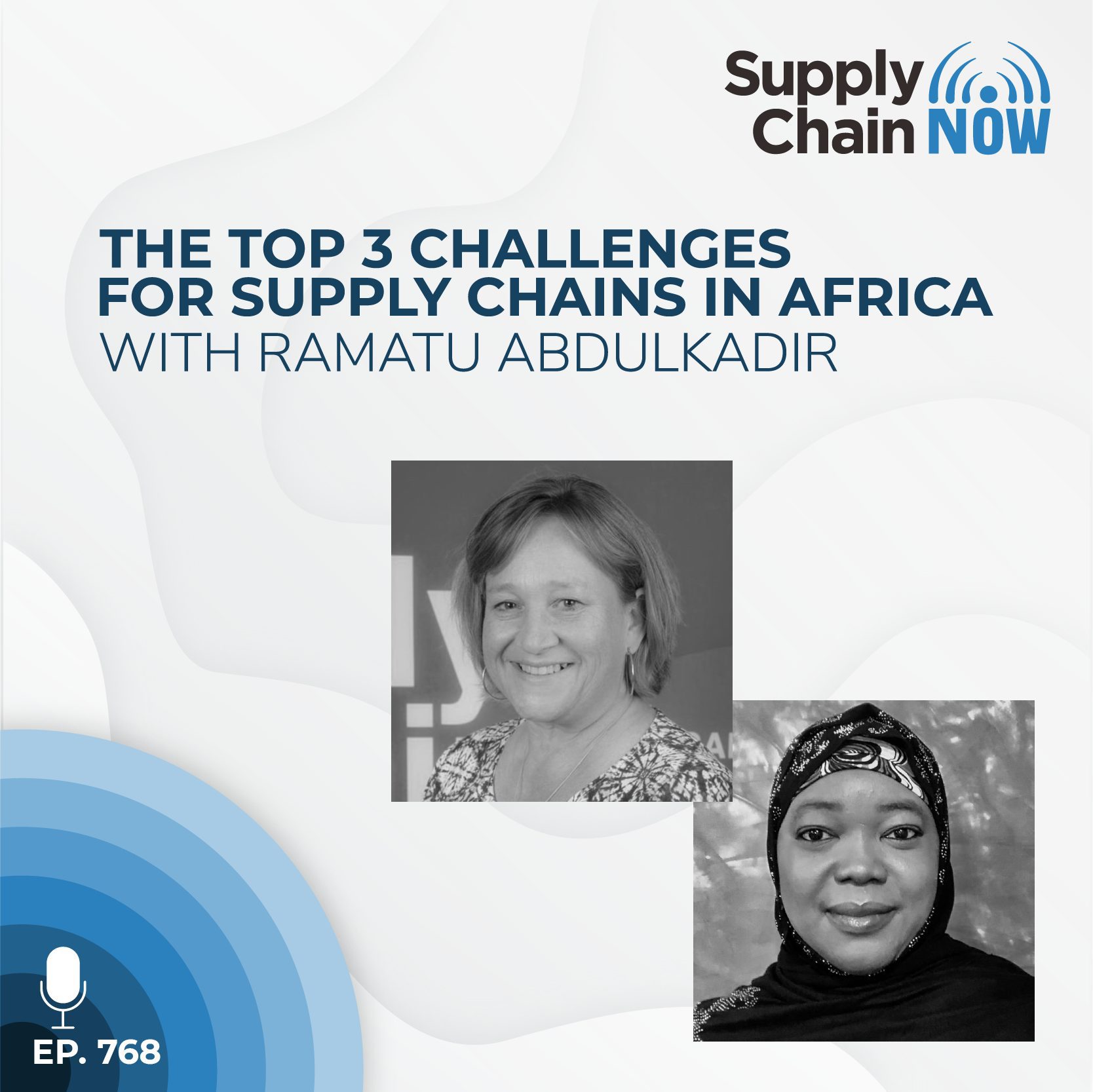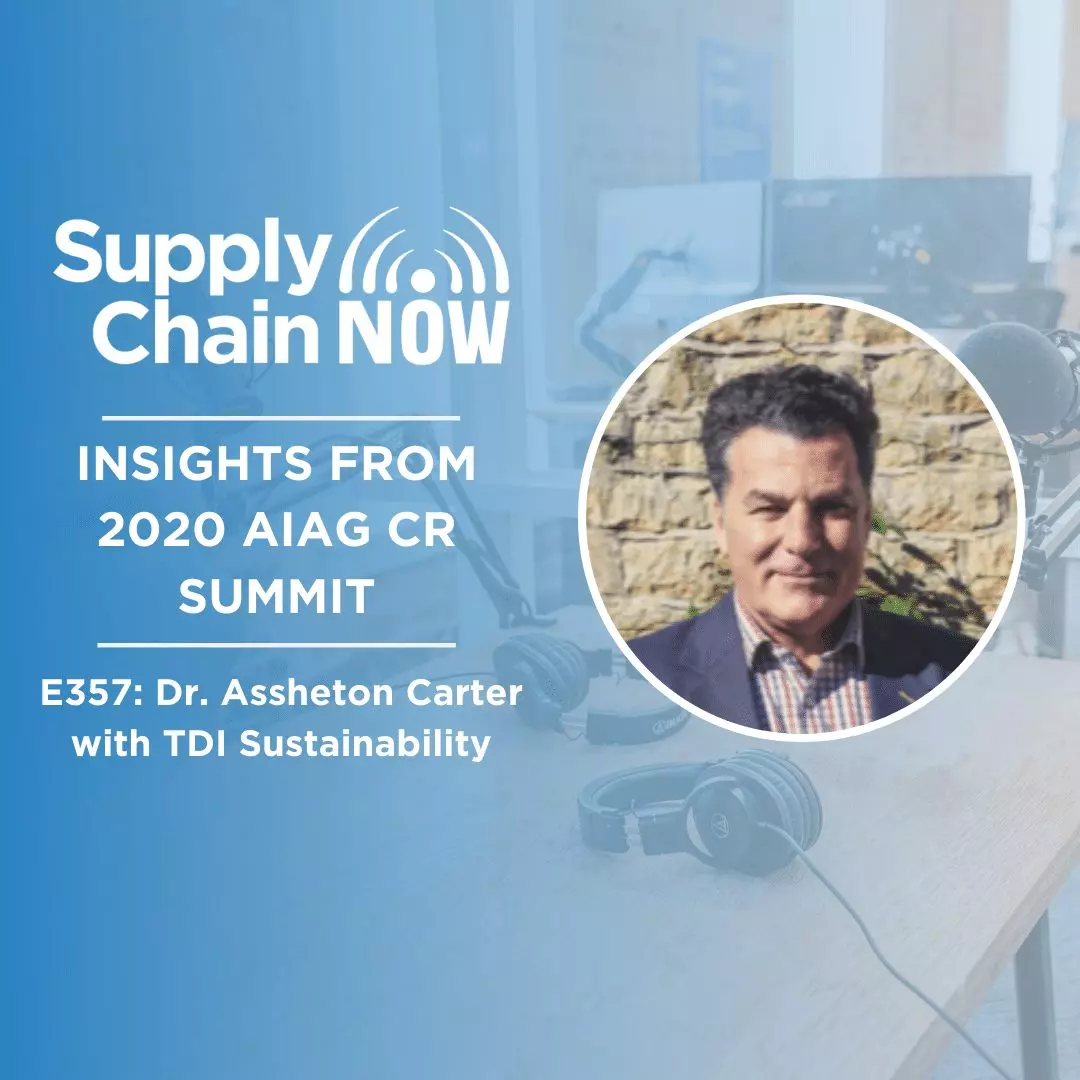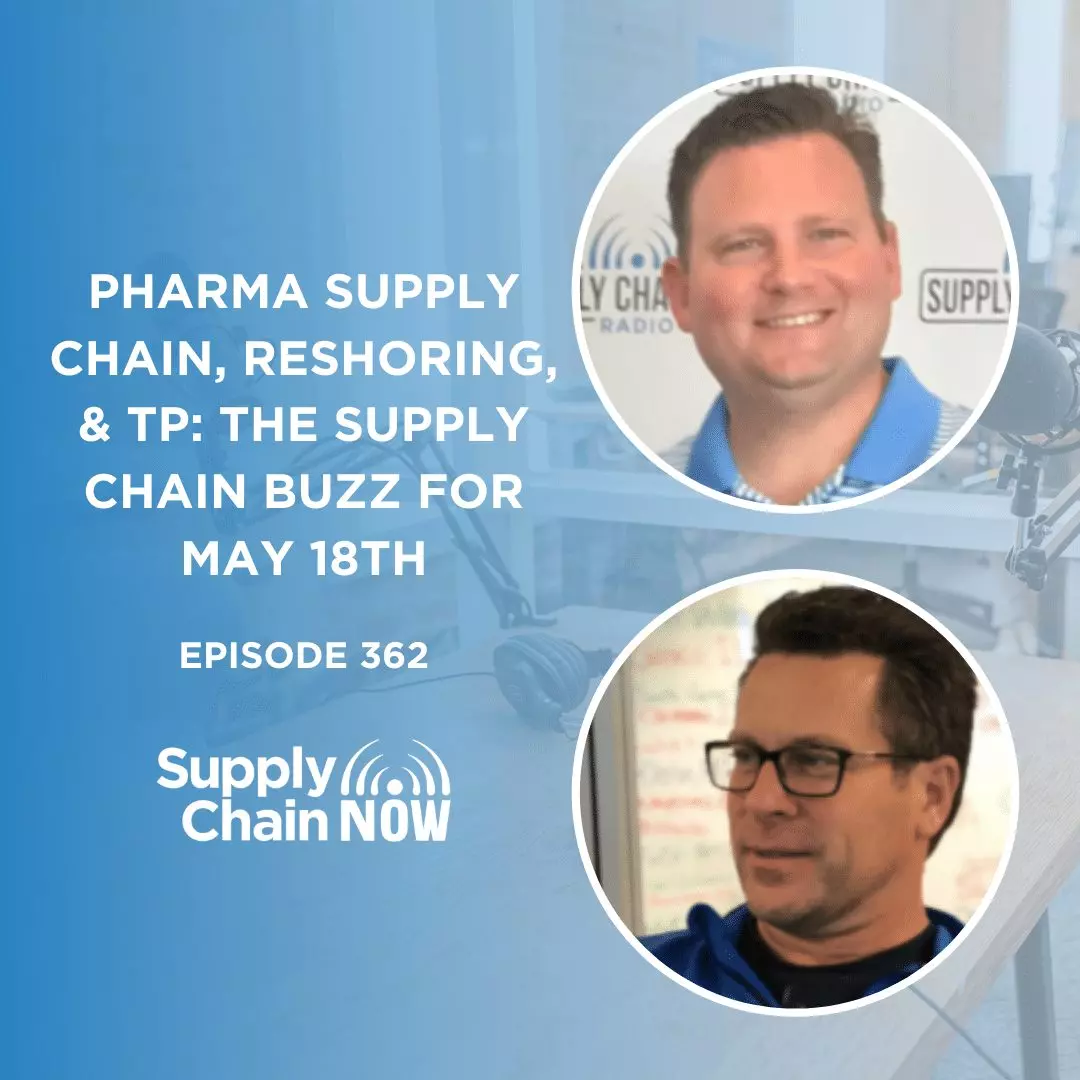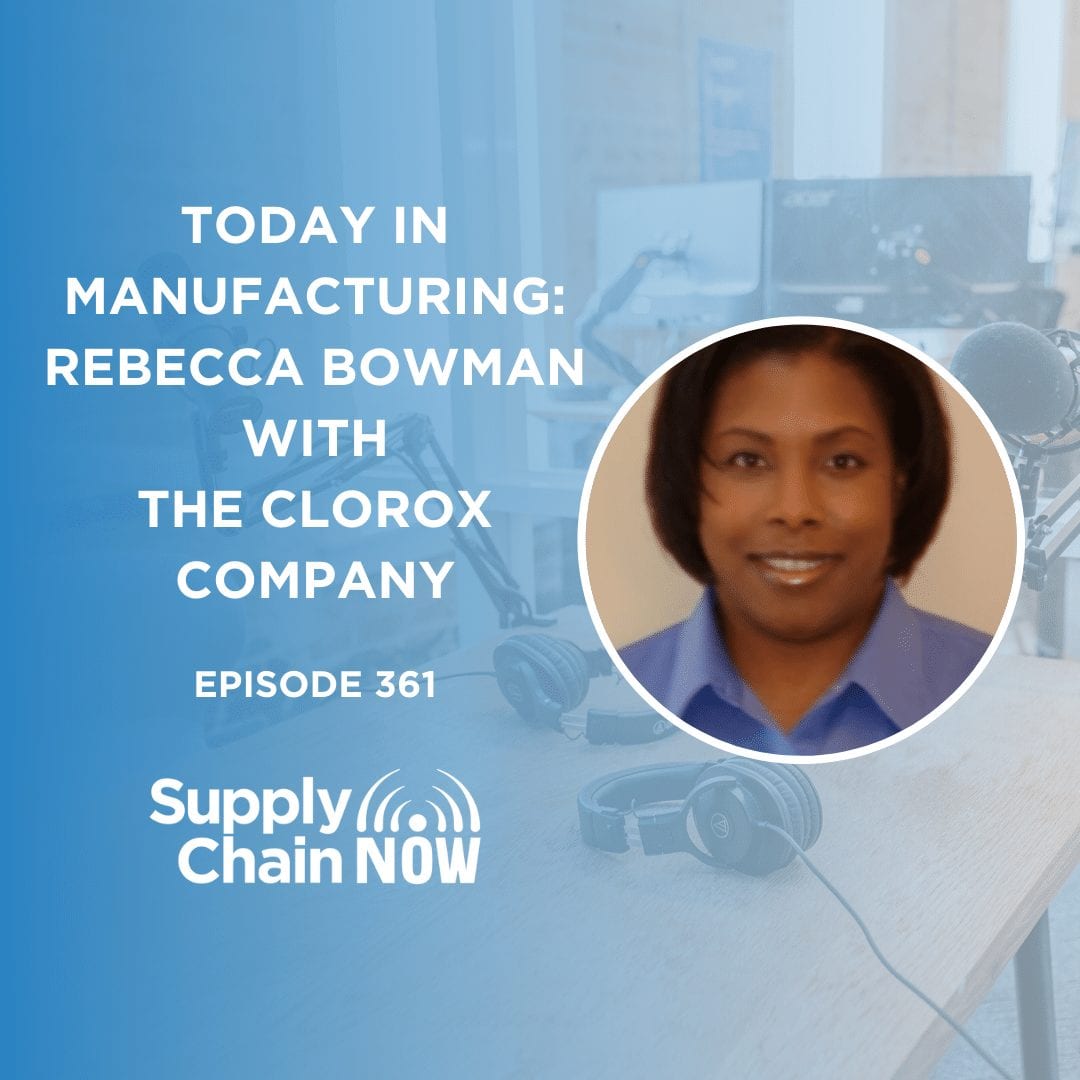
Episode Summary
Join Scott Luton and Greg White as they interview Daryl Lu of Verusen and Corbett Gilliam of ATDC as they discuss innovation, updates, and advancement in the supply chain and logistics industries.
Episode Transcript
Intro: [00:00:05] It’s time for a Supply Chain Now Radio. Broadcasting live from the Supply Chain Capital of the country. Atlanta, Georgia, Supply Chain Now Radio spotlights the best in all things supply chain: the people, the companies, the technologies, the best practices, and the critical issues of the day. Now, here are your hosts.
Scott Luton: [00:00:35] All right. Good afternoon, Scott Luton here with you live on Supply Chain Now Radio. Welcome back to the show. We are coming to you today, once again, from Vector Global Logistics, a company that’s providing world class logistics services, all while deeply investing into the communities that they serve, based right here in Atlanta. But with an international reach, this company is on the move. Learn more at vectorgl.com.
Scott Luton: [00:00:56] So, on today’s episode, we’re going to be continuing our innovation theme series that we’ve been producing in partnership with Verusen, an AI powered supply chain startup juggernaut based right here in Atlanta. Looking forward to having Verusen back into the studio with us.
Scott Luton: [00:01:14] A quick programming note. Like all of our series on Supply Chain Now Radio, you can find our replays on a variety of channels Apple Podcast, SoundCloud, Spotify, and wherever else you find your podcasts. As always, we’d love to have you subscribe, so you don’t miss anything. Supply Chain Now Radio is also brought to you by a variety of sponsors, including The Effective Syndicate, TalentStream, APICS Atlanta, supplychainrealestate.com, and several other leading organizations. Be sure to check out our show notes to learn more about our very valuable sponsors.
Scott Luton: [00:01:43] Okay. So, let’s welcome in my co-host today once again, the irreplaceable Greg White. How are you doing Greg?
Greg White: [00:01:52] I’m doing well. Irreplaceable, huh?
Scott Luton: [00:01:54] Yes. You’re waiting for me to say serial supply chain technology.
Greg White: [00:01:58] I was. So, you tripped me up with that. Yeah.
Scott Luton: [00:02:01] But great to have you back. We’ve had-
Greg White: [00:02:02] Love the variety though.
Scott Luton: [00:02:03] Yes. We got to spice life. We’ve had a number of great shows in the last couple of weeks. And I think this is going to wrap up a great successful week of programming this week-
Greg White: [00:02:13] I know.
Scott Luton: [00:02:13] … with our friends at Verusen, along with ATDC, which is a vital component of all the innovation and entrepreneurial wins that the city and the Metro Atlanta’s driving.
Greg White: [00:02:24] Yeah.
Scott Luton: [00:02:24] So, let’s welcome in—with that, let’s welcome in our featured guests today, Daryl Lu, Director of Solutions at Verusen. How you doing, Daryl?
Daryl Lu: [00:02:32] Doing well, thank you.
Scott Luton: [00:02:33] Great to have you back. The last time we were together, we were eating wings right across the street from the varsity. Godfather’s, I think, it was, right?
Daryl Lu: [00:02:41] Yes.
Scott Luton: [00:02:41] Right across.
Daryl Lu: [00:02:41] Yeah, yeah.
Scott Luton: [00:02:43] So, we’ll have the conversation minus the chicken wings today. So, is it okay?
Daryl Lu: [00:02:46] It’s okay.
Greg White: [00:02:47] It’s not with me. Can we get chicken wings? If no, pizza.
Scott Luton: [00:02:50] Right.
Greg White: [00:02:51] This is pure business, Daryl.
Scott Luton: [00:02:53] We’ve got to take care of our friends here. Next time, chicken wings.
Greg White: [00:02:57] Got it.
Scott Luton: [00:02:59] Corbett Gilliam, Corporate Development Manager at ATDC. Corbett, how are you doing?
Corbett Gilliam: [00:03:04] Great. Thank you for having me.
Scott Luton: [00:03:06] I’m glad that you’re here. I know both of y’all keep really busy schedules. So, to get both y’all in the same room here, I think we’ve done something special. So, looking forward to picking y’all’s brains on a variety of topics here today, from innovation, to technology, to some of the things that companies are doing to get ahead, including using some of the resources that we’ve already mentioned here today. But before we do that, before we dive in with Daryl and Corbett, Greg, what are some of the top things to know in supply chain now?
Greg White: [00:03:32] Holy mackerel. You’re going to be amazed. So, to quote the-
Scott Luton: [00:03:37] Yes. fish supply chain is the word?
Greg White: [00:03:40] That’s right, yeah, yeah. No, actually, 3D printing. So, we used to hear a lot about 3D printing. You still do some, but it seems like it kind of went away for a while. But now, I think—and you know we’re going to talk about this. It was kind of a solution in search of a problem, but I think they found some good solutions for it. So, 3D printing is impacting certain segments of certain types of supply chain.
Greg White: [00:04:04] So, one of the big benefits of 3D printing is reduction in lead time because you literally build it in your house, or in your factory, or whatever. But they had really struggled to kind of figure out how to make it practical. But if you think about it, a few weeks ago, we talked with Cindy Logger, who talked about—and I hope she did actually trademark that phrase.
Scott Luton: [00:04:26] The Batch of One.
Greg White: [00:04:26] The Batch of One, right? So, personalization is such a huge thing today, even with consumers and customization with products, therefore. So, being able to use 3D printing to pull that off is really, really valuable. And in fact, let me pull up some stats here. Thanks to Malcolm for pulling up some stats for me.
Scott Luton: [00:04:49] He leads a research team here at Supply Chain Now Radio just to connect dots.
Greg White: [00:04:52] Sorry. We’ll introduce you to him if we ever meet him. So, in polling number of production companies around the globe, they found that 69% are using 3D printing because of complex geometries. So, I was never really good at puzzles. So, that’s probably stuff that’s really hard to put together. No, of course it is, right? I mean, these are the things. But, also, customization, there’s a big impact on customization as we talked about. Lead time is a big reason for it.
Greg White: [00:05:24] And you can see where that would be really, really valuable. If the batch is one or very, very small, then it makes a lot of sense to. Build it on a small scale, right? And if you have the right product to be able to build a good quality product, do it. And so, anyway, there’s—I mean, there’s a lot more to talk about there, but I think it’s really interesting to see that that is a solution that has found somewhat of a niche. And I think it will continue to grow as personalization grows.
Scott Luton: [00:05:57] Absolutely. As you were talking about that mass personalization, of course, Gartner and their top 25 supply chain rankings, that was one of the big themes that they took out on their big findings. And one of the examples of it was Revlon, and makeup companies are able to—despite all of the makeup they’re producing, they’re able to offer these personalization services, and then get out the makeup in just a matter of days, which is just—it’s just so—it’s amazing how far we’ve come so a little time.
Greg White: [00:06:29] In the old days in health care, they called it a formulary, right, where somebody—where a pharmacist with an actual mortar and pestle would actually make it the medicine for you.
Scott Luton: [00:06:38] Back in 17th Century?
Greg White: [00:06:39] 17th century. Yes, back. Yes.
Daryl Lu: [00:06:41] Greg has some churned butter.
Scott Luton: [00:06:44] Yes.
Greg White: [00:06:44] Yes. That’s right. That’s right, which is pretty tasty if you had it, but it’s fantastic.
Scott Luton: [00:06:50] So, before we dive in with Daryl and Corbett, anything else hitting the Supply Chain Now Radio news desk there, Greg?
Greg White: [00:06:56] Yesterday, I think, during Supply Chain City, Will Haraway talked about the massive amounts of narcotics coming in in logistics, right? And that was a little bit stunning to me.
Scott Luton: [00:07:09] Thousands of tons.
Greg White: [00:07:10] Containers.
Scott Luton: [00:07:10] Yeah. Of the pound containers or whatever they use to ship narcotics in.
Greg White: [00:07:17] So, I wonder, it made me think—I was not on that show, but it made me think, I wonder if there’s more traffic or if there’s more detection. Because I think the detection capabilities are much, much greater than they used to be. And if you’ve ever watched the movie Contraband, right, or whatever, you’ve seen that they thought of containers a long, long time ago. So, I think, perhaps, it’s—and I’m hopeful that we’re better at detecting these things.
Scott Luton: [00:07:46] I know where they are better down in the Port of Savannah. Well, one of the fastest growing ports in North America. And one of the fastest growing ports in the world. But have you ever visited down there?
Greg White: [00:07:56] Why do you know that?
Scott Luton: [00:07:58] Well, I’ve seen it.
Greg White: [00:07:58] Well, did you know that they are good at detecting?
Scott Luton: [00:07:59] I’ve been down there. I’ve seen how they’ve measured. I’ve seen them. I see where you’re going. It is really phenomenal how they act like they are corporate for-profit America. And they run a very tight shit, no pun intended down there. Have y’all visited the ports?
Greg White: [00:08:17] Yes.
Daryl Lu: [00:08:18] Yeah, I have.
Scott Luton: [00:08:19] They’re remarkable. So, I think it’s probably a little bit of both to your two questions. Are they—is it activity, or is it the detection efforts? Probably a little of both. Getting better.
Greg White: [00:08:31] I’ll look into that.
Scott Luton: [00:08:32] Yeah, please do.
Greg White: [00:08:33] I’ll have Malcolm.
Scott Luton: [00:08:33] Okay. All right. So, let’s—we’ve got a great show lined up today. Daryl Lu, Director of Solutions at Verusen, and Corbett Gilliam. I mean, get Corbett and corporate tied together. Sorry about that.
Corbett Gilliam: [00:08:46] I’m sorry about the name.
Greg White: [00:08:47] Yeah.
Scott Luton: [00:08:48] Corbett Gilliam, Corporate Development Manager with ATDC. And we want to bring you all back into the conversation. And we really want to start, before we start talking innovation, a lot of these things that are taking place, want to get to know you both a little bit better first. So, Daryl, let’s start with you. Tell us about yourself, and then tell us what Verusen does, and your role at the company.
Daryl Lu: [00:09:07] Yeah. Yeah, I am one of the few of the proud, the native Atlantan.
Scott Luton: [00:09:12] Hey.
Daryl Lu: [00:09:12] There’s like 12 of us, four of them from my family.
Scott Luton: [00:09:17] So true.
Daryl Lu: [00:09:17] So, I grew up here. I went to Georgia Tech. I went to Emory and got my MBA. And I just love it here. And the city keeps changing. It keeps evolving. And there’s just so much great energy here that, why leave? So, it’s been really great. And I’ve found a great spot as well in technology and startups, which is both very much a passion of mine with Verusen. We are really building the digital connected supply chain and really innovating around the materials management inventory with artificial intelligence in the cloud. So, we’ve got all the little buzzwords in that, but it’s-
Greg White: [00:09:54] Yeah, That’s good. We started early.
Daryl Lu: [00:09:57] Yeah, yeah, yeah. Going and getting them out of the way.
Greg White: [00:09:59] So, I have a quick question for you. Georgia Tech and somebody else, another natives football team, opened up, I think, opening day, don’t they?
Scott Luton: [00:10:11] Sorry, I was tuned into some metrics here. Yeah, Thompson.
Greg White: [00:10:14] Yeah.
Scott Luton: [00:10:14] Thompson’s hosting the Yellow Jackets. So, a week from today.
Greg White: [00:10:16] He’s almost a native but-
Scott Luton: [00:10:19] No, Daryl’s got me beat.
Greg White: [00:10:23] Yeah, he does.
Scott Luton: [00:10:23] We’ve been here just probably, well, three kids and two houses ago. It’s how I time it. But since ’04-’05. But you’re right, Atlanta has constantly evolved, and I won’t say reinvented itself, but the development on a number of different levels has been so fascinating to see, and be a part of, and kind of observe just for a short amount of time that I’ve been here.
Greg White: [00:10:50] Well, this area right here.
Scott Luton: [00:10:51] Yes.
Greg White: [00:10:52] I think, “Wow!” I mean, we were just talking about how much this area has evolved.
Scott Luton: [00:10:54] Yeah. Well, Daryl looking forward to talking more about what you’re doing and what Verusen is doing here momentarily. Corbett, how about you? Tell us about yourself.
Corbett Gilliam: [00:11:03] I’m also a native Atlantan.
Scott Luton: [00:11:05] Wow, two in the same episode.
Corbett Gilliam: [00:11:06] I’ve been able to see-
Daryl Lu: [00:11:07] There’s 13 of us.
Greg White: [00:11:08] Yeah.
Corbett Gilliam: [00:11:08] Really, I started my career back in the dot com boom. So, that’s been really interesting to see how Atlanta was and how we were a hub for all of these startups that initially went away, like realestate.com and some of the big ones, but was able to get in there. And quick summary, just—I started three venture-backed companies and have advised a good number. But for the most part, have always been within private equity, where I would jump into underperforming companies and pivot their model, help them to scale, help them raise money, and, sometimes, help them sell off different assets and IP.
Corbett Gilliam: [00:11:54] So, that led me to—like I was talking to you earlier, Scott, working in Geneva, Switzerland, with a private equity group where I ran two of their companies. And due to travel and my family’s here, it made sense to, sort of, try to find something to be planted here in Atlanta. So, ATDC opened up.
Greg White: [00:12:17] Yeah. that’s great.
Scott Luton: [00:12:17] And ATDC is the State of Georgia’s technology incubator.
Greg White: [00:12:21] The Atlanta Technology Development Center.
Corbett Gilliam: [00:12:24] It’s called Advanced Technology Development Center.
Greg White: [00:12:25] Advanced. Sorry. I should know better.
Corbett Gilliam: [00:12:28] So, we-
Greg White: [00:12:28] Two companies, and-
Corbett Gilliam: [00:12:29] We’re actually one of the oldest technology incubators in the country, around 40 years old. We have a relationship with Georgia Tech. So, we’re under the umbrella of Georgia Tech. We sit on campus right at Tech Square-
Greg White: [00:12:42] Beautiful building.
Corbett Gilliam: [00:12:44] And we have 180 companies in our portfolio. So, what I do is I work with our middle tier companies, which are called Accelerate, and our top tier, which is Signature, and help to plug them into enterprise relationships.
Scott Luton: [00:13:02] So, Accelerate and Signature-
Corbett Gilliam: [00:13:03] Correct.
Scott Luton: [00:13:04] … are the two groupings of the 180 companies?
Greg White: [00:13:06] Well, there’s more but-
Corbett Gilliam: [00:13:07] And we have Educate, which is our general membership, which I don’t—they’re early stage, an idea on a piece of paper. Their whole—that whole stage, we’re trying to move to an MVP and get to that point. So, I do. I work with enterprises. So, I got two customers. One is our portfolio companies. The other is enterprises that I bring in. And there’s a lot of logistics that go on to bringing them in. And we’ll dive into that later on in this conversation, but it’s a matchmaking game, but you really get to know what the match is. And a lot of that is uncovering corporate culture and different things like that to see what the appetite is.
Scott Luton: [00:13:55] And it takes some saviness and some experience like you clearly have in your background, right? Proven experience, working with a variety of different-
Corbett Gilliam: [00:14:02] It takes a lot of pushing and a lot of selling to be able to do it.
Greg White: [00:14:04] Speaking of the term butter.
Corbett Gilliam: [00:14:08] Yeah, yeah.
Scott Luton: [00:14:08] All right. Well, as we all know ATDC has been such an important cog in the machine that is Supply Chain City, that is Innovation Square, I think what we’re calling it, right? That is the entrepreneurial dynamic that is so robust, and alive, and well throughout the Metro Atlanta area, right?
Corbett Gilliam: [00:14:30] Right.
Scott Luton: [00:14:30] So, as an entrepreneur, I love what you are doing because it brings a lot of—even if for the companies that are aren’t part of your portfolio companies, it brings a lot of energy, and investment, and opportunities to where we work, live, and play. So, great to have you on the show, both of y’all.
Corbett Gilliam: [00:14:45] Thank you.
Scott Luton: [00:14:46] All right. So, let’s talk more about corporate innovation industry 4.0 at this point. So, why is—we just kind of laid it out there, but why—and Daryl, let’s start with you. Why is Metro Atlanta and, specifically, that area around ATDC been such a fertile ground for innovation hubs, you think?
Daryl Lu: [00:15:06] There’s a lot that has to go with the companies that are here. I mean, I read somewhere that we have the third largest concentration or highest concentration of Fortune 500 companies. And we have so many great anchor companies here. Of course, you have Georgia Tech, going back to my alma mater.
Greg White: [00:15:24] That’s right.
Daryl Lu: [00:15:25] Sorry, Corbett. We have a lot of great talent, a lot of folks who are coming here. And the diversity that also exist in Atlanta helps really continue to breed a lot of, not only openness, but a lot of new insights and a lot of great abilities to really work together.
Daryl Lu: [00:15:42] And so, you put a lot of that, as well as really, in a lot of ways, modest or feasible cost of living compared to like a lot of other large cities, and you have such fertile ground for really great opportunities, right? So, I’ve been so excited about everything. I mean, we’ve been a supply chain, logistics, heavy kind of city with all the other corridors, Savannah with the ports, but also all the other manufacturing that happens in the southeast.
Scott Luton: [00:16:14] And 10,000 manufacturers in the State of Georgia alone. And a lot of folks that gets lost in the shuffle, But a great point. Absolutely.
Daryl Lu: [00:16:23] Yeah. So, it’s an exciting time. And now, you get to throw in all the other things like movie production in Atlanta.
Greg White: [00:16:30] Fintech is big.
Daryl Lu: [00:16:32] Fintech is massive. I mean, 80% or so of payment processing comes through Atlanta. So—and then, of course-
Greg White: [00:16:39] If only we knew where that was.
Daryl Lu: [00:16:44] And then, of course, you got corporate who kind of spearhead so much.
Scott Luton: [00:16:48] That’s right.
Daryl Lu: [00:16:48] There you go, buddy.
Scott Luton: [00:16:49] And let me just connect the dots for our audience. Daryl is a Georgia Tech alum and Corbett is a UGA alum. And so, there’s a friendly—friendly or sometimes not so friendly rivalry there. So-
Corbett Gilliam: [00:17:02] Good old-fashioned hate, I think, they call us
Scott Luton: [00:17:03] Yes. You may have detected that, Darryl.
Daryl Lu: [00:17:06] It’s friendly now.
Corbett Gilliam: [00:17:06] Yeah, right now.
Scott Luton: [00:17:08] So, Corbett same question. Why Atlanta?
Corbett Gilliam: [00:17:11] It goes back to ATDC, the history, Georgia Tech, and really our economic development group within Georgia Tech. To Greg King, for example, heads a lot of economic development, attracting innovation centers to Atlanta. So, go back to early 2003, we had a handful. And today, where Tech Square is at Centergy, that’s the building we’re in. We have roughly about 15 innovation centers in the building, and roughly around 10 to 11 within a two-mile radius.
Greg White: [00:17:51] Wow!
Corbett Gilliam: [00:17:51] And I’m talking to everybody from Google, to Microsoft, to Black+Decker-
Scott Luton: [00:17:55] The heavyweights.
Corbett Gilliam: [00:17:56] … Justin Krupp, Accenture, Southern Company. So, they’re all in the area. So, that makes the destination where ATDC is. You want to be there if you’re in business, you’re an early stage company.
Greg White: [00:18:12] Well, and ATDC makes those companies want to be there-
Corbett Gilliam: [00:18:15] Yeah. Yes.
Greg White: [00:18:15] … because ATDC was their first by a long shot.
Corbett Gilliam: [00:18:19] And we do a lot with the innovation center. So, with me, I’ll develop relationships to understand what they’re actually doing within the innovation center, and then try to feed into that with our companies. So, a lot of times, they are in there. So, Think Tank, they’re actually developing product within the innovation center, and they’re going out to accelerators, other incubators to find the next AI or next product they’re looking in IoT. And I help deliver that to them once I understand what they’re looking for.
Scott Luton: [00:18:56] Which is really important.
Corbett Gilliam: [00:18:57] It is, it is.
Scott Luton: [00:18:58] You got to dial in on what these companies are looking for, so that is practical innovation, right?
Corbett Gilliam: [00:19:03] Yeah, practical. So, Accenture, for example, they have about 30,000 square feet of space. I do a lot with them where we’ll bring in heads of their verticals that are actually working on projects where they’re looking for different types of innovation, and help to plug our companies. And actually, Verusen has been one of the companies that has participated in several of those.
Scott Luton: [00:19:26] And done well. It’s been neat to see that they continue growth at Verusen, which we’ll touch on here in a second. So, a little different answer to this question here. How are companies—from what y’all are seeing and how you’re working, from your experience, your expertise, how are companies approaching productive, successful innovation? Let’s go back with you, Daryl.
Daryl Lu: [00:19:46] A lot of it is actually making it important, right? And realizing that-
Greg White: [00:19:54] Innovation itself.
Daryl Lu: [00:19:55] Right. Innovation itself, but it’s also how fast the world moves today, right? I mean, if you hear that story about how Blockbuster, they were really pitched by the idea for Netflix, and then, “No, we’re good with what we got.” And we all know how that’s kind of worked out, right? There’s so many of these different opportunities where if you rest on your laurels, and you don’t take some up-and-coming companies seriously, then the next thing you know, this retailer who doesn’t actually do retail is now the biggest company in the world or one of the largest ones, right?
Daryl Lu: [00:20:29] So, it’s being able to actually make that initiative to set and put budget, put someone who is responsible and who answers directly to some of the chiefs in the company, like especially with larger companies, right? And we see a lot of innovation teams now. And not just the innovation hubs, right? So, that’s just one physical aspect.
Daryl Lu: [00:20:52] But in terms of personnel, we’re just seeing so many more opportunities for directors of innovation or vice presidents of innovation and the like, who they are—their metric for success is really around these pilots working with innovative companies because developing it in-house, it’s just too much of a siloed kind of view. So, how do we kind of bring in others?
Daryl Lu: [00:21:15] And I’m sure that part of it, the whole slice that, we also don’t get a whole lot of cold calls all the time to the other functional business units. But, yeah, it’s really, really interesting and fascinating how fast the world is moving today and what that means for, not only the big platform companies, but also opportunities and opportunities like us.
Scott Luton: [00:21:39] Sure. And consumers, right?
Daryl Lu: [00:21:41] Yeah, absolutely.
Scott Luton: [00:21:41] We’re benefiting from all the innovation, especially, I think—Corbett I want to get your take, but I think, when a lot of folks hear the word “innovation” kind of like what’s on the buzzword we’re talking about in the warm-up, they think cliché. They think-
Greg White: [00:21:56] [Crosstalk] is over, right?
Scott Luton: [00:21:57] Yeah. Because it’s been—so many companies have used that term the wrong way without action.
Greg White: [00:22:03] Yeah.
Scott Luton: [00:22:03] But Corbett, what are you seeing when it comes to how companies are approaching really meaningful innovation?
Corbett Gilliam: [00:22:08] I think, now, they’re dialed in more than ever. Go back three or four years ago, it was sort of trendy to have an innovation center. So, you spend anywhere from $2 to $5 million a year, have a space, you have a group that’s running the the environment, and nothing was coming out of it. There was no ROI from that. So, now, they have dialed it in. And some of them actually closed down and brought their innovation centers in-house, so they can keep a better eye on them. But they have corporate funds they’ve set aside to really fund different things. They’ve gone internally looking at, is it better to develop organically or non-organic? And a lot of times, as innovation is evolving at the speed it is, it’s easier and cheaper to go out and acquire existing technologies.
Corbett Gilliam: [00:23:03] So, you have two different types of innovation centers that I’ve seen. One is where you have a bunch of coders in a room that are actually working on projects from the company. So, like a Honeywell for example. But then you have a Delta or a Home Depot where it’s more of a think tank type environment where you come up with ideas on the whiteboard, thinking about ticketing, or better customer service, or customer engagement. And Chick-fil-A is one of those. And then, they are breaking those down and going out to ATDC and other places like that to be able to find technologies that fit into those areas of focus.
Corbett Gilliam: [00:23:49] So, a lot of that is this wheeling, and dealing, and knowing how to be able to bring them in and attract them to ATDC because, usually, the groups within the innovation centers, they’re being promoted out, moving on. And then, somebody else comes in and see-
Greg White: [00:24:07] Or they get a project.
Corbett Gilliam: [00:24:08] Exactly.
Greg White: [00:24:08] Right.
Corbett Gilliam: [00:24:09] So, you’re continually building new relationships. So, to go back to your questions.
Scott Luton: [00:24:15] Sure.
Corbett Gilliam: [00:24:15] I think there’s a real interest in innovation, and corporations are beginning to really put real money behind it.
Greg White: [00:24:23] And real accountability on it.
Corbett Gilliam: [00:24:25] Exactly. Exactly.
Greg White: [00:24:25] I think that’s the important point that you are both making is that there’s now, finally, accountability. It’s not just a bunch of really smart people contemplating their navels. They are actually accountable to produce something, right?
Corbett Gilliam: [00:24:37] Yeah, right, correct.
Greg White: [00:24:39] And that’s what’s made innovation a meaningful word again.
Scott Luton: [00:24:41] Yeah. So, we had Convoy in here yesterday, and they have an incredible story, right? They’ve gone from 12 people to 800 team members, a billion dollar plus valuation, really hip, have improved transport—$800 billion transportation industry, done some really neat things, new, innovative—meaningful innovative things. And yet, we spent most of our time yesterday – and it was Kristen Forecki, Vice President of Supply with Convoy – talking about things they still want to do, right? And it was so remarkable to sit with a company that is doing—that’s already done things so differently, and has grown dramatically, but still focused on what still has to be done and new ideas, right? And that really speaks to a lot of what the group here is talking about. It’s not your 1987 innovation because you’ve got to have that chapter in the corporate filing. It is ROI-driven, right? It’s valuation-driven, It’s consumer-driven.
Greg White: [00:25:44] Well, it’s survival-driven at this point. I mean, think about how many big companies have been disrupted. Remember the CRM industry?
Corbett Gilliam: [00:25:53] Right, right, yeah.
Greg White: [00:25:54] SIEGEL Companies like that that virtually no longer exist anymore because they were disrupted by Salesforce. And big companies recognize that that is a real and viable threat these days. And I think, also, they’ve realized that they can’t do it on their own. Look, it is—in my opinion, it is impossible for a company, a Fortune 500 size, to even spell the word disruption, much less execute on it. It is impossible to disrupt from inside one of the biggest companies in an industry. You just can’t do it. You can try really hard, but innovation is the right word, right? Innovation is more—it’s more evolutionary than revolutionary. And big companies can do that. But I’ve watched so many companies talk about it, try to do it, and-
Scott Luton: [00:26:48] Talk to it.
Greg White: [00:26:49] … speak to it, but they can’t do it. I mean, you just can’t get there. I know you guys can’t say that, but I can. And you don’t have to agree, by the way.
Scott Luton: [00:26:58] So, let’s-
Greg White: [00:26:58] But it’s something that really ties the whole ecosystem together is to start to rely on smaller companies to help larger and vice versa.
Corbett Gilliam: [00:27:09] Right, yeah.
Scott Luton: [00:27:09] Corbett, do you have a point you want to follow up on?
Corbett Gilliam: [00:27:10] No. I was going to say it’s more and more—to add on to what you were saying, the likes of Amazon, for example, I work with a lot of retailers. We have a retail vertical at ATDC. And Macy’s, Wal-Mart. They’re all figuring out. Wal-Mart, not so much, but they’re continuing to innovate. But the Macy’s of the world, they are hurting. And it’s all because of their corporate structure internally on adopting innovation. They can’t do it because they’re built on a legacy system that makes it almost virtually impossible to move and incorporate certain things like customer engagement in a store or even something as simple as-
Greg White: [00:27:58] Assume certain things.
Corbett Gilliam: [00:28:00] Exactly.
Greg White: [00:28:00] Like in a store.
Corbett Gilliam: [00:28:01] Well, how to coordinate what’s on the mobile app, a product, to what’s actually in the store and having that. And that hits on supply chain, because I’ve had a number of deep conversations with some of the management there at other places about, how do we take our e-commerce and how we match that up with in-store when we have 100% turnover rate with people on the floor.
Scott Luton: [00:28:29] I love that comment. Just a couple of weeks ago, we talked about what Walmart—some of the gains that Walmart had made. And we were kind of juxtaposing that with your typical in-store experience for those that may shop at Walmart. And I don’t want to kick anybody too hard, but I love what you’re talking about, because there is—turnover impacts so many different things, right? It’s tough to make gains when you’re staring in the face with some the big turnover figures that a lot of retail companies and a lot of companies, in general, have. But I want to pivot a little bit here. I want to ask, you start—everyone kind of spoke to this little bit, but this modern-day corporate innovation strategy and the roles that might be involved. Daryl, speak to that a little bit. Who are they, why do they exist now, and how they start to define success?
Daryl Lu: [00:29:19] Yeah, a lot of it is because innovation is hard and having everyone out there doing their day-to-day, they’re already busy, right?
Greg White: [00:29:30] They’ve got a job.
Daryl Lu: [00:29:31] Yeah, they have a job. And it’s not just they have a job, but they have the job that there’s opportunity where an innovative solution can, now, help that person, but that person never has the opportunity to actually come up for a breath.
Greg White: [00:29:45] Right.
Daryl Lu: [00:29:46] Right? And so, now, a lot of these corporations are building these innovation teams. Again, you’ll have like the director of innovation or vice president of innovation, and they’ll have teams. And their whole or their focus and their responsibility is to find innovative opportunities, right, whether it’s developing it in-house, as Corbett was speaking about, or it’s also engaging with companies and finding the right companies like us, right? And being able to say, “Hey, we understand that you might have AI,” right? So, whether it’s—now, it may just come swinging as generic as that because people are just trying to pursue some of these Industry 4.0 initiatives, but they don’t really know how to actually make them successful, which is something that we can dive into deeper.
Daryl Lu: [00:30:36] But it’s—so, for us, it could be going through an innovation team and sharing with them a little bit what they have. And then, seeing if they’ve also heard some of the same kind of gripes and groans from some of the other business units, because that’s also what they do is they’re also doing a little bit of customer discovery on their side of the table, right? And learning what is also needed, right? And then, just kind of going through that process, or, of course, they can go back, and they can say, “You know what? Let’s do this customer discovery. And then, let’s go find the companies that help us with this.” We’ve got multiple or disparate data systems, and we’ve got—our working capital is going out of whack and that type of stuff to be able to find companies like us or some of the other good folks over at ATDC as some of the other startups.
Scott Luton: [00:31:30] Corbett, what’s your take on this new modern-day corporate innovation?
Corbett Gilliam: [00:31:34] I think with 90% of corporations realize they have an innovation problem, but they’re still numbered. 10% that really think they got it and think they can continue to do what they’re doing and make moves. So, a lot of times, I’ll work with that 10% to really show them the need, and teach them how to actually begin a conversation with an early-stage company, and walk them to the process of how to light a pilot and how that works. And you’d be surprised at some of the companies in that 10% that are really large companies that you think they’re innovative from the surface, but they really don’t have any of that internally to be able to integrate any type of pilot because they don’t really know how to work with them. So-
Scott Luton: [00:32:30] But first they have to be honest with themselves is what I’m hearing you say.
Corbett Gilliam: [00:32:33] They do, they do.
Scott Luton: [00:32:33] And have that awakening.
Corbett Gilliam: [00:32:34] And part of what we do at ATDC, we also have developed curriculum around enterprises on how they can work with early-stage companies and what the process is to lighting a pilot. It could be unlimited pilot, it could be I’d like to do paid pilots just because that helps our companies, and it really puts some skin in the game of-
Greg White: [00:32:57] Yeah, that’s critical.
Corbett Gilliam: [00:32:57] … the enterprise.
Greg White: [00:32:59] You apply resources where you apply funds.
Corbett Gilliam: [00:33:00] Exactly.
Greg White: [00:33:01] Right.
Corbett Gilliam: [00:33:02] And it’s amazing at that 10% how they respond and how they really are interested because they see what we have at ATDC but, also, what’s at Georgia Tech, and the opportunity to be able to reach into some of the resources there and take advantage of that. On the other 90%, they’re aware of innovation and most of them have innovation centers. They have funds, like I mentioned earlier, that are dedicated. But they’re still sitting there, sort of, going through the process because the corporate culture isn’t stacked up internally to be able to—there may be a department that does innovation, but it’s not connected with the general actual business units. So, they got to actually sell it in. So, there’s a lot of moving parts to being able to push through the barriers to get early-stage companies because they want to make sure that an early-stage company can scale-
Greg White: [00:34:05] Right. There’s going to be involvement.
Corbett Gilliam: [00:34:06] … stay in business, they’re not paycheck-to-paycheck, they’ve raised the money, they’re generating some revenue, and they have a good base of some small to medium sized businesses and even some enterprises they’re working with.
Scott Luton: [00:34:18] Interesting.
Corbett Gilliam: [00:34:19] So, a lot of that is painting the picture in education, which we do really good at ATDC.
Greg White: [00:34:25] So, you’re sort of a shepherd connecting these big companies to these smaller and really innovative or even disruptive companies.
Corbett Gilliam: [00:34:31] It is, it is, it is. Like I had mentioned earlier, two customers, the enterprise. But, also, on the other side, the ATDC company. So, it’s teaching them how to actually work with the enterprise.
Greg White: [00:34:45] In a procurement environment, right?
Corbett Gilliam: [00:34:47] Exactly.
Greg White: [00:34:47] Technology.
Corbett Gilliam: [00:34:48] Building the real expectation on—because I’ve had companies, we’ve met with a large enterprise, they finish, and they say, “Okay-“
Greg White: [00:34:58] When do we start?
Corbett Gilliam: [00:35:00] “… when do we start?” And then, letting them know, “This could be anywhere from a two-month to a nine-month deal to actually get to the actual pilot.
Daryl Lu: [00:35:10] Yeah, I think a couple of other things that, Corbett, as you’re talking, I mean, the pilots are such a big process in some of—in a lot of these also because it gives a lot of corporations that ability to also kind of test the waters a little bit. And what’s key to a lot of innovation is also rapid ROI. Everyone cares about that ROI, right? But also, how do I get it back faster? It’s almost like they have that Amazon effects on ROI too. So, that’s a big piece.
Daryl Lu: [00:35:41] And then, the second piece that Cobrett was talking about, when all these companies are also trying to figure out the innovation pieces. You’ve invited us, Verusen, as well as several other startups, to be a part of like panels, as well as other kind of speaking where global companies will fly some of their young and up-and-coming leaders. And this will be like 120 and a 150 folks-
Scott Luton: [00:36:11] Wow!
Daryl Lu: [00:36:11] … globally, and they’ll come to Georgia Tech. They’ll take a tour of the Georgia Tech facilities. But then, they’re also going to listen to a session from us. And they’re almost always just asking about how to—it’s almost like, “How do I do innovation?” And so, it’s listening about, yeah, a little bit what we’re doing. But, also, a lot of it is they’re just really, really curious. How can someone as big as me be like you? And there’s just—it’s just very, very difficult. A lot of it is because of that culture.
Corbett Gilliam: [00:36:47] To add onto that Daryl, that is—I’ve been talking about the Industry Connect program, where we bring management from an enterprise end, go through the process, let our companies pitch on the larger events. I call that more of a hybrid where I’ll bring in senior managers from—Bosch was one of the companies we did it recently. 150 senior executives globally. They all came in-
Greg White: [00:37:17] All from Bosch?
Corbett Gilliam: [00:37:17] All from Bosch. And all came in, and it was an innovation discussion. So, we talked about everything. And I talked a lot about corporate innovation and what I’m seeing across the scope of, how we like pilots because they really wanted to be educated on how that—how can we be more innovative? We have our own groups internally, but how do we go out, and open up, and find other things that we may be missing? And I’m able to bring three or four of our companies to be able to pitch that fit in their areas of focus.
Scott Luton: [00:37:54] That’s a good fit. That makes sense.
Corbett Gilliam: [00:37:56] Exactly.
Scott Luton: [00:37:57] Yeah. Not wasting anybody’s time. I like that. All right. So, let’s bring it a little closer to home here with a specific example of an innovation approach. And that’s Point A, right? So, when Paul Noble came on with his founder, CEO of Verusen came on with us a month and some change ago as we had an episode at Flexport, right?
Greg White: [00:38:15] Was it that long ago?
Scott Luton: [00:38:17] Yeah, believe or not. Well, actually, that was not with Cindy. That was a double episode day. Cindy was with-
Greg White: [00:38:22] With Mary Kate Love from-
Scott Luton: [00:38:25] The program director, that’s right. So, I want to get y’all on to weigh in on the Point A approach and what’s unique about that model. So, Daryl, why don’t you talk about Point A?
Daryl Lu: [00:38:36] As we talk a lot about the innovation and how companies, large corporations are designating these innovations, a lot of companies are also recognizing if we really want to disrupt and also revolutionize our business, we have to work together. And this is where supply chain is really cool, right? Because supply chain is—it’s a chain of all these different players. And so, you have a lot of these companies that are now bonding together and saying, “Hey, we want to tackle this problem. I know just about everyone at this table has this problem. Let’s tackle this together.” And so, Point A is a great example of that. Recently, Reuters had an article about how IBM is approaching that with blockchain and their Build your Trust or-
Greg White: [00:39:33] Trust your Supplier.
Daryl Lu: [00:39:34] Trust your Suppliers
Greg White: [00:39:35] That’s right, yeah. We talked about that a couple weeks ago.
Daryl Lu: [00:39:38] So, they brought it in. IBM is kind of spearheading it, but they’ve got GSK, Glaxosmithklein. They’ve got Anheuser-Busch. They got Cisco, Lenovo, all these other large companies. And it’s kind of like where they’re based, but, of course, in Atlanta, we’ve got Point A, and we’ve got some really, really great companies as a part of that as well. There’s the Georgia Pacific’s, and the like, and the Coke industries.
Scott Luton: [00:40:03] So, I want to offer a couple of statistics from the article that you referenced. And Daryl’s talking about a Reuters article about IBM and a new blockchain innovation project reported by Gertrude Chávez-Dreyfuss. Did I get it right?
Greg White: [00:40:19] Probably not.
Scott Luton: [00:40:21] My South Carolina English gets me sometimes. But check this out. So, one of the IBM leaders is talking about how the procurement organization at IBM, which has 18,500 suppliers around the world, it projects a 70% to 80% reduction in time it takes to get new suppliers on board, and an estimated 50% reduction in administrative costs within its own business. Talk about ROI, which you referenced earlier, Corbett. Those are some heavy-hitting numbers. That’s not for Supply Chain Now Radio, a small, little company here in Atlanta. That’s for a global behemoth. Those are some big numbers.
Greg White: [00:40:56] Also, a global behemoth technology company, right? I mean, if you think about it, think about how far ahead they could be of the kind of companies you guys are dealing with, right? Manufacturers, and distributors, and retailers who are doing similar things. They’re bringing disparate systems and disparate disparate data sources together.
Scott Luton: [00:41:16] Yeah, absolutely. So, talking—still staying with the Point A story, Corbett, because we love it. I love what they’re doing there. There is a very Atlantan vibe about that venture and that initiative. And we talked about this. It seems like, at least, you really should. But it’s so neat to see the level of collaboration across the business community in a city like Atlanta. And really Point A, in many ways, illustrates that, right?
Corbett Gilliam: [00:41:41] It does. Collaboration breeds innovation is what I say. And when you look at these individual innovation centers, some of the issues have been they’re only thinking what they’re thinking internally. They’re not going out and sitting across the table from other larger companies that may had the same issue in sort of doing a whiteboard session and figuring out-
Greg White: [00:42:04] Or different takes on that issue.
Corbett Gilliam: [00:42:06] Exactly. And I saw that firsthand through the Engage Fund, which is headquartered out of ATDC. And the LPs and the fund are made up of Fortune 500 companies. And what’s interesting is they sit across the table. So, Home Depot’s across the table from Delta, and they’re talking about Blockchain or supply chain. What are you doing? And they’re able to gather information without giving any secret sauce or anything like that, but that right there with a Point A has been interesting to see is the co-collaboration and what comes out of that instead of being so closed minded.
Greg White: [00:42:47] Yeah. Well, and they’ve done a really strong job of fostering trust, right? Because when we had Mary Kate on before, that was a big topic. You can—you have seen I’m sure, and we’ve all seen to some extent these innovation hubs where you try to have multiple corporations do it, but the level of trust isn’t there. And it, sort of, fizzles out, right? They have done such a great job of understanding what their why is. And their why is to enable trust between these companies. They are the central arbiter between these companies.
Scott Luton: [00:43:24] Yeah.
Greg White: [00:43:24] And that critical to making it succeed.
Daryl Lu: [00:43:27] And we’re excited. I mean, so, we’re a part of Point A. And we’re really excited about this opportunity because it’s kind of—we’re also in like this kind of perfect storm. It’s not less of a storm, more of a happy storm of sorts. The perfect happy storm. So, being able to also be a part of where innovation is being embraced, but also where technology is at a place where we can—where we’re building like leveraging neural nets in the cloud and being able to, now, build this connected network on the supply chain. Like you need collaboration. You need multiple parties to want to be involved.
Corbett Gilliam: [00:44:10] You need us on that wall. You want us on that wall.
Daryl Lu: [00:44:13] Yeah. Yeah, yeah. Well, it’s just like this is something that everyone has been wanting for years and years. This is something that, unless you’re like Walmart, you really don’t have it. I mean, Walmart has been doing really well in terms of doing like a vertical supply chain. But now, all these other companies, we’re now at an ability to do more of this connected supply chain where you go not only vertical but, also, horizontal. And it’s a super exciting time.
Greg White: [00:44:38] I think it’s interesting that people today, they think a lot that no one had contemplated that there were solutions possible for this. I really think, because in 2011, we had a long strategic discussion at one of my companies. And the discussion was whether to take this old on-prem system that we had built in 2006 to the cloud. And with what we wanted to do in supply chain, like you are doing with AI, and blockchain, and other technologies, the inner enterprise collaboration, all of that requires more processing power than any one company can fill. And so, many years ago, people wondered what the cloud was. The cloud is a big giant computer that allows you to turn on and off as much of it as you want and enable these, kind of, solutions that we’ve wanted for years, we just weren’t able to power them, right? And this-
Scott Luton: [00:45:32] So, this is what the cloud is.
Greg White: [00:45:36] Well, that’s my definition of the cloud.
Scott Luton: [00:45:39] And like so much, I think, in supply chain and technology and the Industry 4.0 is so—can’t be spoken to very theoretically, right, and not for the people, and not just give it to me in layman’s or layperson’s terms. And that’s what I heard there. We need more of that, by the way, for your average consumers or, for that matter, for your average decision maker, which a lot of decisions are being pushed down these days. Just tell me what it is.
Greg White: [00:46:08] If want a concept dumbed down, I’m your man.
Scott Luton: [00:46:11] Okay.
Scott Luton: [00:46:12] Well, I was just strolling through our Twitter feed, Corbett and Daryl, and y’all both have given us plenty of t-shirt slogans already, including collaboration breeds innovation, which I’m going to shamelessly steal that, Corbett. I mean, I owe you some commissions there. But Daryl, let’s talk about a really neat event that I had the good fortune to be a part of, and I know that you’re going to be a part of it, but your duty, your global duties called, and you were in Dubai back a few months ago. Verusen hosted the Salute to Digital Innovation in the Supply Chain, which is a great event at the Metro Atlanta Chamber. But you were busy at Dubai Futures Accelerator where innovations are taking place over there, right?
Daryl Lu: [00:46:58] Yes.
Scott Luton: [00:46:59] And helping to drive some of that, I imagine.
Daryl Lu: [00:47:01] Yes, yeah.
Scott Luton: [00:47:01] Tell us more. Tell us more.
Daryl Lu: [00:47:04] Yeah, yeah. It’s a great program that Dubai has really been focused on being, as part of their centurion. I mean, they were really established as a country, the UAE, in 1971. So, they’re a relatively young country but very wealthy. And so, they set about this vision, it’s called 2071, to be the best country in the world or especially Dubai, and being like a shining beacon of that. And part of that, they’ve really been able to leverage a lot of their capital to do some really extraordinary things, and bringing innovation, and lead teams together. I mean, 90% or so of the population are expats. It’s like they’re bringing in these experts from all over the world to work together and to really do some really cool things. The Dubai Future Accelerators is part of the Dubai Future Foundation, which is really, again, going back to innovation.
Scott Luton: [00:48:05] Helping to make that 2071 vision happen, right?
Daryl Lu: [00:48:07] Vision. Right, right. But—and going back to how innovation occurs in corporations, you have to have a response—you have to have someone that’s responsible, accountable. You also have to have budget. I mean, that’s exactly what this Dubai Futures program is all about. And Dubai Future Accelerators is bringing companies from throughout the world to help engage on problems that some of the Dubai entities have. So, we were luckily and fortunately being able to not only be selected to the program but, also, selected to sign a memorandum of understanding to work with one of their companies in the future of procurement. So, we’re leveraging our AI to help them reduce their working capital and everything. So, it’s an exciting time. We talked about it a little bit on our social media. We’re working with Emirates and everything else. So, we’re really, really excited about that.
Scott Luton: [00:49:04] The airlines, right?
Daryl Lu: [00:49:07] Yeah.
Scott Luton: [00:49:08] So, when are you going back?
Daryl Lu: [00:49:10] That’s a good question. I’m hoping it just delays a little bit longer just because of the heat. I’m not saying that Atlanta is much better. Some days, I kind of wonder, we’re both at like 97 degrees but one of us has about 8900% humidity. But it was really, really fascinating out there, and how they also make this vision of 2071 such an integral part of their city. I mean everything from the museums. I mean, they actually share with you vision of what they want to be-
Greg White: [00:49:48] Wow!
Daryl Lu: [00:49:48] … which is contrast to a lot of other cities where you might have a vision, but most people don’t know it. You just don’t know it. And the only time that you almost see some of this vision is, unfortunately, kind of in a movie. So, it was really cool.
Scott Luton: [00:50:05] So, to learn more dubaifutureaccelerators.com, which is a nice, neat, URL, perfect. You can learn more about 2071 and maybe how to get plugged in. So, look forward to kind of picking your brain when you get back for your next trip Daryl. And hopefully, it’s not too fast, to your point.
Greg White: [00:50:23] It’s never really that cool there.
Scott Luton: [00:50:25] Probably not.
Daryl Lu: [00:50:27] It’s not too bad. I mean, I first. got there early March, and it was fantastic weather, and actually kind of cool at night because of the desert.
Corbett Gilliam: [00:50:39] Right? No humidity also to hold any heat in.
Scott Luton: [00:50:43] So, let’s—I want to go back to Corbertt. On the front of this interview, we’re kind of talking about some of your unique skill sets that you bring to the table. In particular, that deep dive process where you’re really ensuring match ability. And I think that seems—that strikes me as something that has got such universal relevance, right, when we talk startups, and helping startups grow, and how they can work with companies of all sizes. Speak to kind of what your unique point of view really brings to the table.
Corbett Gilliam: [00:51:15] Anyway, I go into it wanting to create a lasting rich relationship with the enterprise. So, I don’t want it to be a one and done, and then they’re out. They saw three or four companies, and that was it. I want some real action items out of the meetings. So, the deep dive is what I call it. And a lot of that has to do with uncovering their attitude towards innovation. Corporately, what they’re like internally on adopting. Who decision makers are? And when the last pilots that were lit? How much did they pay for them? And what was the sales cycle for that? And just get a good idea of everything it takes to be able to light a pilot. And are we going to actually be able to light a pilot with this company?
Greg White: [00:52:08] Right.
Corbett Gilliam: [00:52:08] And-
Greg White: [00:52:10] qualifying.
Corbett Gilliam: [00:52:10] Exactly. So, after that, after I cover all of that, the other important piece, and I think this is the most important piece is the curation process where that is instead of me going back and looking at our roster of companies, it’s me sitting with them with all the data that I gathered, and then going through the list in picking companies, ATDC companies that fit their areas of focus. Some of them may be a dead-on perfect match. Some may be—there needs to be a little bit of adoption and a little bit of integration or something built on to the existing technology. So, with all of that, we break it down, and it could be a list of anywhere from 10 to 12 that come back. But the actual session is a three to five company meeting. So, I don’t want to do an overkill thing where we get 10 companies pitching, and they forget who the first company was that pitch that day.
Greg White: [00:53:16] So, they would put Verusen and three or four other companies in a room-
Corbett Gilliam: [00:53:20] Right.
Greg White: [00:53:20] … let’s say, and-
Corbett Gilliam: [00:53:21] Yeah. They get a—each company gets a 30-minute time slot. And so, it’s a 20-minute pitch and a 10-minute Q&A. The more Q&A, the better. It’s what I always say because that really breaks down the barriers. And really, from there, I’ll let the companies take over, and take the contact information, try to get a second meeting, and try to keep that process. A lot of times, I’m in the back end trying to continue the conversation and push it along. There’s really no magic to it. But the curation piece is important because a company could come in and say, “Hey, we want AI or IoT,” instead of me just lopping in everything we have that has to do with that, I’m dialing it in making sure that it fits in some way in that business unit.
Greg White: [00:54:13] That’s great service to them, because of your filtration-
Corbett Gilliam: [00:54:16] Right. And then, I add on.
Greg White: [00:54:17] … to [crosstalk].
Corbett Gilliam: [00:54:19] During our sessions, I’ll add on strategy discussions, and we’ve had a number of discussions with some of these large companies around blockchain. And I’m gathering data from that just to see what their thoughts are. And a lot of this helps to go back. So, I would say two or three months later, I’m able to go back and start to open up that conversation about, “Hey, we talked about blockchain. What about this?” And then, re-engage and get another one. So, now, we’ve done it where we’ve had—so, to give you a little snapshot. Last year, we did 95 Industry Connect sessions. We lit 16 pilots. And those pilots were roughly worth about $2.8 million.
Greg White: [00:55:07] That’s-
Corbett Gilliam: [00:55:07] That was-
Greg White: [00:55:07] Really strong results.
Corbett Gilliam: [00:55:08] Yeah, yeah. And the formula works, and it has to do with getting to know the company, and understanding how—what they need, and how to propose our companies in, and really get that process moving.
Scott Luton: [00:55:27] As much as we all want to do it, it’s not just about giving a startup company a break. It is about solution, meeting need, in a very qualified, savvy manner, right?
Greg White: [00:55:38] You can rest assure, there aren’t Fortune 500 companies out there giving a small company a break.
Scott Luton: [00:55:42] That’s what I—
Greg White: [00:55:44] I think-
Scott Luton: [00:55:44] That’s why I go to bed to believing in.
Greg White: [00:55:45] Yeah, I know.
Scott Luton: [00:55:47] Yeah, come on, come on.
Corbett Gilliam: [00:55:47] And also-
Greg White: [00:55:47] I mean, they want to, right? Everybody wants to. But in the end, they’ve got too much at stake. So, you really have to earn it.
Corbett Gilliam: [00:55:53] Yeah. You got to earn it.
Greg White: [00:55:54] I mean, you do what you’re doing.
Corbett Gilliam: [00:55:55] The good thing is opening doors is a little easier when you have Georgia Tech behind you because you got the resources. They know the history.
Greg White: [00:56:03] That’s an inherent credibility there.
Corbett Gilliam: [00:56:06] Exactly. So, it helps to move it forward and get the conversation going.
Scott Luton: [00:56:10] So, let’s—as we kind of wind down this episode, I want to touch on—Daryl, coming back to the Verusen inside the house, two quick items. I love seeing—I saw your COO, George Tang, doing something up at—as part of MIT Labs. Tell me more about that.
Daryl Lu: [00:56:29] Yes. So, he went up for one of their hackathons working with some of their students building apps for simplicity’s sake. So, he got to talk to them about some of the things that is out there in terms of AI, a little bit about us, but really helping a lot of the students work together, and push out some of their apps from a hackathon perspective at their MIT labs.
Scott Luton: [00:56:57] And I’m assuming he kind of helped bring some real-world perspective to what these very bright students that can build things in their sleep, above my pay grade, but I’m sure he brought some kind of real-life scenarios, right?
Daryl Lu: [00:57:10] Absolutely, absolutely. You don’t get bad stuff from Georgia.
Scott Luton: [00:57:14] Yeah, Georgia-
Daryl Lu: [00:57:15] George is on the ball. There’s a reason why he’s a COO. It’s like this.
Scott Luton: [00:57:19] Oh, man. All right. So, one other question about Verusen, and where y’all’s team, as busy as you are, you all started to supply. You’re still neck deep in driving 2019 initiative. Y’all started the work a lot more with companies getting ready for big strategic efforts in 2020, right?
Daryl Lu: [00:57:37] Yes. Yes. Yeah. And I mean, one of my bigger roles as Director of Solutions is making sure our customers are happy, but also planning on a little bit of like that product, and really being part of that bridge between product, as well as those who are talking in terms of sales, right? So, I’ve seen a lot of great movement right now with a lot of companies who are still, of course, trying and chase that innovation. And a lot of these teams who have innovation teams or who have innovation, they have some of these unspent budgets. So, they’re also trying to look at, “Hey, how do we also get some of these pilots again lit quickly.” How do you introduce something? That’s one the beauty of what we do with AI, right? It’s about speed, accuracy, and scale. And then, also, for 2020, we’re getting ready because when it comes to supply chain, it’s rarely ever small. It involves a lot of different parties and, especially, as we involve more of that connected supply chain.
Greg White: [00:58:41] As you engage customers, I mean, an inherent part of what you do from what I understand is companies that have maybe been acquisitive, and they’ve gotten 10, whatever number of ERPs, and they are continuing to reconcile data amongst those, so that they’re usable universe—that data is usable universally, right? Those companies don’t stop acquiring just because you showed up.
Daryl Lu: [00:59:03] Yeah. Yeah.
Greg White: [00:59:03] I mean, they are, I imagine, constantly creating projects for you.
Daryl Lu: [00:59:07] Yeah, absolutely. And going back to the whole the world is moving so fast. I mean, these large companies for so much good that they do, but they’re still so hard to steer, and to work agile, and to introduce new price. What ends up happening is that they—a lot of companies end up acquiring more, right? And so, it’s not just acquiring for those capabilities, but then the people and the processes may change somewhat quickly, but the technology ends up stacking one on top of the other. And so, moving the technology is so much harder. And that’s one of the reasons why we really help companies, not only embrace us, but it really also embrace our solution in the cloud. It’s because we got to, now, sit on top of these multiple ERPs and the stacks of data that they have. So, like I said, everything else has been really, really exciting.
Scott Luton: [01:00:02] Yeah, it’s moving fast.
Greg White: [01:00:02] And that’s really valuable because so many companies have so many of these ERPs. They are loathed to try and consolidate them anymore, right? So, having a layer that can pull all that data together above all those-
Scott Luton: [01:00:16] Invaluable.
Greg White: [01:00:16] … allows them to keep that layer relatively intact.
Daryl Lu: [01:00:20] Right. I do want to add like with one piece that, although some companies just like that, they bring on a company, and they kind of layer it in, some companies, they also choose to try to just create like data lakes or these data warehouses, and they think that that’s the way to go. But really, you’ve just created like a big dumb database, right? And you could try to do-
Greg White: [01:00:43] Note that.
Daryl Lu: [01:00:43] Yeah, you can try to do data cleansing. And as we like to say, data cleansing is dead, right? It’s really applying AI. It’s really applying intelligence to the data, so you can actually make sense of it, right? So, it’s not just having visibility to everything in the world now, but how do you get visibility to the things that matter? So, that’s really where we’ve been and what we’re really excited about, not only the rest of 2019, but really just continue to blast off for 2020.
Greg White: [01:01:14] Yeah.
Scott Luton: [01:01:14] So, I know what is going to be the next slogans to hit our Twitter feed. It’s “Big dumb databases,” I’m not sure exactly how we’re going to spin it, but if your databases are big and dumb, you give Verusen a call, right?
Daryl Lu: [01:01:25] Absolutely.
Scott Luton: [01:01:27] All right. So, let’s-
Greg White: [01:01:27] Let’s go.
Scott Luton: [01:01:31] Let’s give—I mean, on that note, let’s give our listeners a chance to make sure they know how to get back in touch with Corbett and Daryl in case they have questions, or want to compare notes, or who knows. So, Corbett let’s start with you.
Corbett Gilliam: [01:01:41] You can check me out on LinkedIn or my email is corbett.gilliam@atdc.org.
Daryl Lu: [01:01:45] You might want to spell it for them.
Greg White: [01:01:50] Spell Gilliam.
Corbett Gilliam: [01:01:50] All right, Gilliam, G-I-L-L-I-A-M.
Scott Luton: [01:01:51] Fantastic. No spelling bees today though guys. We can’t wrap up on a spelling bee. All right, Daryl, how about yourself? How can folks get in touch with you?
Daryl Lu: [01:02:03] Usually flying pigeon. But-
Corbett Gilliam: [01:02:06] I bet.
Daryl Lu: [01:02:07] … these days with global warming, you can’t really rely on them. So-
Scott Luton: [01:02:11] Pun expressed.
Daryl Lu: [01:02:12] That’s right.
Scott Luton: [01:02:13] Pun expressed.
Daryl Lu: [01:02:15] Pun expressed.
Scott Luton: [01:02:15] … sometimes when the pigeons don’t work.
Daryl Lu: [01:02:16] And owls if they’re not being drafted for Harry Potter. Anyways, so email is great. daryl@verusen.com. That’s D-A-R-Y-L @ verusen, V-E-R-U-S-E-N dot com. LinkedIn is fantastic. As well as tweeting at me @thedlu.
Greg White: [01:02:38] @thedlu.
Daryl Lu: [01:02:41] That’s right.
Greg White: [01:02:42] D-L-U?
Daryl Lu: [01:02:42] That’s right.
Greg White: [01:02:44] All right.
Daryl Lu: [01:02:44] I’m thinking about doing-
Greg White: [01:02:46] @thedlu.
Daryl Lu: [01:02:46] I am thinking about doing like a hashtag like “Hey, just keep it on the DLU.”
Scott Luton: [01:02:52] I like that. You better do it quick because someone’s going to beat you to it.
Greg White: [01:02:55] Yeah, I love that.
Scott Luton: [01:02:56] All right. So, I really enjoyed the conversation. I appreciate y’alls frank perspective on what you’re seeing, and what you’ve done, and where you’re headed, and how you are helping to move the needle today. So, Daryl Lu, Director of Solutions at Verusen and Corbett Gilliam, Corporate Development Manager at ATDC. I need that—I need another pot of coffee? But I really enjoyed it.
Daryl Lu: [01:03:21] Thank you.
Scott Luton: [01:03:21] Thanks for stopping by today-
Corbett Gilliam: [01:03:22] Yeah. Thanks, guys.
Scott Luton: [01:03:22] … spending time on the podcast. And Malcolm just shoot me a quick note. So, for me to get my episode straight. So, we were talking about Paul appearing with Mary Kate Love with Point A on one of the episodes back in Jul. And then, Cyndi Lago, who you referenced earlier with Capgemini, appeared with Matt Marshall at Flexport who hosted the episode. So, thanks, Malcolm. And I apologize. He’s in a bad mood today evidently.
Greg White: [01:03:47] Yeah. I probably started that.
Scott Luton: [01:03:49] All right. Yeah, I think so. So, let’s wrap up today on a couple final announcements. We always invite our audience, come check us out in person, and we’re moving in the trade show season. We’re going to be in a lot of different trade shows across the country, just what is on the current schedule. And then, we’re working on some other events as well.
Greg White: [01:04:06] I warned my wife the other day.
Scott Luton: [01:04:07] Really?
Greg White: [01:04:08] Yeah.
Scott Luton: [01:04:08] Well, we’ll just get a camper, right? Make it a family venture.
Greg White: [01:04:13] Yes. Living in a van down by the river.
Scott Luton: [01:04:15] Yes. Oh, man. Chris Farley, what a special actor. All right. So, Supply Chain Now Radio, proud media partner of the 2019 Automotive Industry Action Group and South Carolina Automotive Council.
Greg White: [01:04:28] Very good.
Scott Luton: [01:04:28] Supply Chain Equality Conference, September 12th through the 13th in beautiful North Charleston, South Carolina. All about what?
Greg White: [01:04:36] Automotive, the automotive industry. We’re going to be talking to some folks from Volvo.
Scott Luton: [01:04:39] Yes.
Greg White: [01:04:40] Right, And-
Scott Luton: [01:04:40] IBM.
Greg White: [01:04:42] IBM.
Scott Luton: [01:04:43] Bosch, who we all mentioned earlier. I think we’ve got a great partnership there. We’re trying to-
Greg White: [01:04:47] We need to see the—I’m going to do it. I’m going to do it. We get to see the next governor of South Carolina, Amy Tinsley.
Scott Luton: [01:04:53] Yeah. And a little background there. Amy Tinsley is part-
Greg White: [01:04:57] What an advocate?
Scott Luton: [01:04:58] Yes. She is Executive Director of the South Carolina Automotive Council and—but her—I mean, she’s really got her finger on the pulse of the industry in South Carolina. So, she came on a couple weeks ago and gave a great manufacturing update on everything going there. And we look forward to being there and broadcasting live courtesy of our friends at the Effective Syndicate. And then, we’re going to come back to Atlanta in October for what, Greg?
Greg White: [01:05:21] Georgia Manufacturing Summit.
Scott Luton: [01:05:22] October 9th?
Greg White: [01:05:24] Yeah.
Scott Luton: [01:05:24] Cobb Galleria. You got a special—you’re going to be broadcasting live there while I lead a panel. We’ve got a home run.
Greg White: [01:05:31] Lead a panel.
Scott Luton: [01:05:31] Yeah. You’ve just been added to the docket without you being aware.
Greg White: [01:05:34] I was aware. Yeah, we’ve got some exciting special guests. We keep teasing that. We can’t really announce it yet.
Scott Luton: [01:05:42] Has it been confirmed?
Greg White: [01:05:44] Suffice it to say that there is the strong potential that we will have some foreign government officials at Georgia Manufacturing Summit. And cool.
Scott Luton: [01:05:52] Timing is great. I mean, with some of the—as we all know, some of the trade and tariff situations, it would be interesting to see some of these foreign leaders weigh in on that. October 9th, Georgia Manufacturing Alliance, for more information, there are going to be over a thousand people there. Then, they’ve got keynotes from P&G and Kia from down in West Point. They’re turning out Kia’s, every 53 seconds, full production.
Greg White: [01:06:14] Telluride, that’s-
Scott Luton: [01:06:15] Oh, man.
Greg White: [01:06:16] It’s a great looking ride, isn’t it?
Scott Luton: [01:06:17] That vehicle has blown up.
Greg White: [01:06:17] Yeah, yeah.
Scott Luton: [01:06:19] Yeah. So, after that event on October 9th, we’re gonna be down in Austin, Texas for what event, Greg?
Greg White: [01:06:24] The EFT CIO-
Scott Luton: [01:06:29] Forum.
Greg White: [01:06:29] Supply Chain CIO forum.
Scott Luton: [01:06:31] That’s right. Close, logistics. Logistics CIO Forum in Austin, Texas.
Greg White: [01:06:36] Man, I didn’t do my homework today.
Scott Luton: [01:06:37] That’s okay. November 7th through the 8th. Looking forward to that event. And also, we’re going to keep it weird, right?
Greg White: [01:06:45] That’s right. Keep Austin weird.
Scott Luton: [01:06:47] I understand Austin stole that from the fine folks up at Portland.
Daryl Lu: [01:06:49] Not exactly.
Scott Luton: [01:06:50] Okay. Maybe not.
Daryl Lu: [01:06:51] In spirit, but-
Greg White: [01:06:52] Different words.
Scott Luton: [01:06:52] So, the historian here is going to keep me straight on that. note. But if you’re interested-
Greg White: [01:06:57] As long as it’s ancient history, because I can’t keep up with what’s going on next week.
Scott Luton: [01:07:02] Well, so November 7th and 8th, 2019, Logistics CIO Forum in Austin, Texas. If you’re interested in underwriting that broadcast, let us know. We’re going to have a home run lineup of technology leaders in supply chain.
Greg White: [01:07:14] And 300 decision makers in that. I mean, that’s a really rare kind of event to put that many C-level people-
Scott Luton: [01:07:21] Absolutely.
Greg White: [01:07:21] … in an event.
Scott Luton: [01:07:23] And then, of course, we’re going to move in the holidays and flip the calendar. And then, we’re going to Vegas in February for the Reverse Logistics Association Conference and Expo, which is a great organization. Check that out at rla.org. And then, back here in Atlanta, MODEX 2020, one of the largest supply chain trade shows in North America, broadcasting all four days. And MODEX is hosting our 2020 Atlanta Supply Chain Awards, which we are really excited about. We’ll need to get everyone at this table represented, nominated, including some of the 180 portfolio companies. One of the new categories we haven’t quite finalized it yet, but we wanted to launch a supply chain startup category. That was one of the missing pieces from last year. So, I hope more information to come on that. But attending MODEX is free. modexshow.com, M-O-D-E-X.
Greg White: [01:08:09] You and 35,000 of your closest friends.
Scott Luton: [01:08:13] That’s right.
Greg White: [01:08:13] I mean, it is going to be a full house at the Georgia World Congress Center.
Scott Luton: [01:08:19] It is.
Greg White: [01:08:19] If that’s even possible. That’s a lot.
Scott Luton: [01:08:21] Huge. So, once again, thanks to Daryl Lu and Corbett Gilliam with—Daryl is with Verusen, And Corbett is with ATDC. And to our audience, be sure to check out other upcoming events, replays of our interviews, other resources at supplychainnowradio.com. Thanks to Greg White for joining me today as my co-host. Look forward-
Greg White: [01:08:39] My pleasure, as usual.
Scott Luton: [01:08:41] Look forward—this kind of wraps up this week’s broadcasting. We look forward to a big week next week as well. Audience find us on, Apple Podcast, SoundCloud, all the leading sites where podcasts can be found. Be sure to subscribe, so you don’t miss anything. On behalf of the entire Supply Chain Now Radio team, including Greg and Feisty Malcolm, this is Scott Luton wishing you a wonderful week ahead. And we’ll see you next time on Supply Chain Now Radio.
Greg White: [01:09:05] Thanks, everybody.
Greg White: [01:09:05] Thanks.
Featured Guests
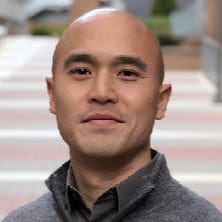
Daryl Lu serves as Director of Solutions at Verusen. Daryl has delivered supply chain transformation strategies for Fortune 500 enterprises as a consultant and solutions provider. He couples his technology and early-stage company experience to help deliver innovative solutions with high return on investment for clients. Daryl has a customer-focused, data-driven approach to solving real-world challenges when designing and delivering solutions. His energy has led him to leading teams throughout a customer engagement from marketing to sales to solutions services and to customer success. Learn more about Verusen: www.Verusen.com

Corbett Gilliam serves as Corporate Development Manager at ATDC. Corbett is a visionary leader with expertise in business operations, digital/social strategy execution, brand strategy, and content marketing. He has a proven track record of achieving exceptional results within the FinTech, mobile, livestreaming, and SaaS sectors. Corbett has a history of transforming a company’s core business model and marketing strategy to achieve objectives in revenue growth and profitability. Corbett is a graduate of the University of Georgia where he obtained a bachelor’s degree economics. He also earned his master’s degree in business administration from Mercer University’s Stetson School of Business and Economics. Learn more about ATDC: https://atdc.org/
